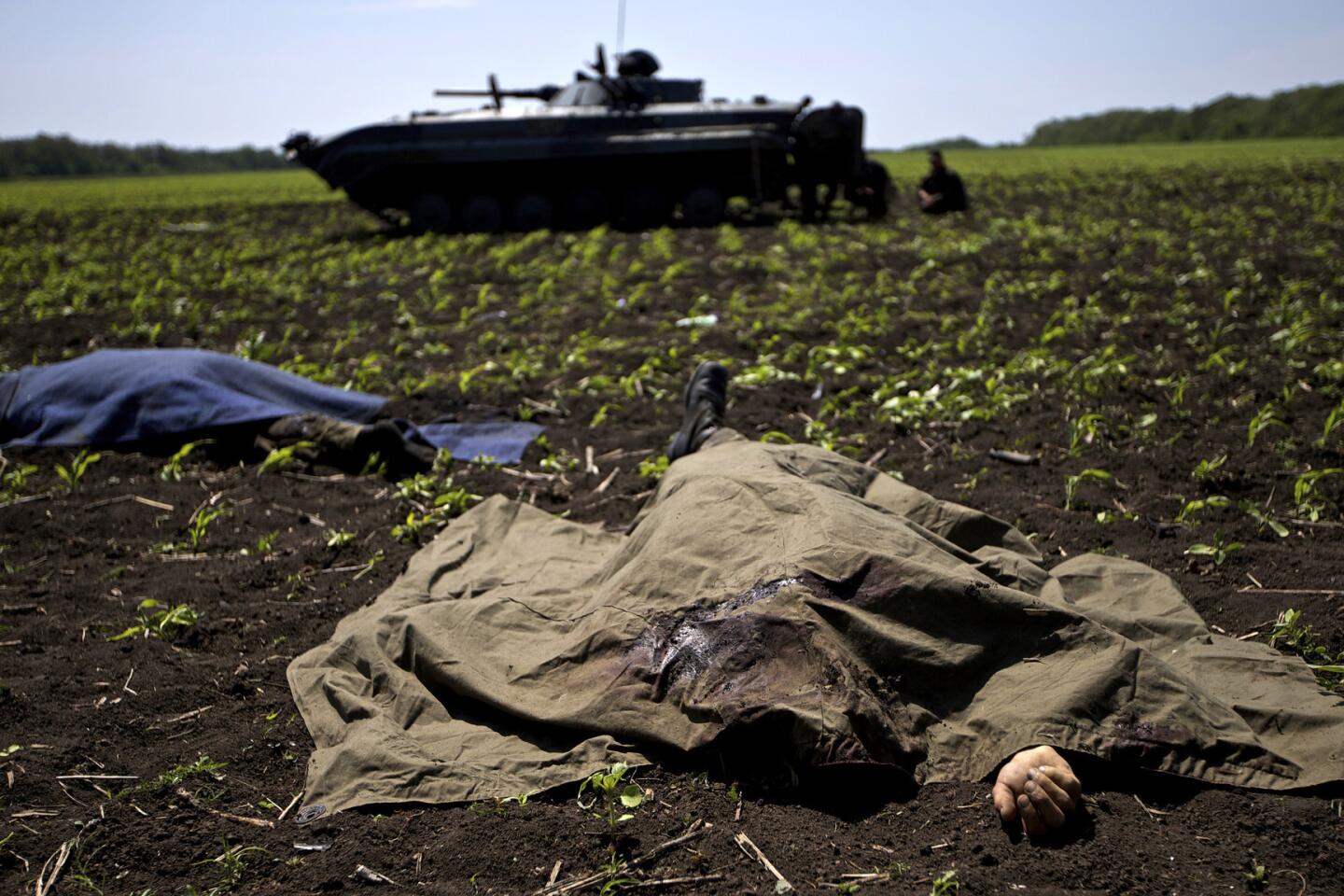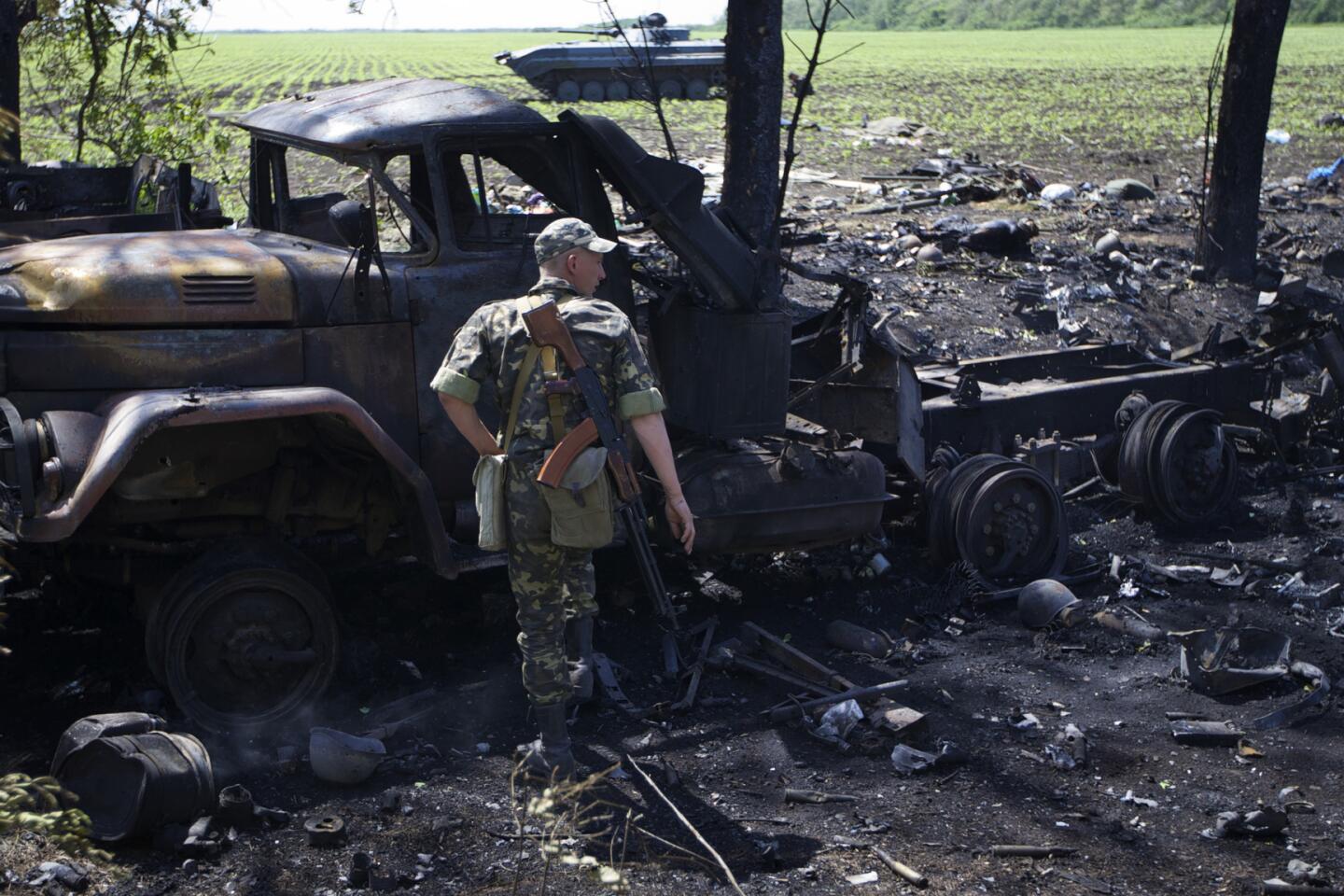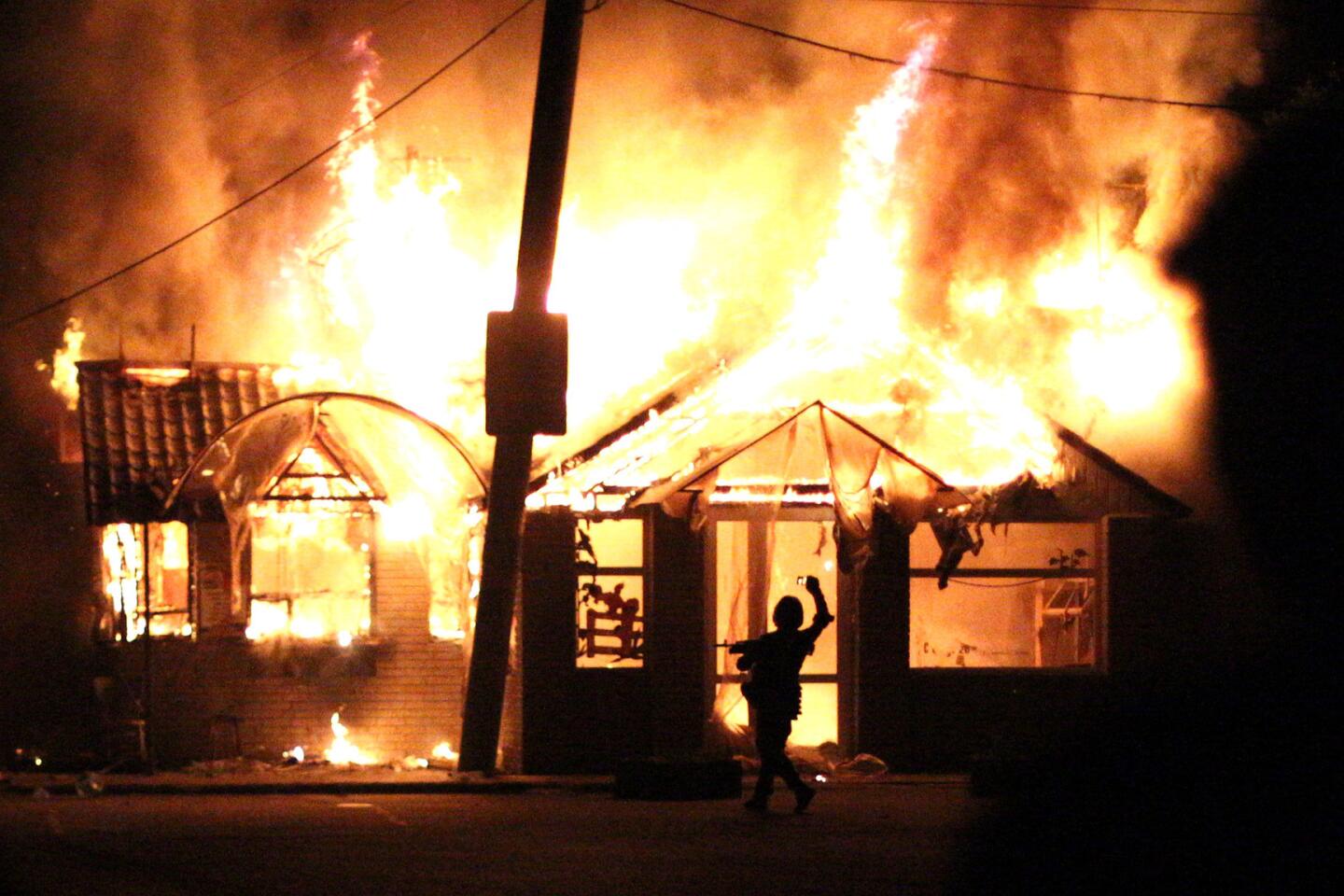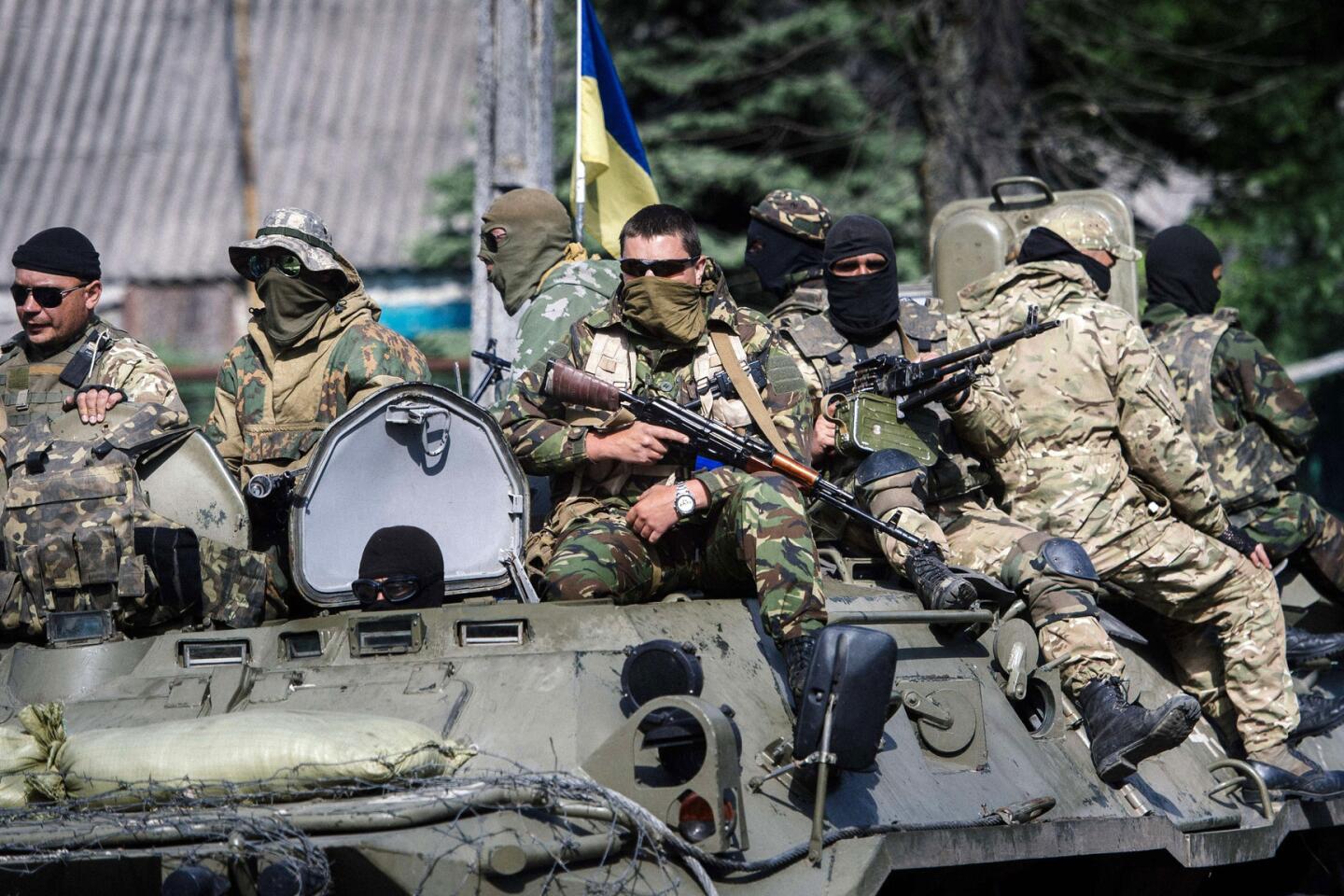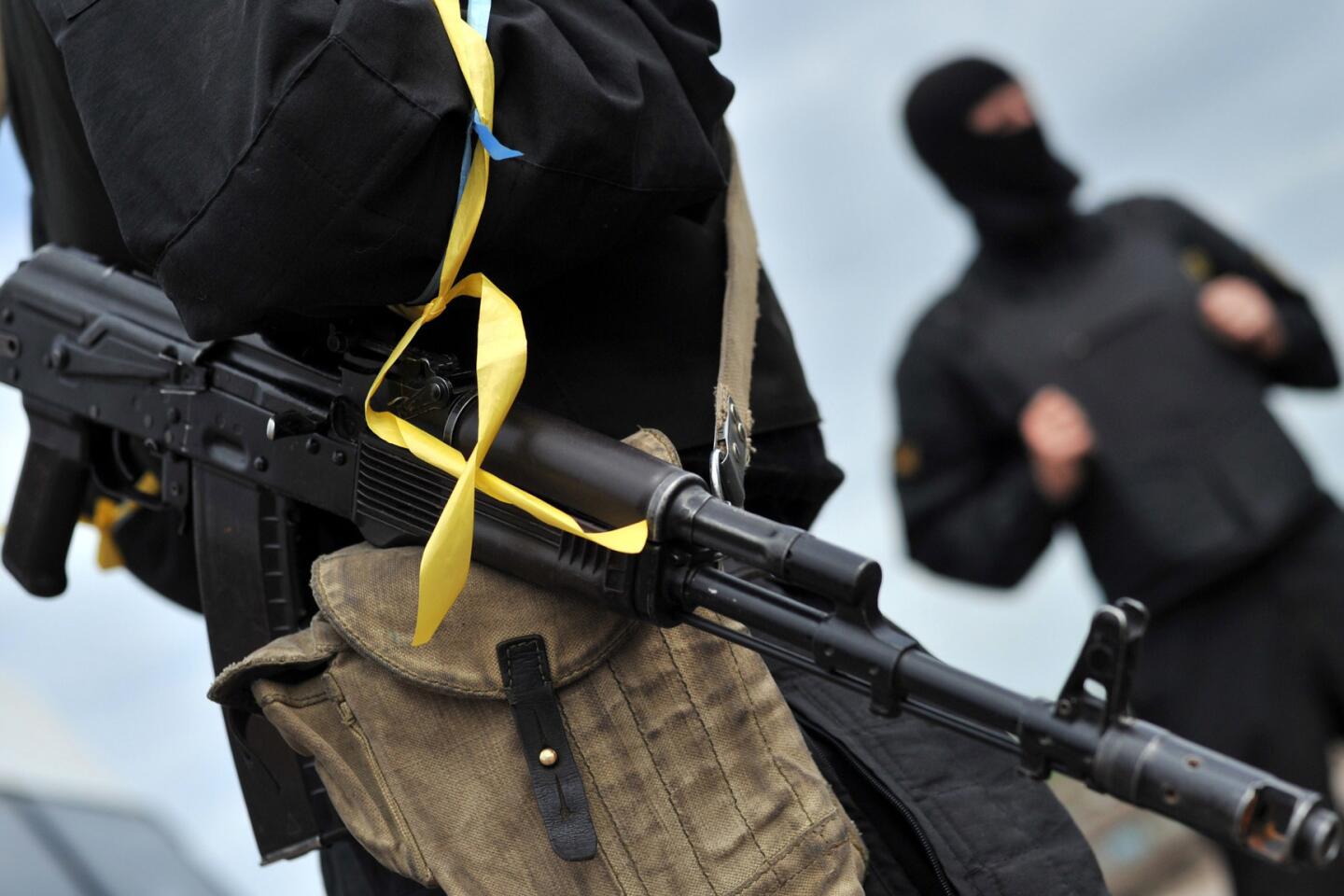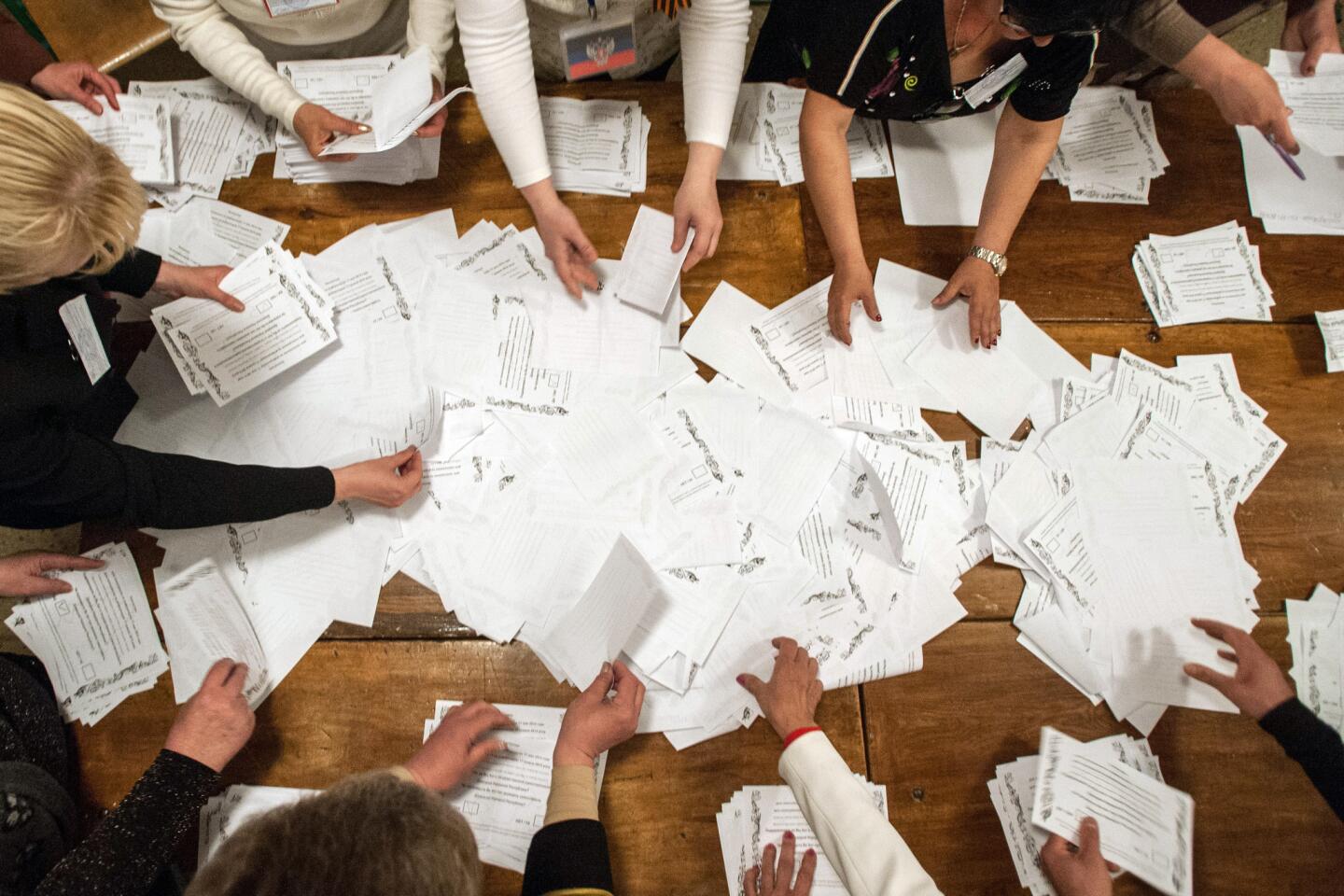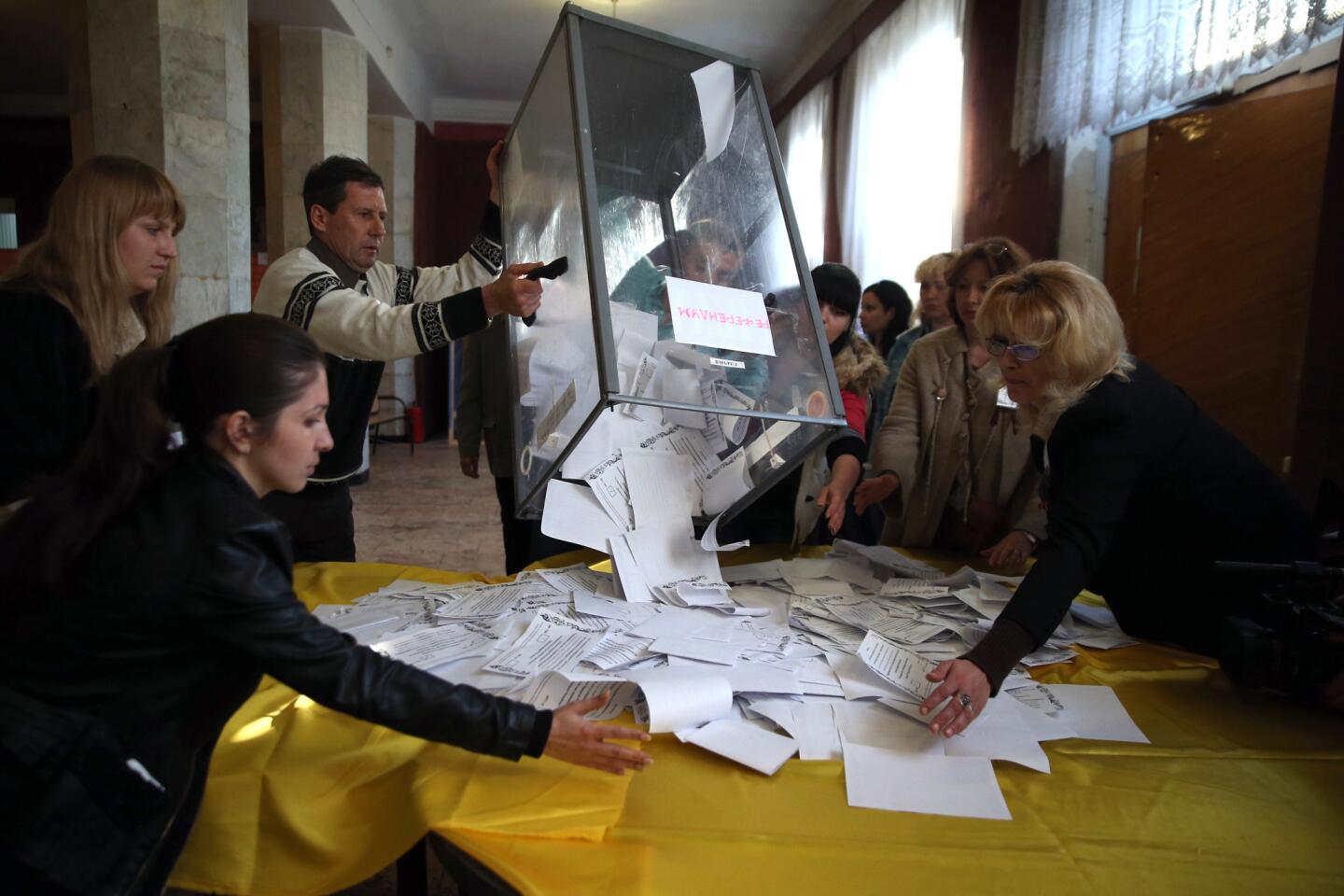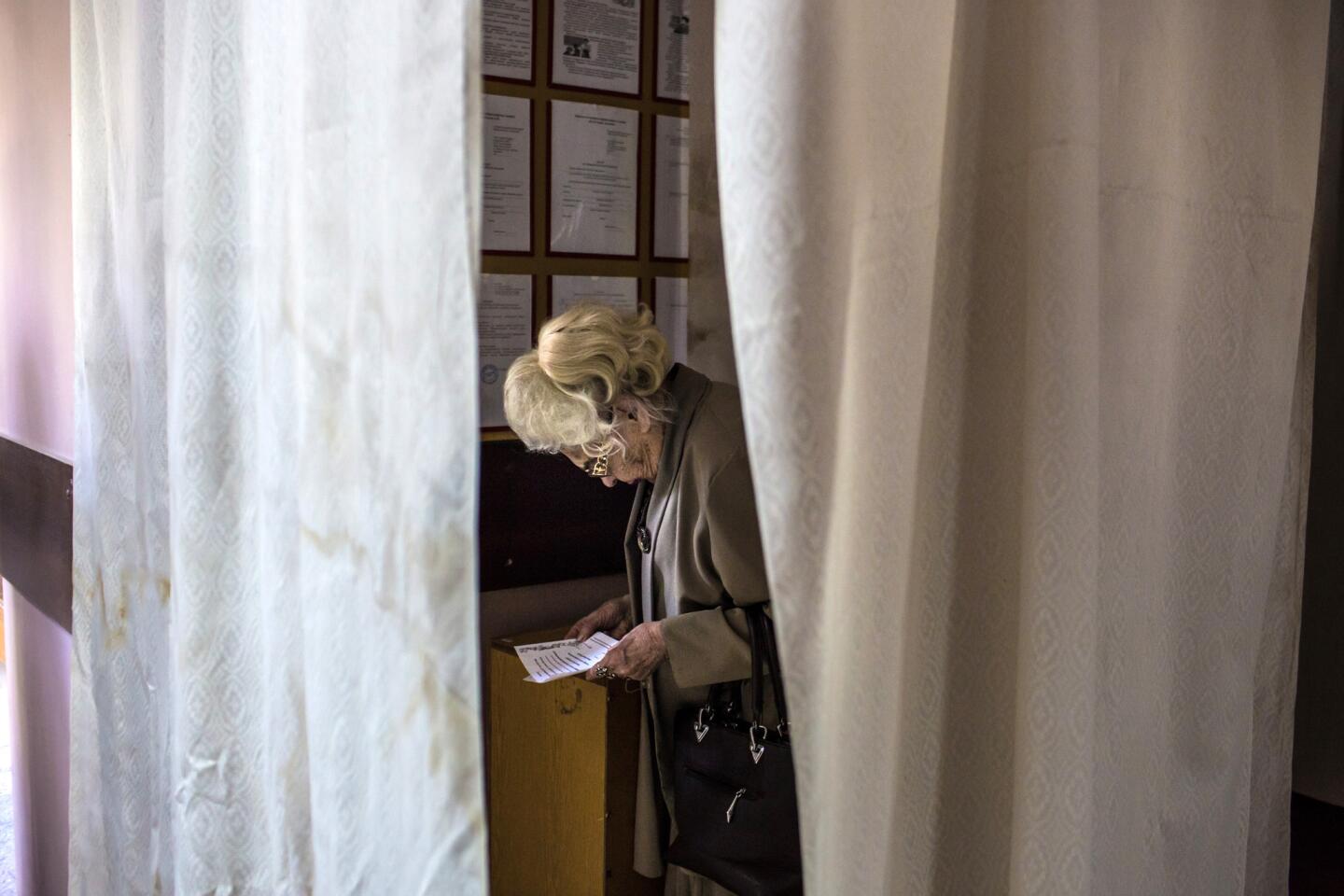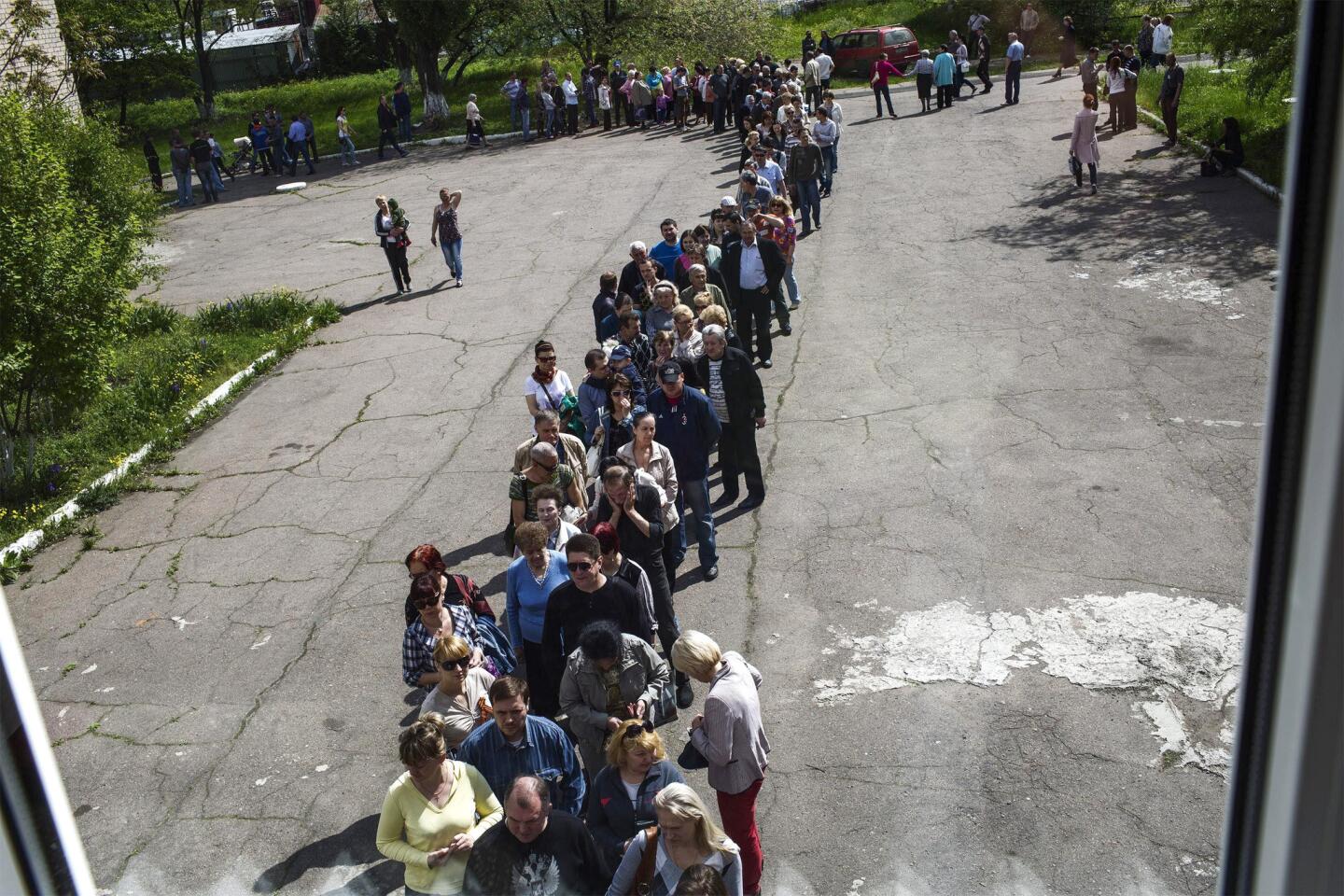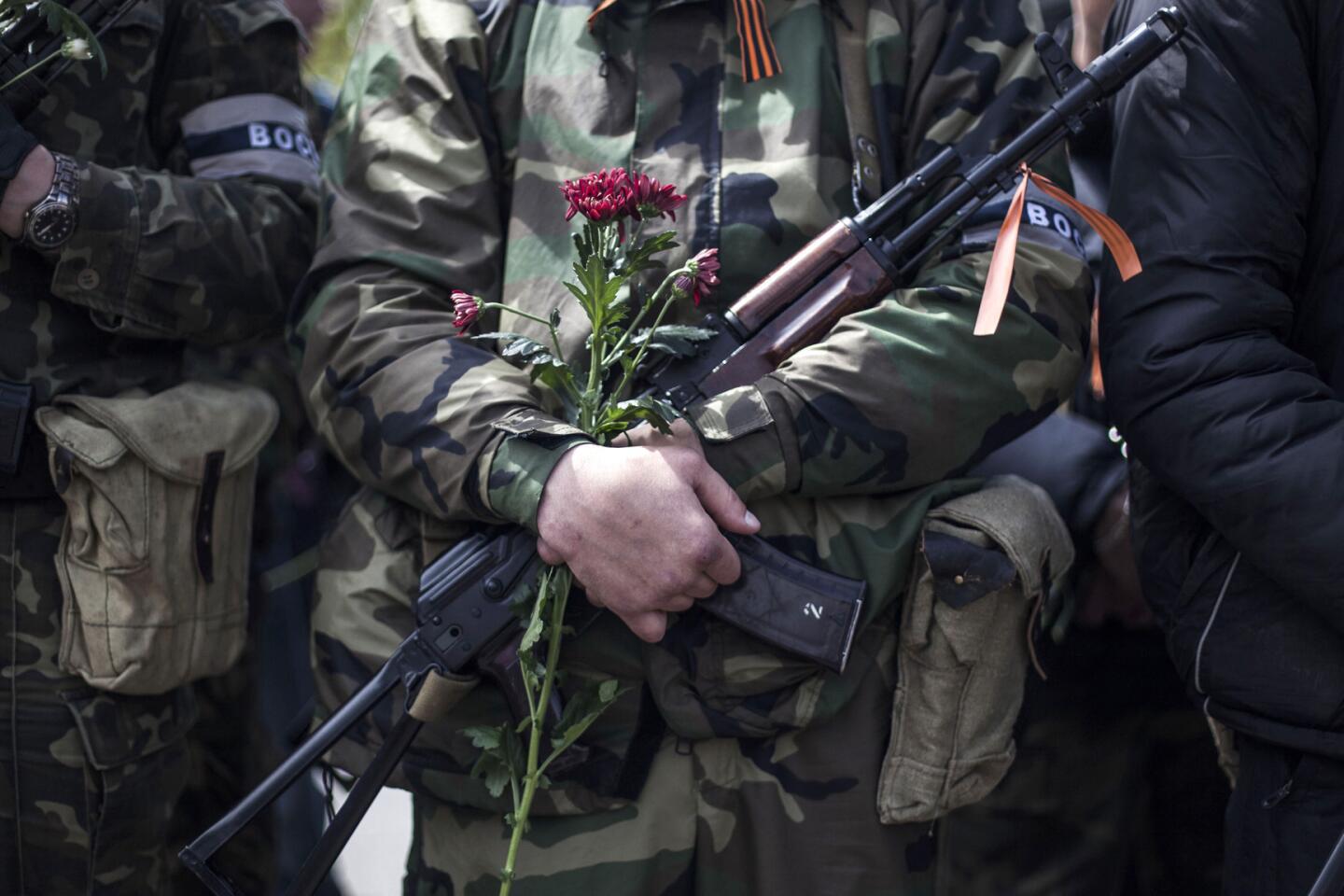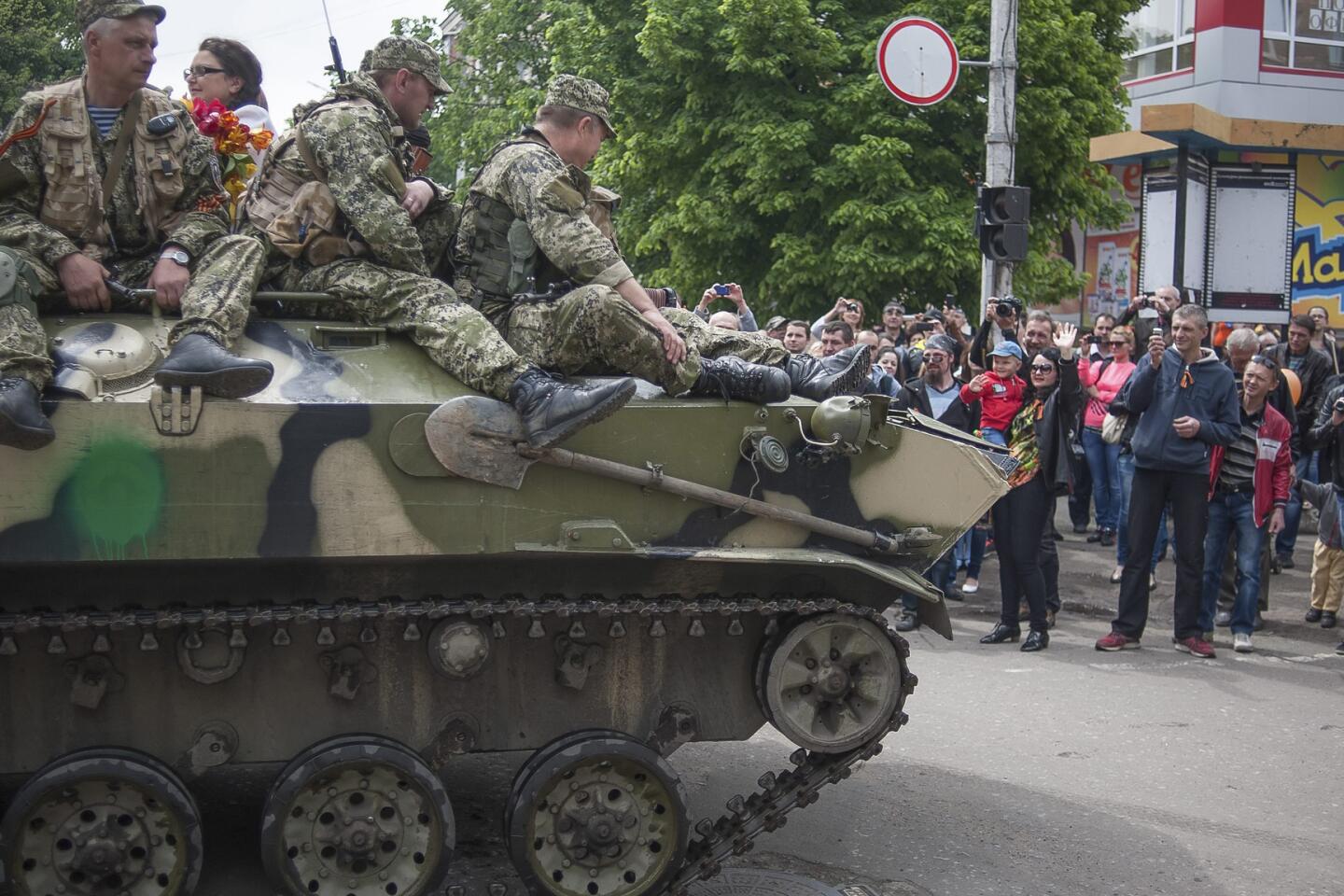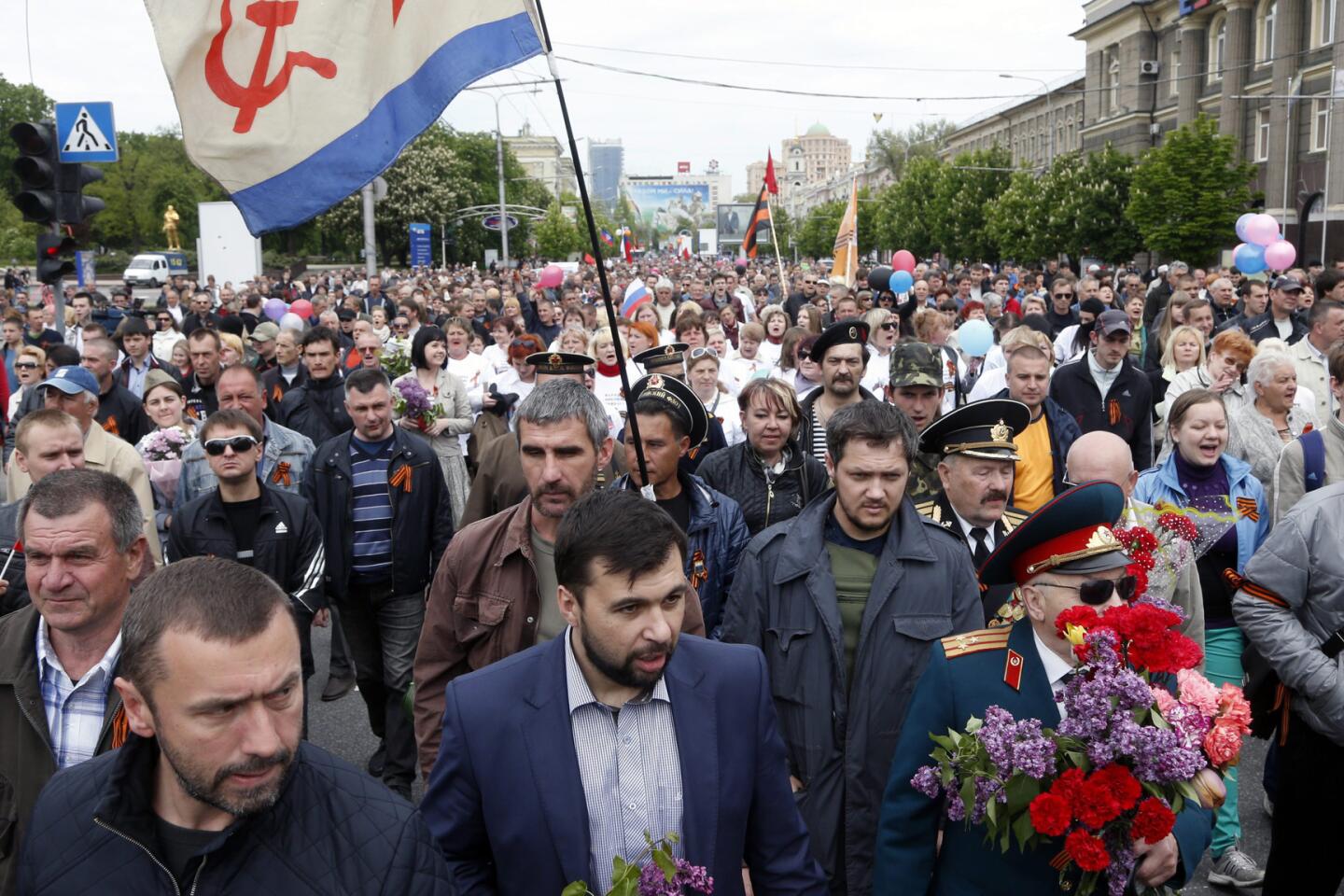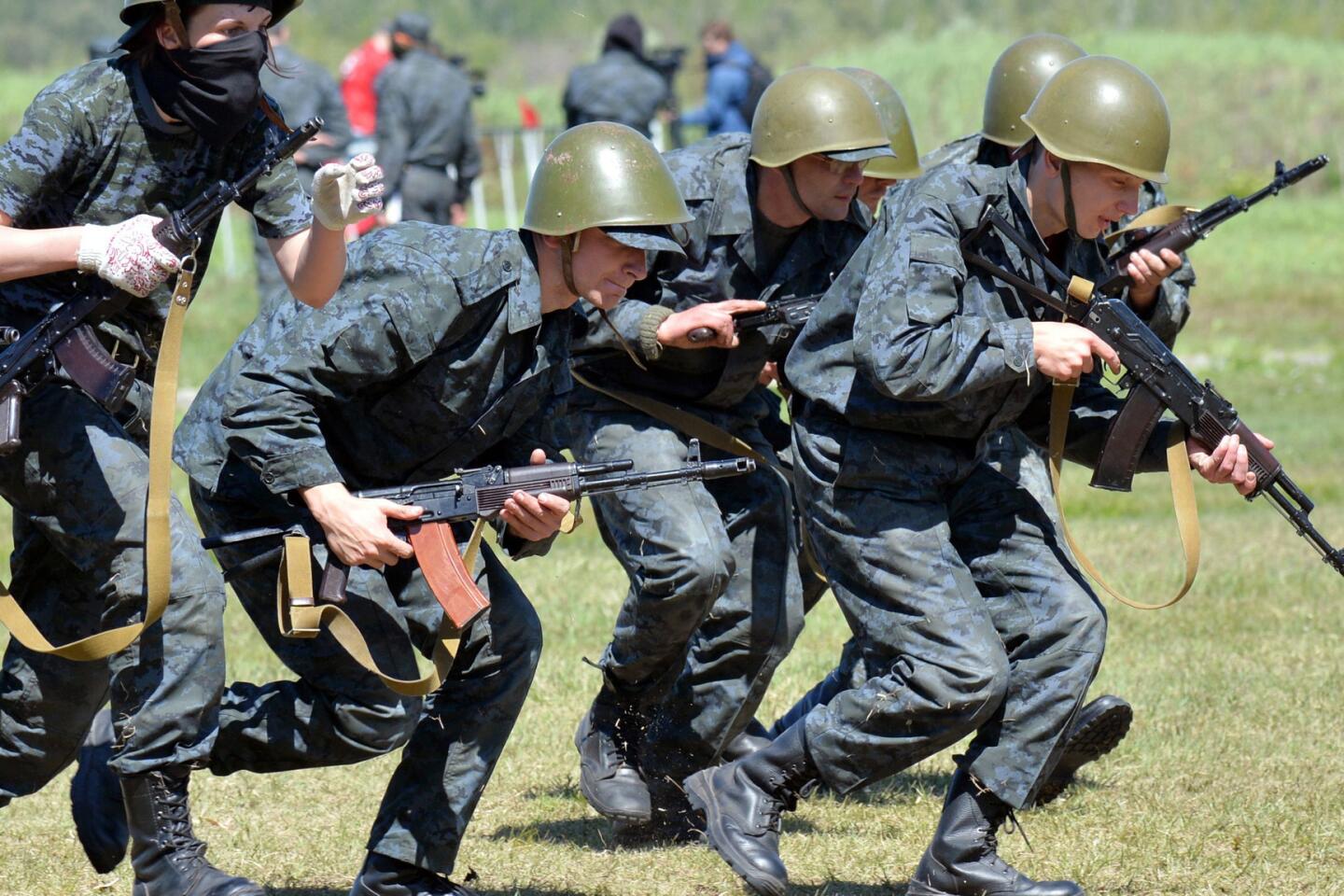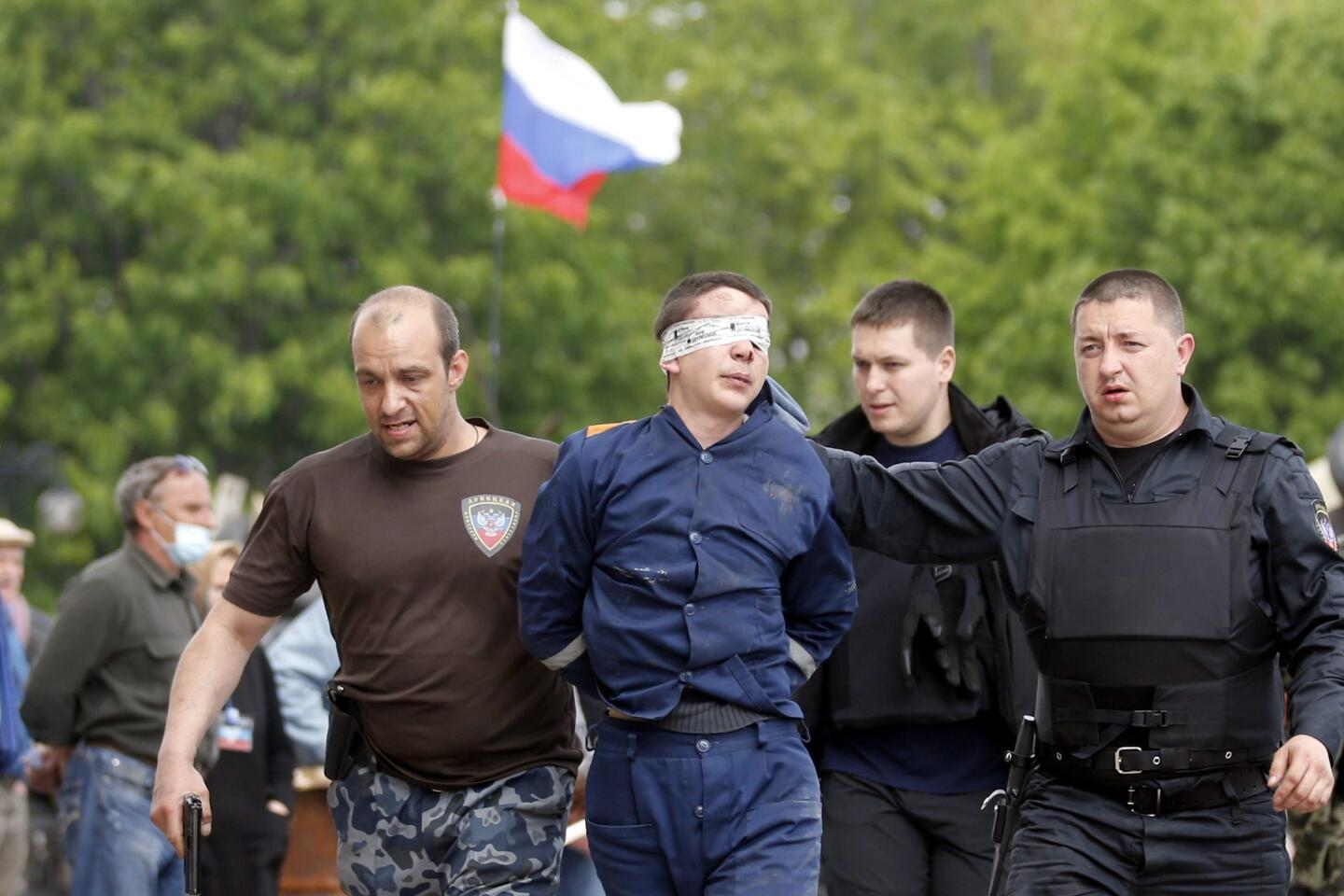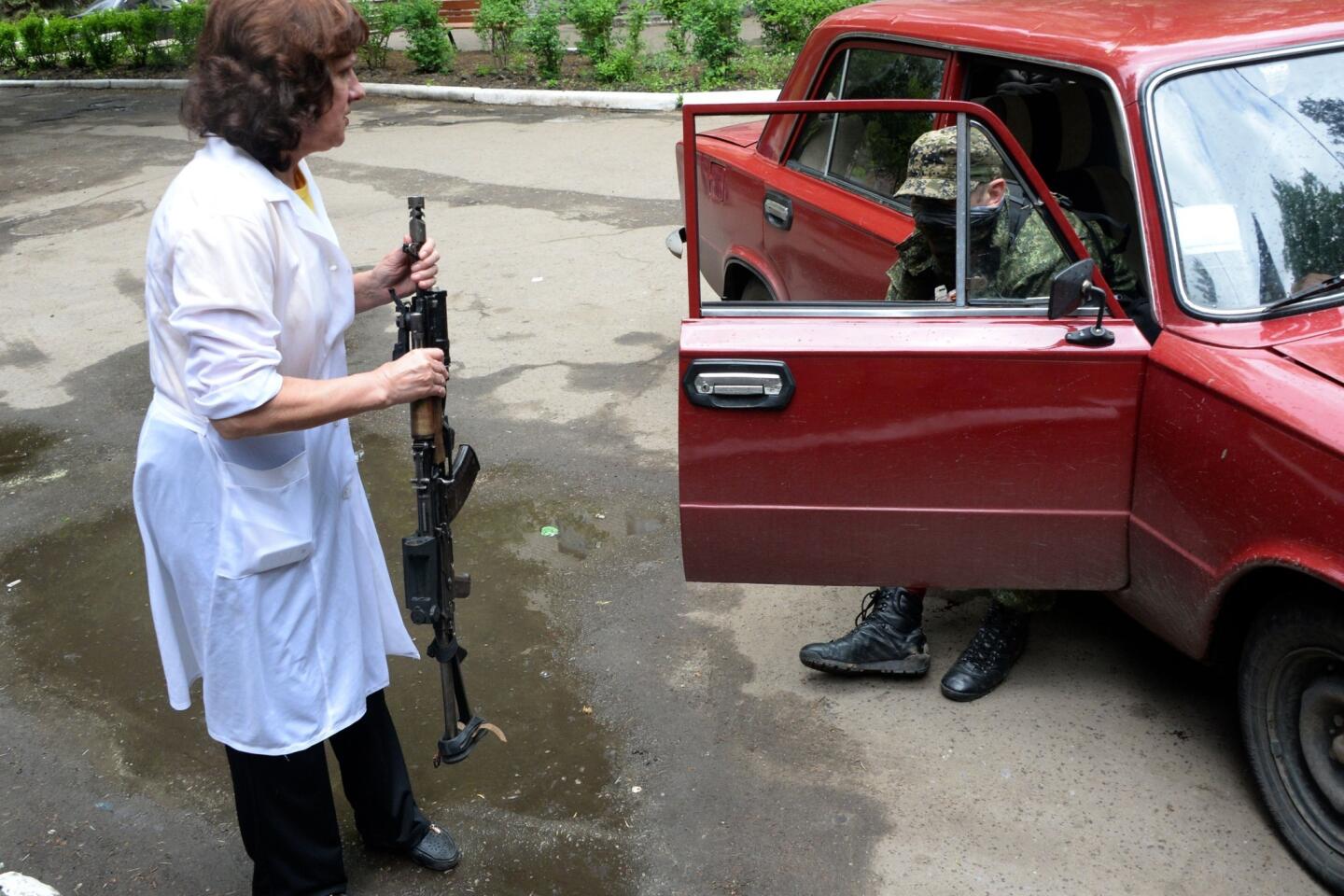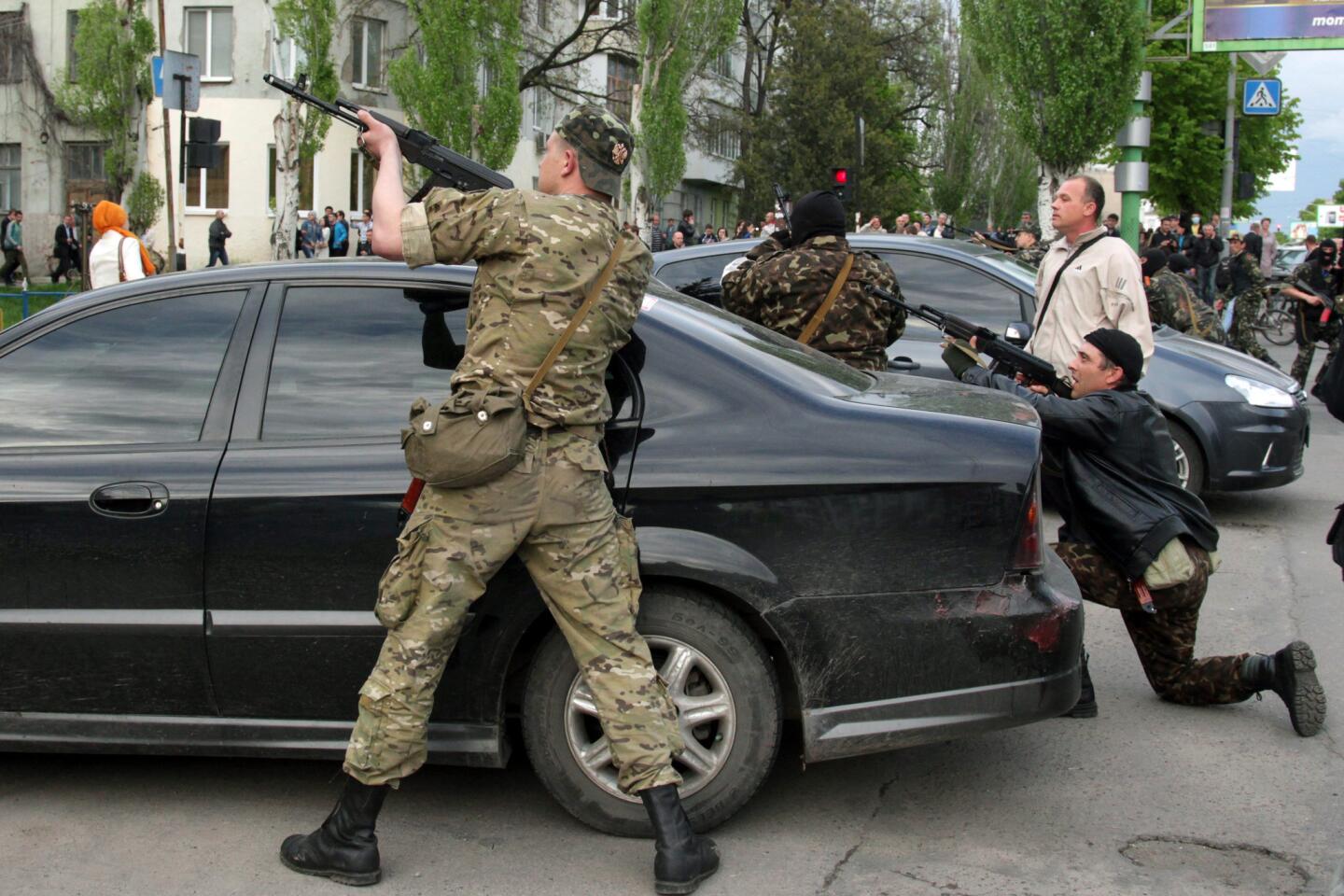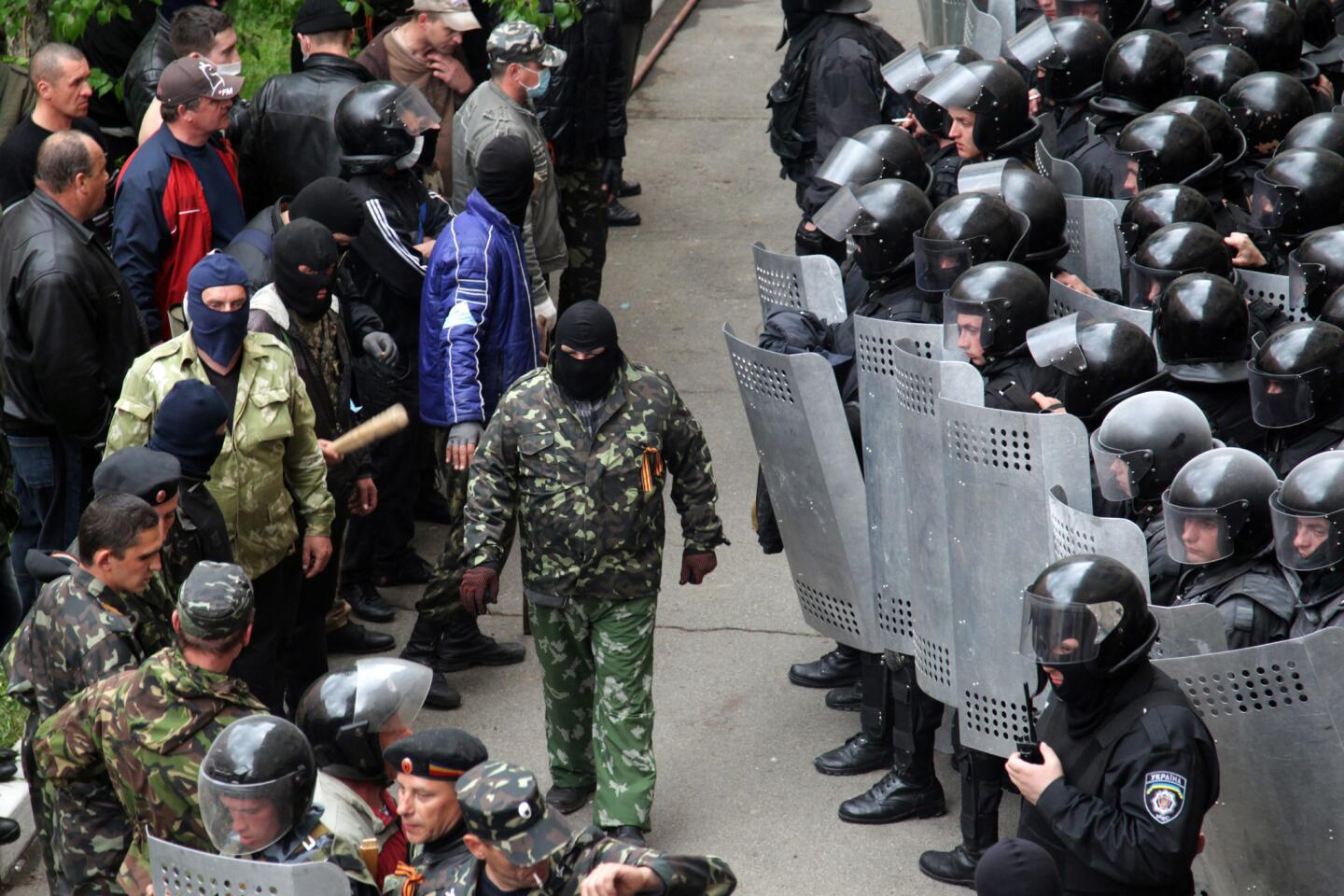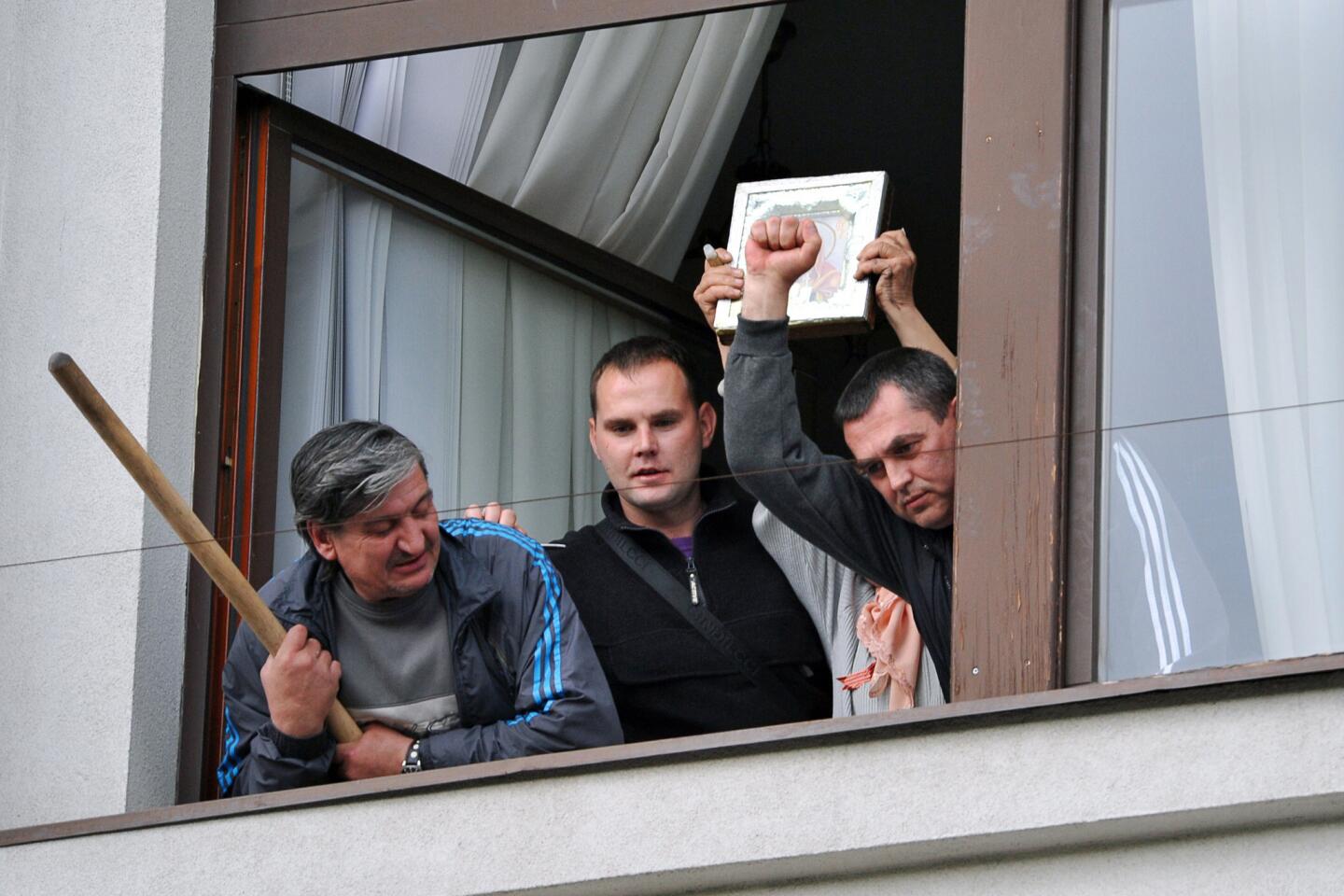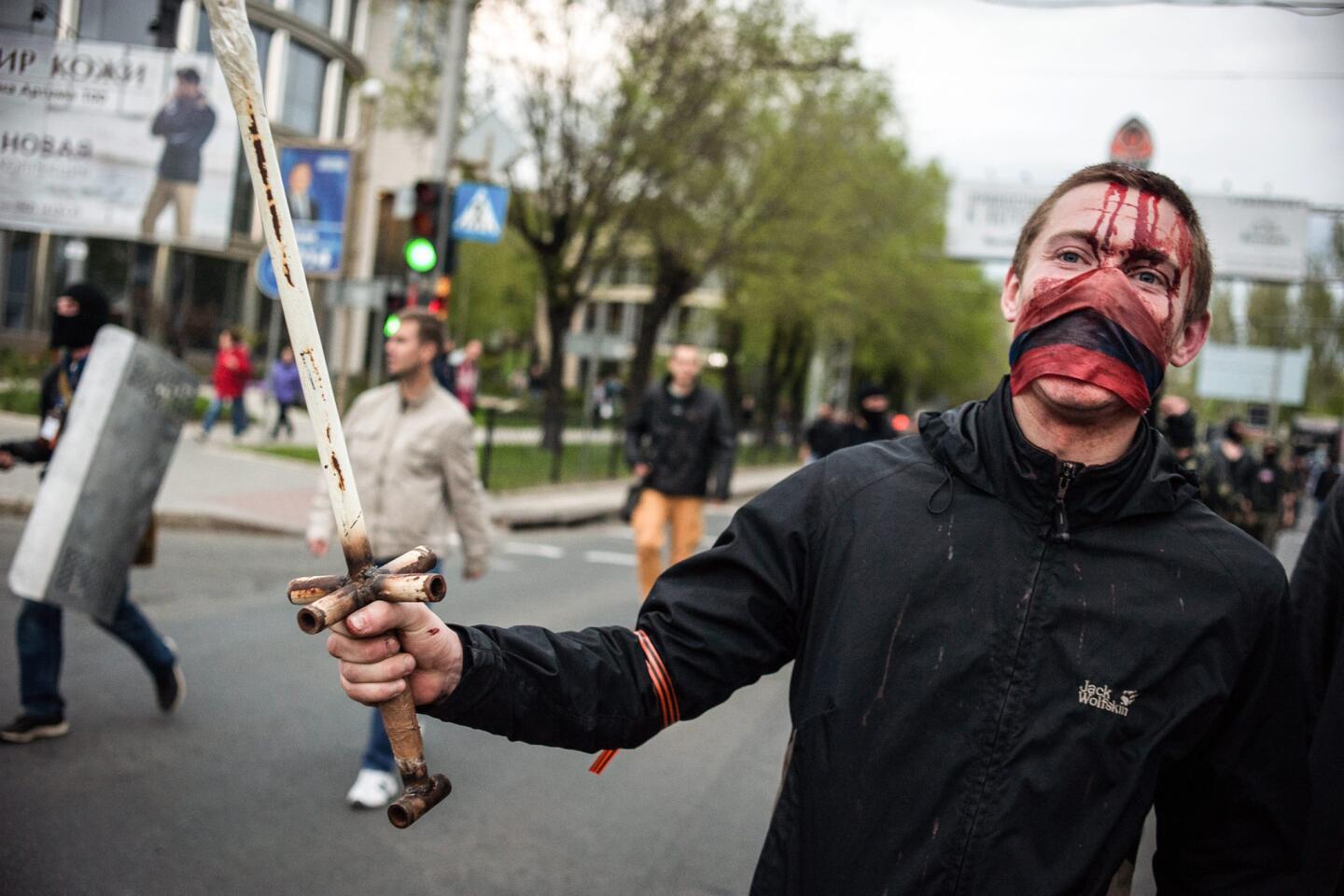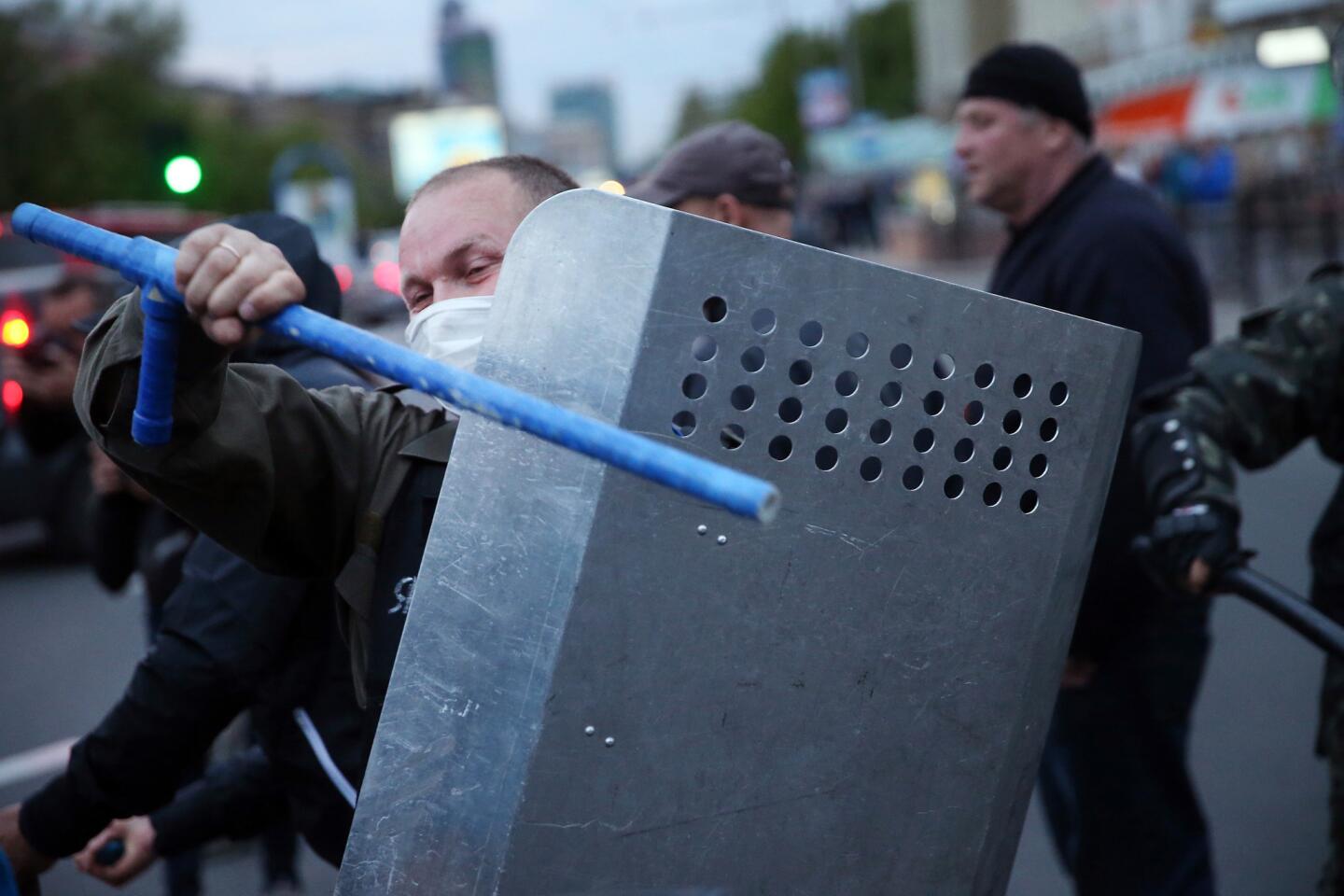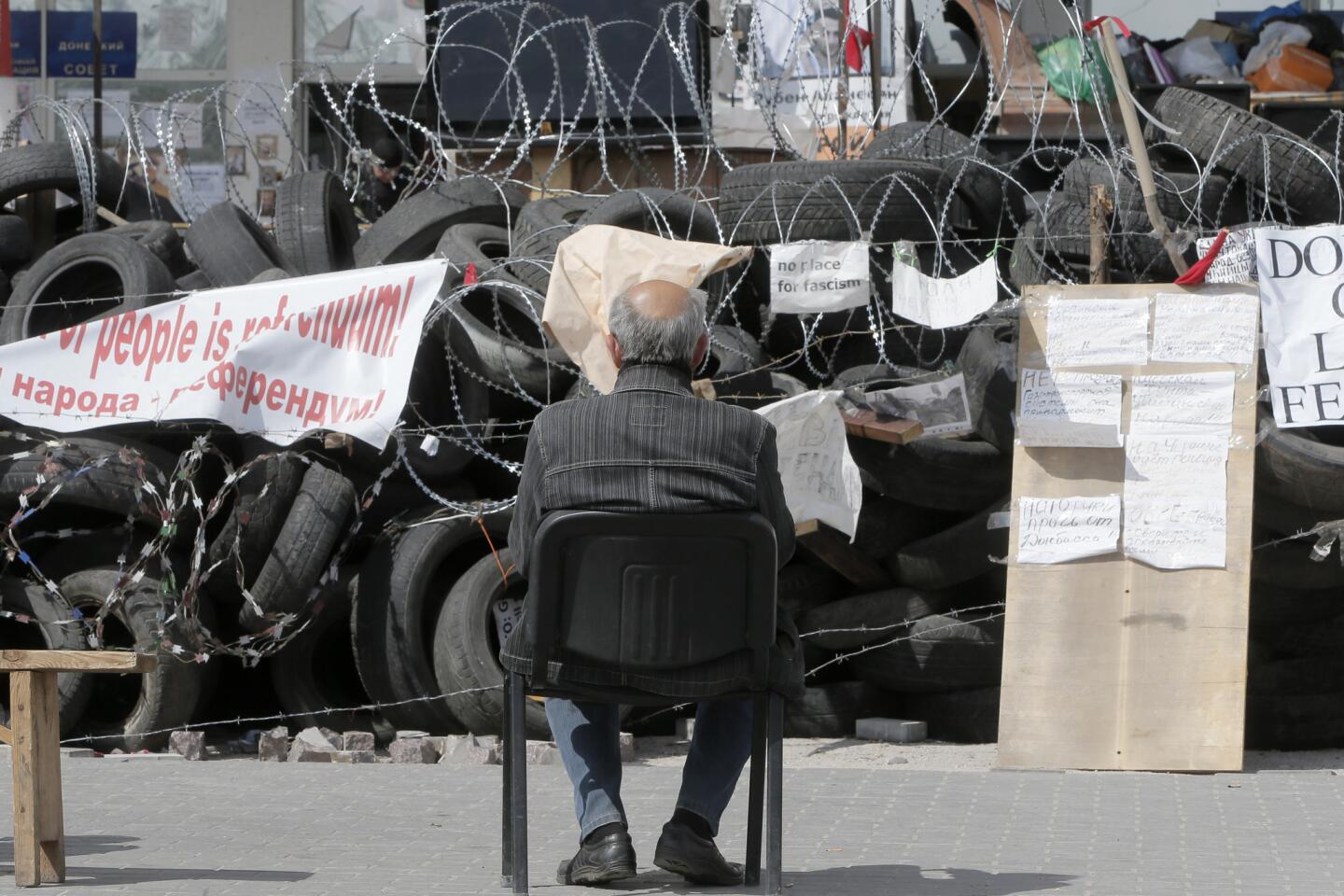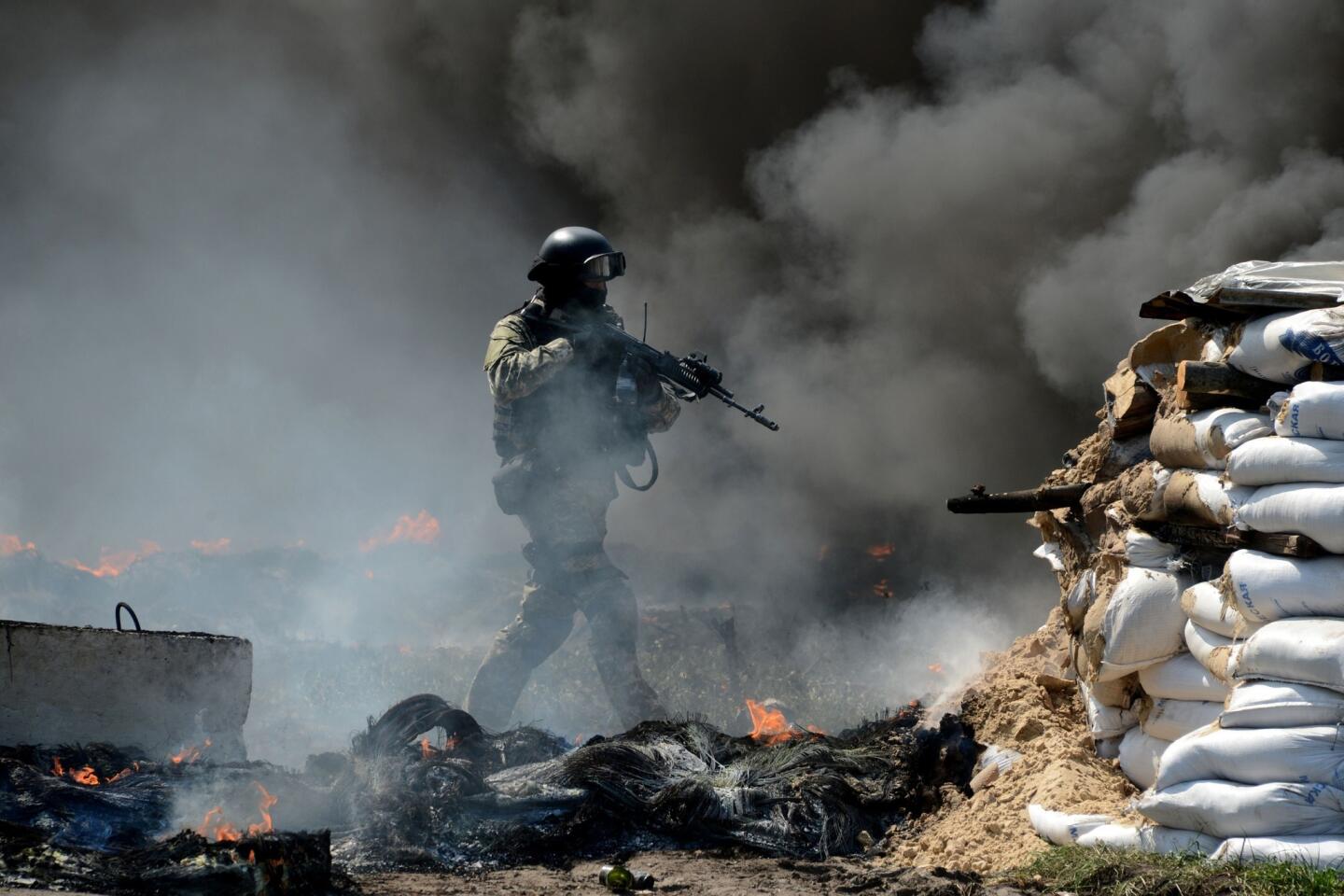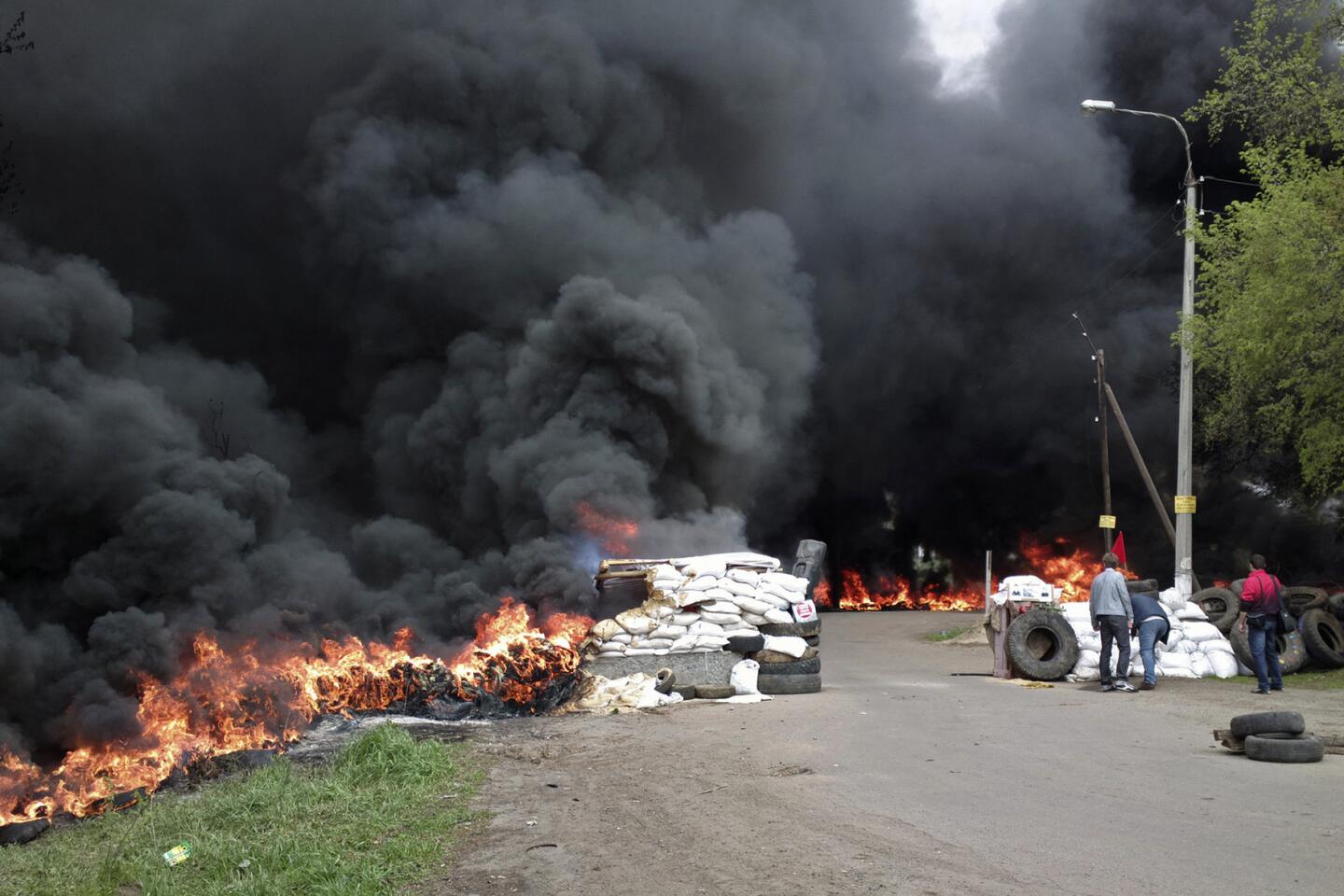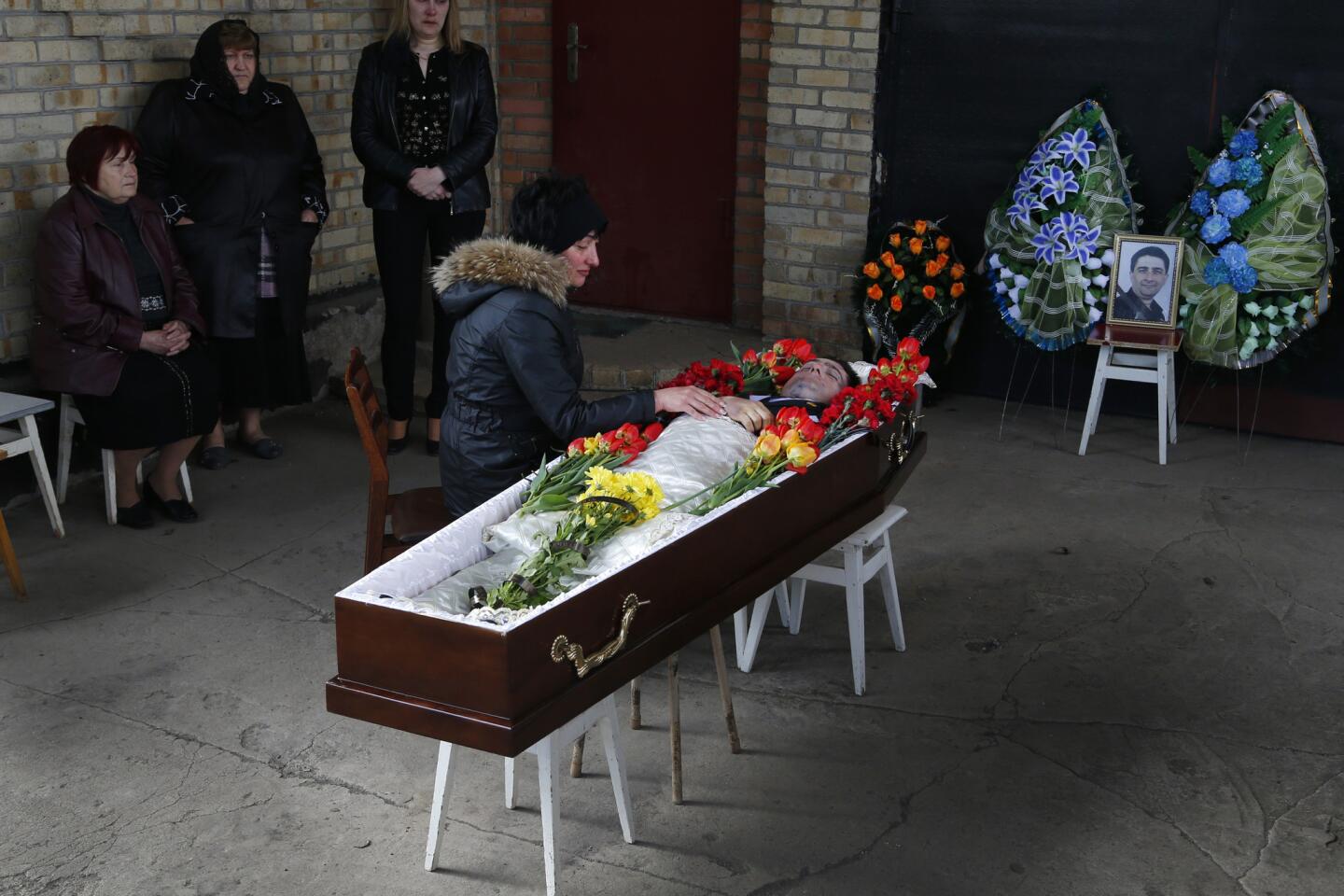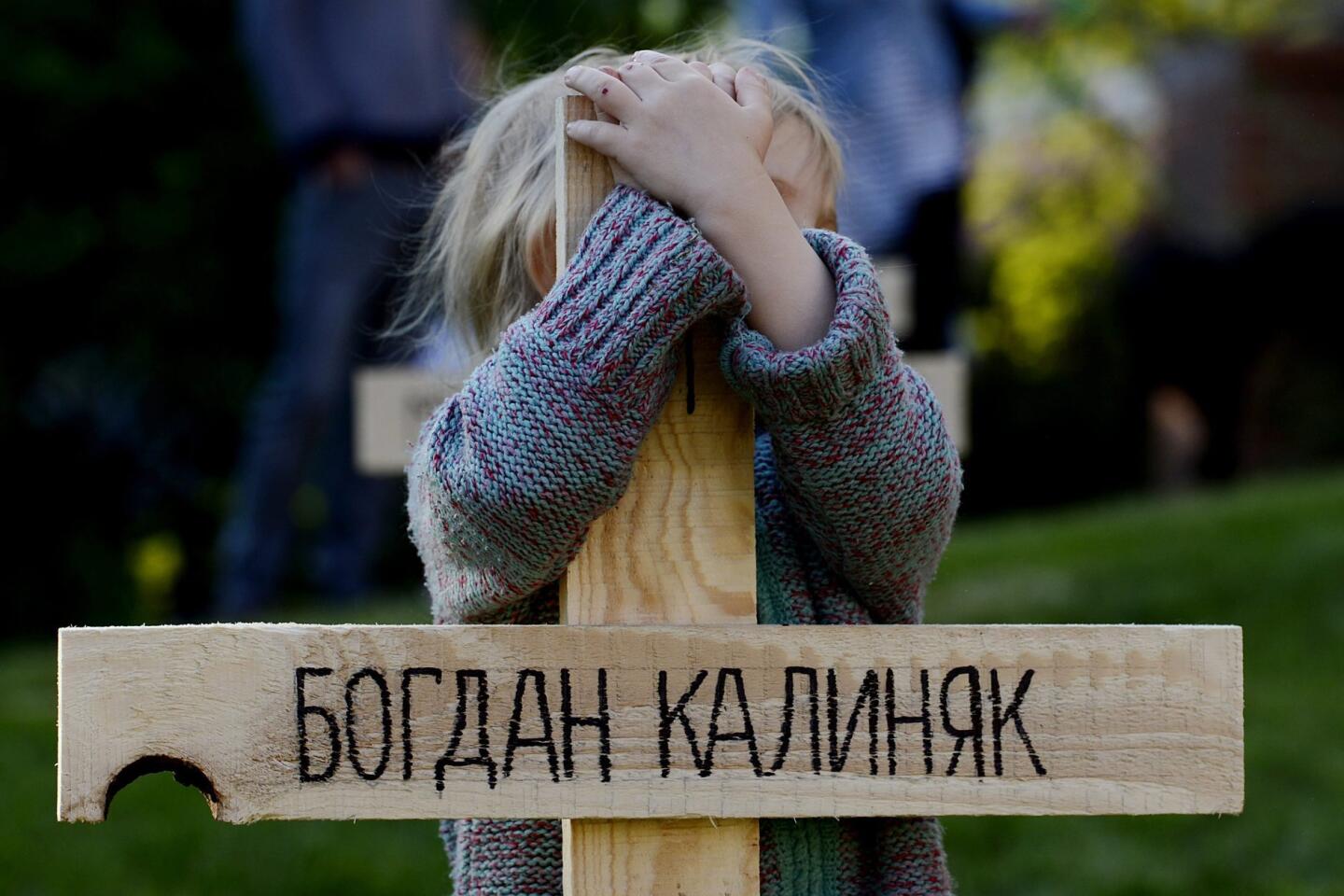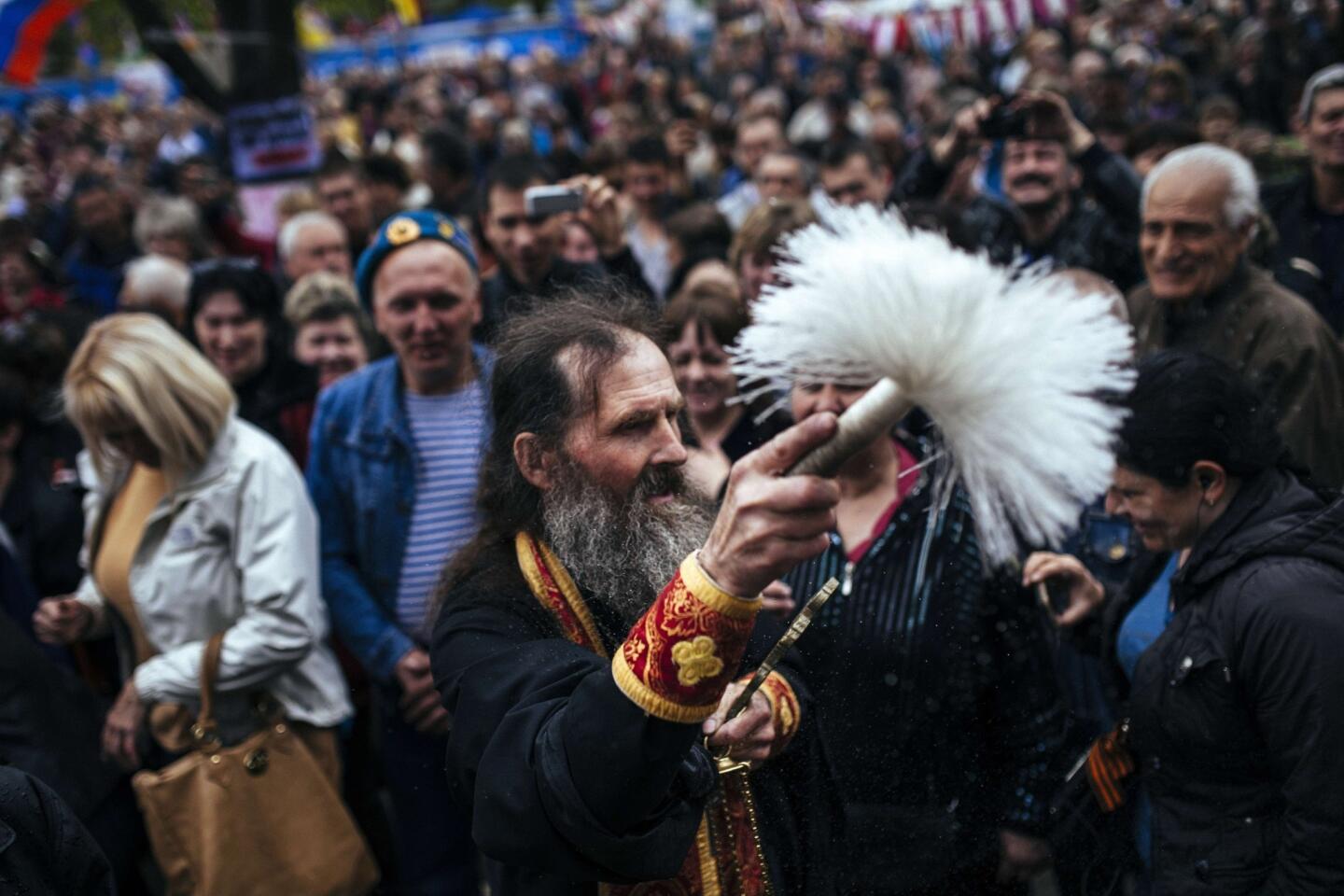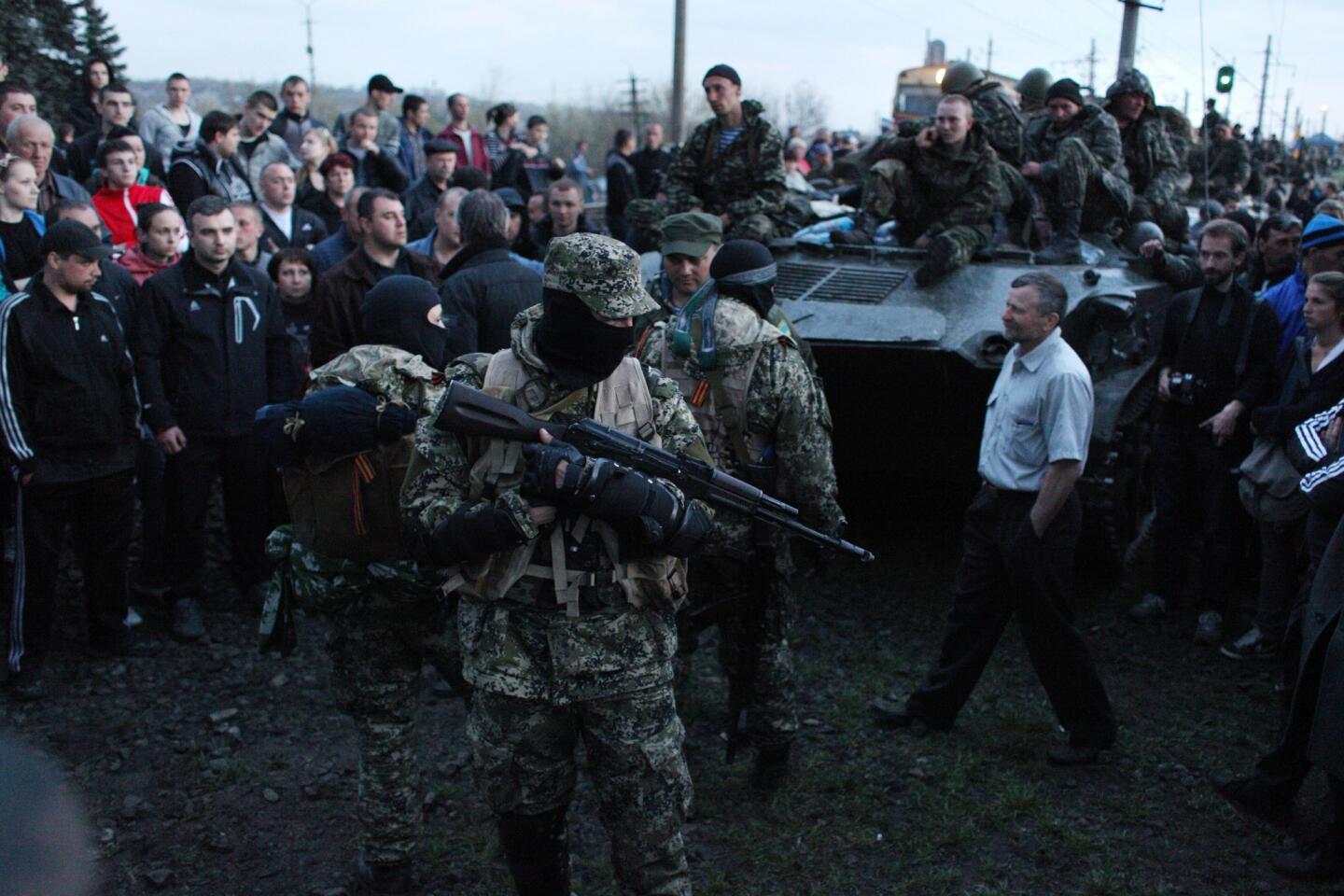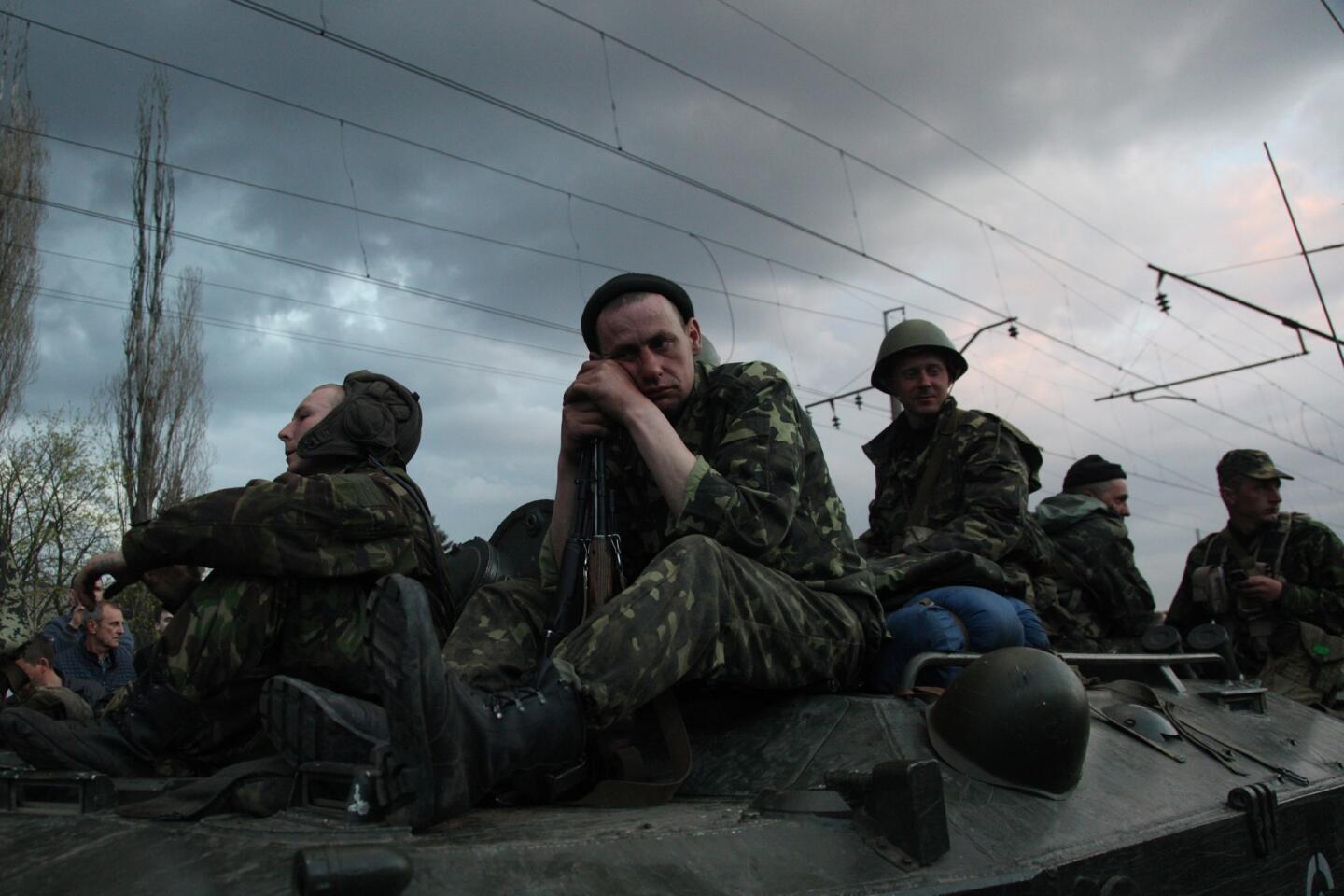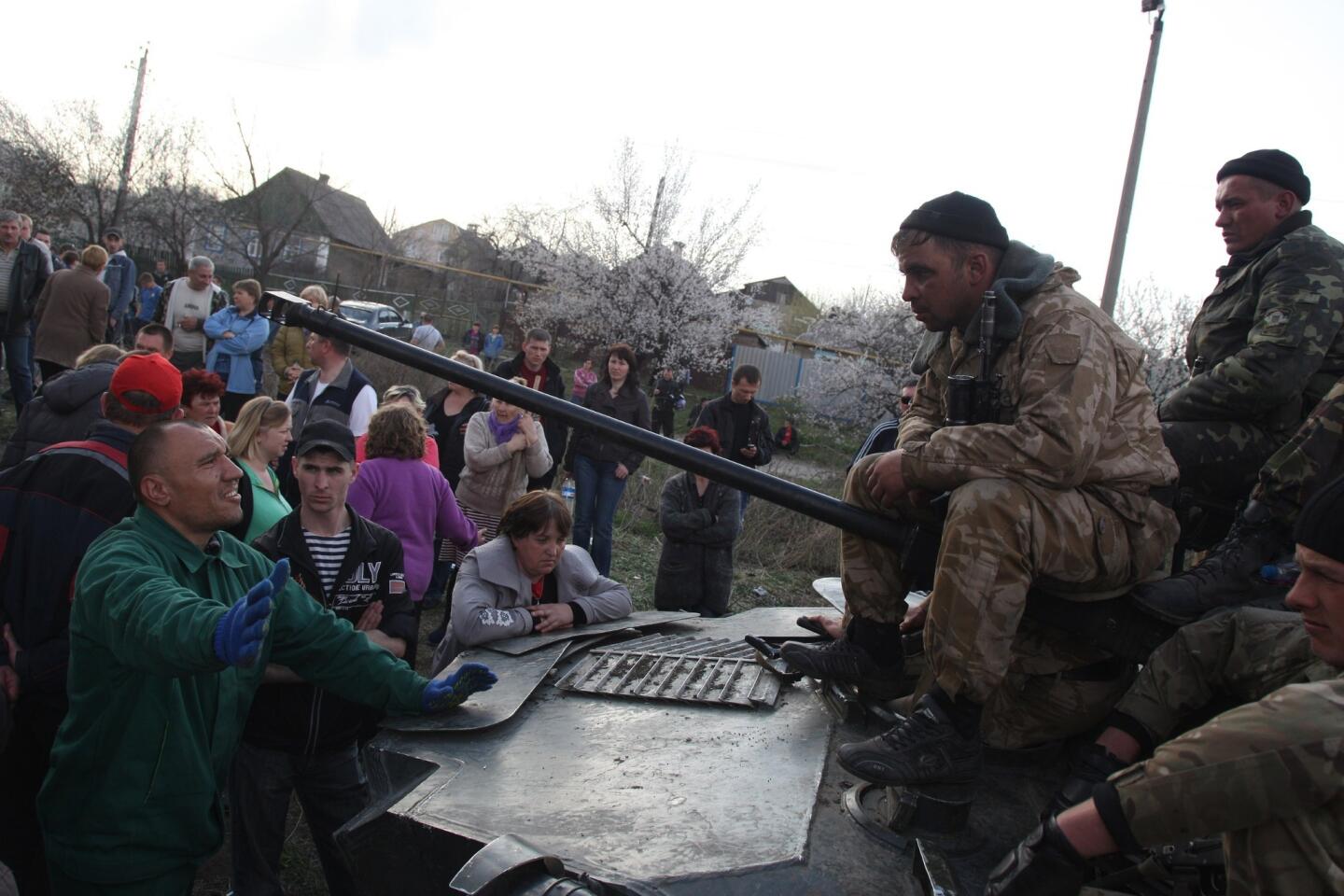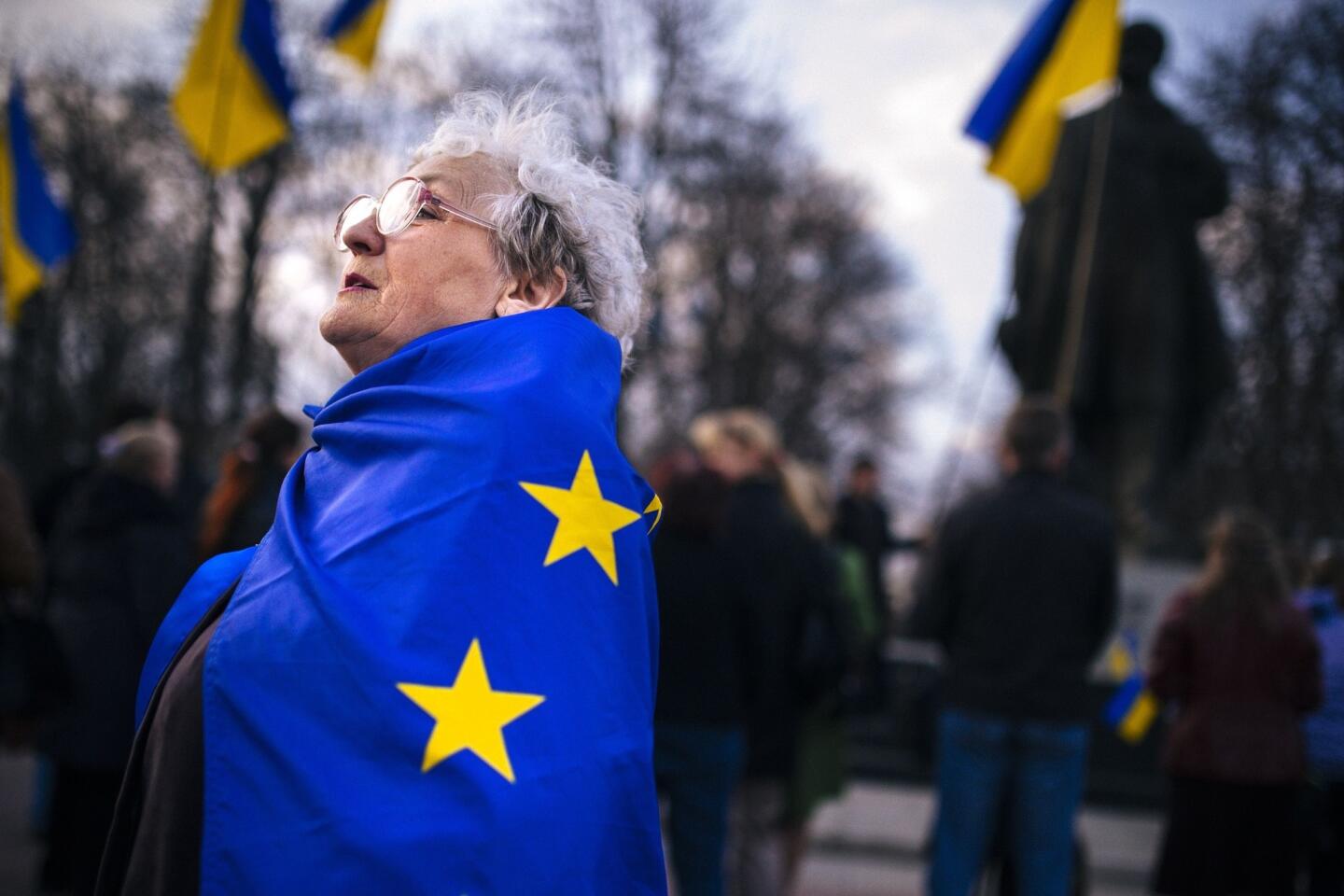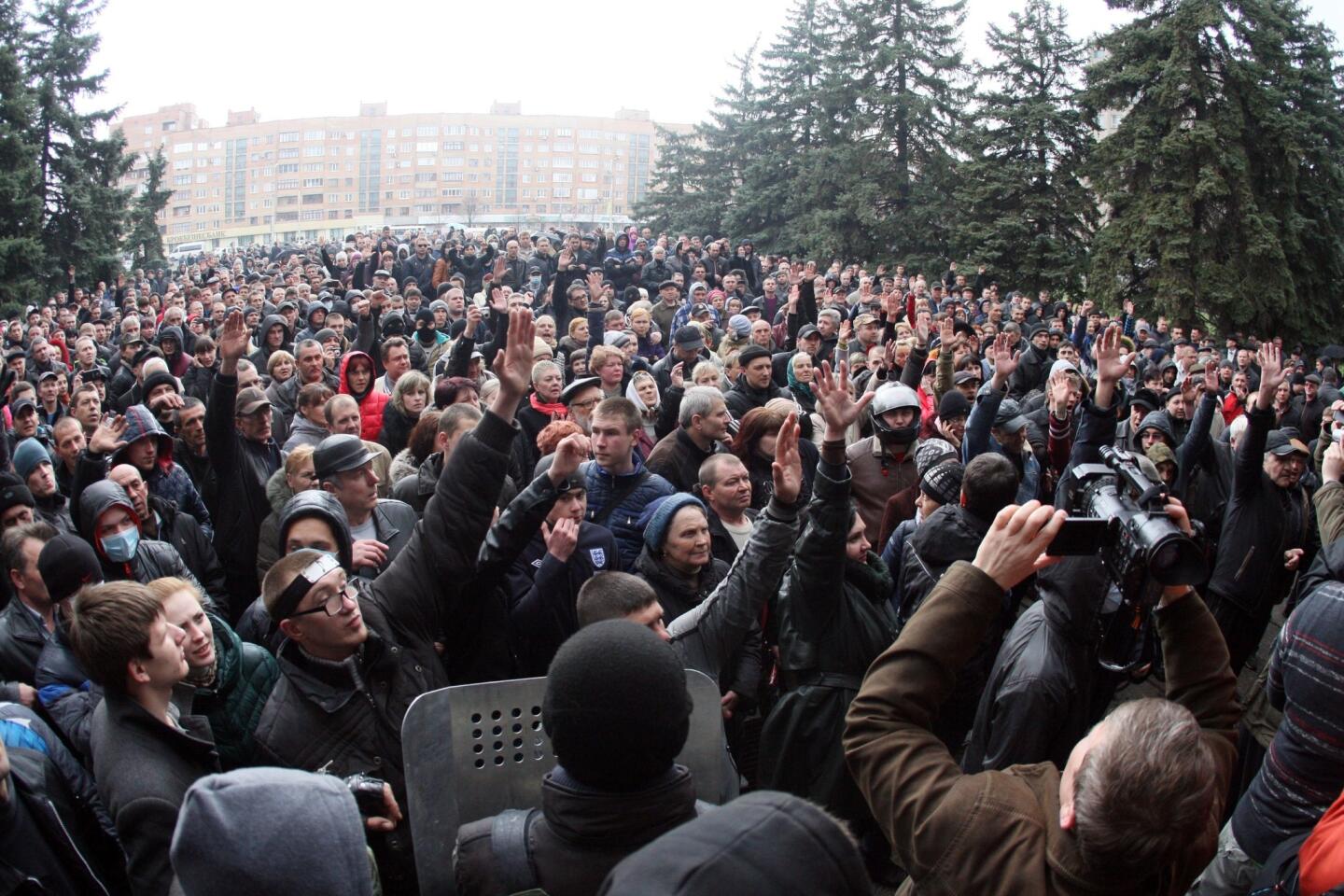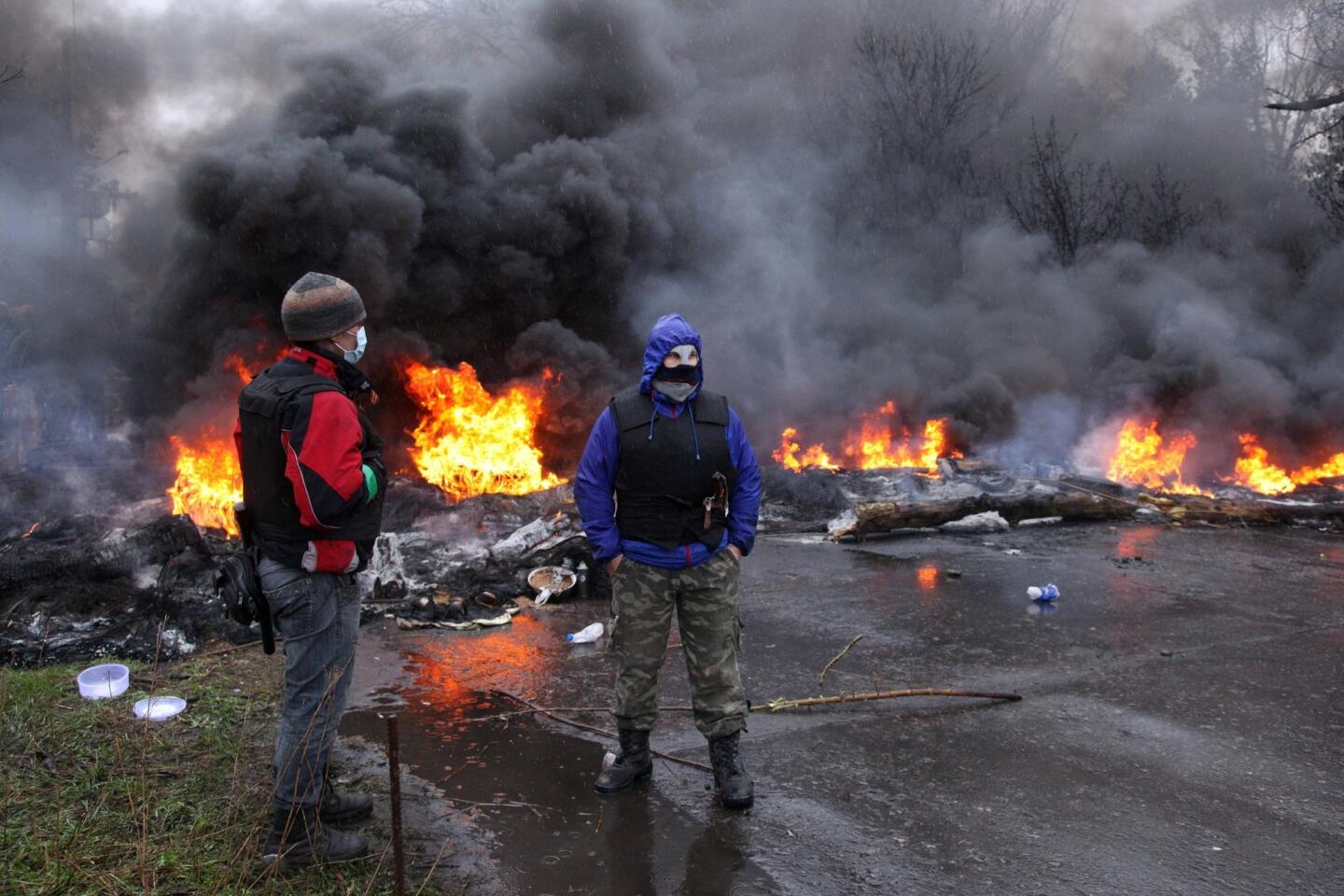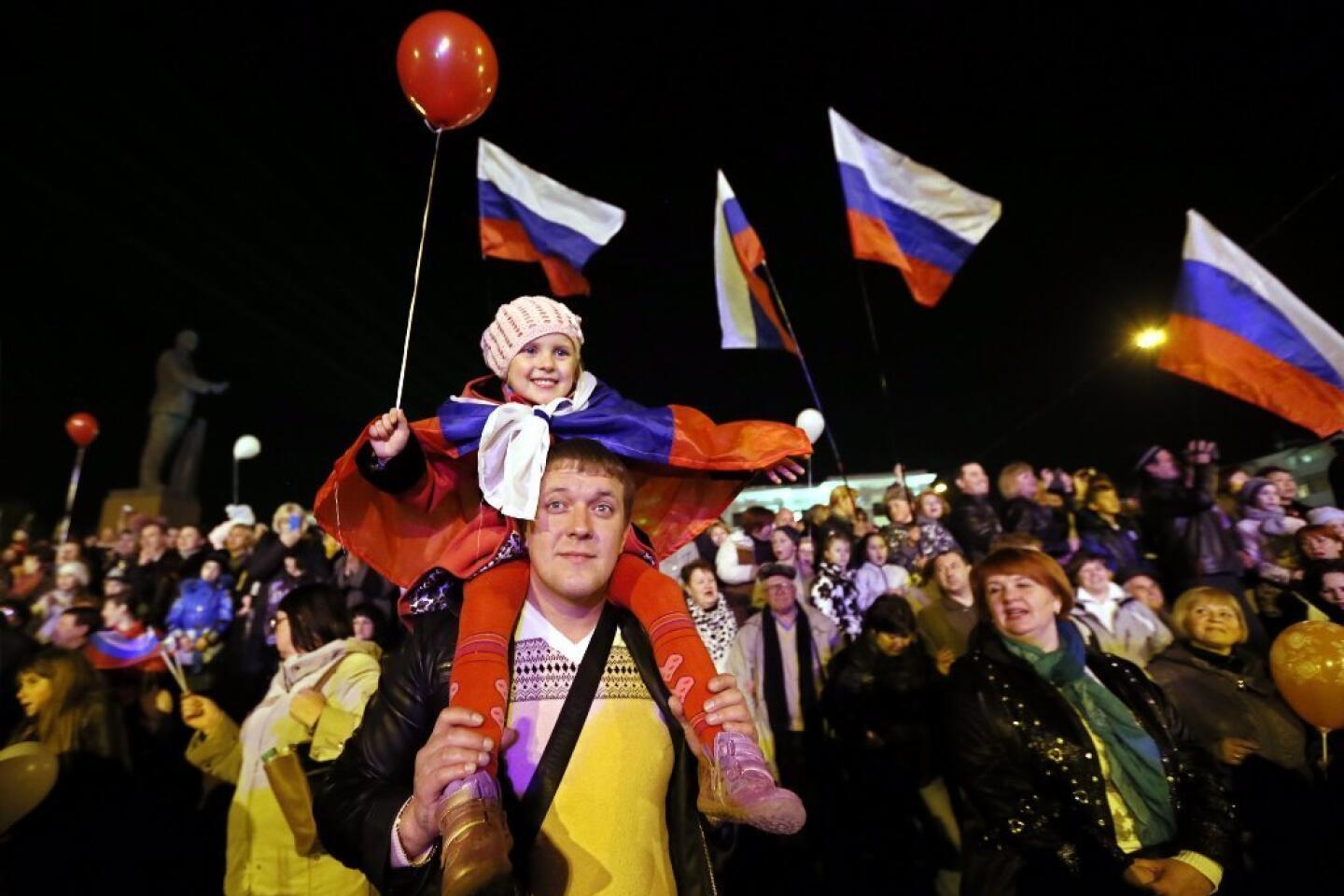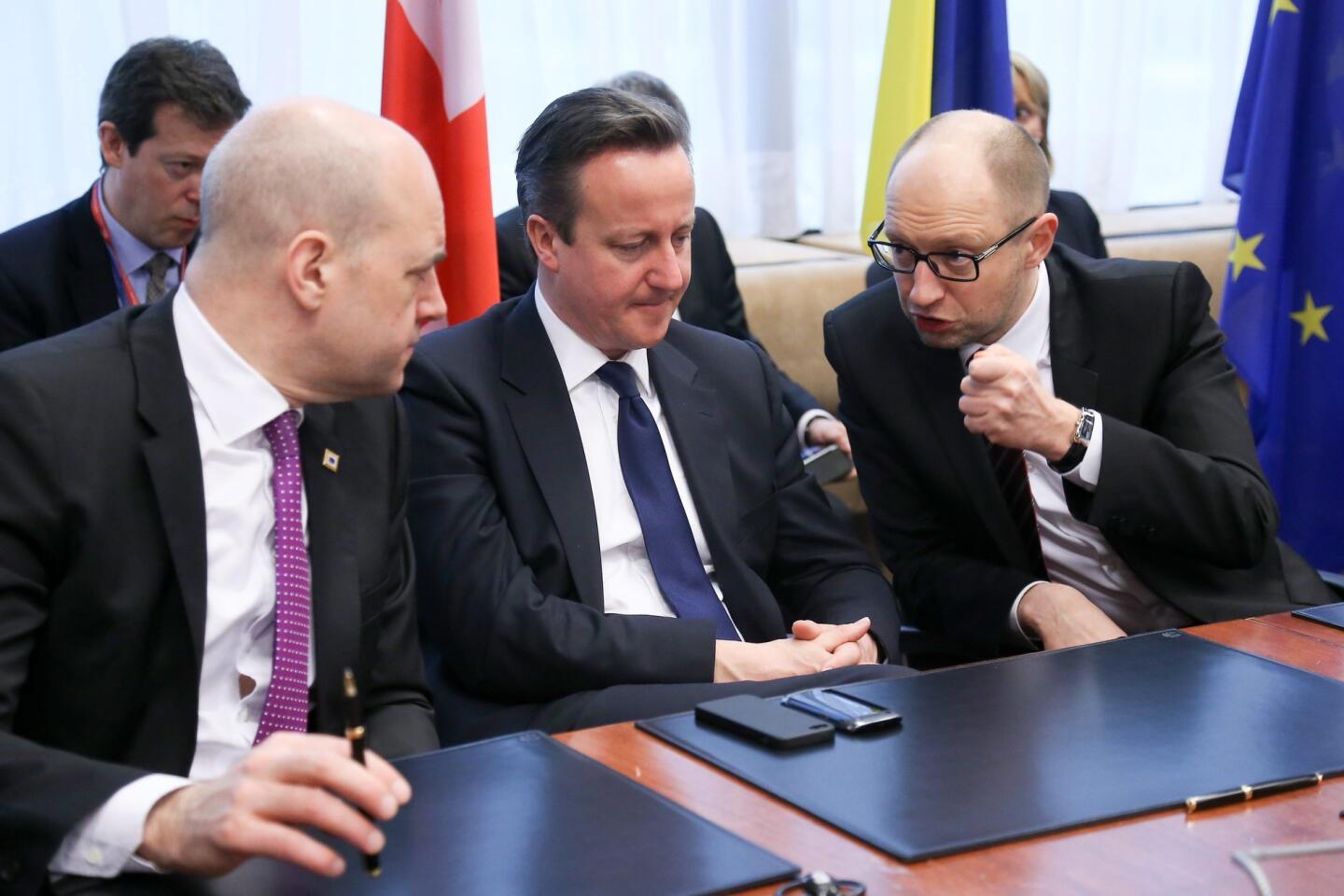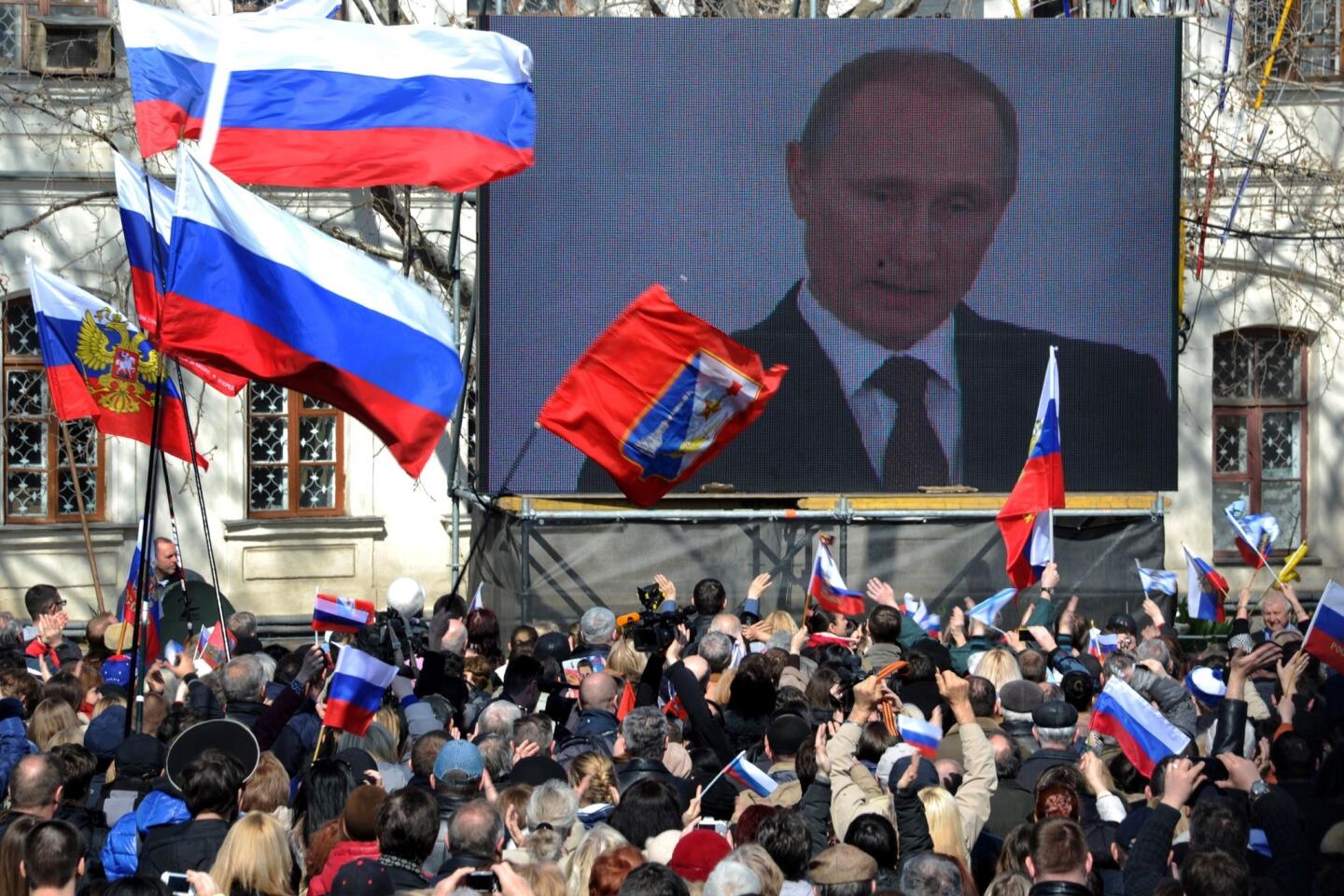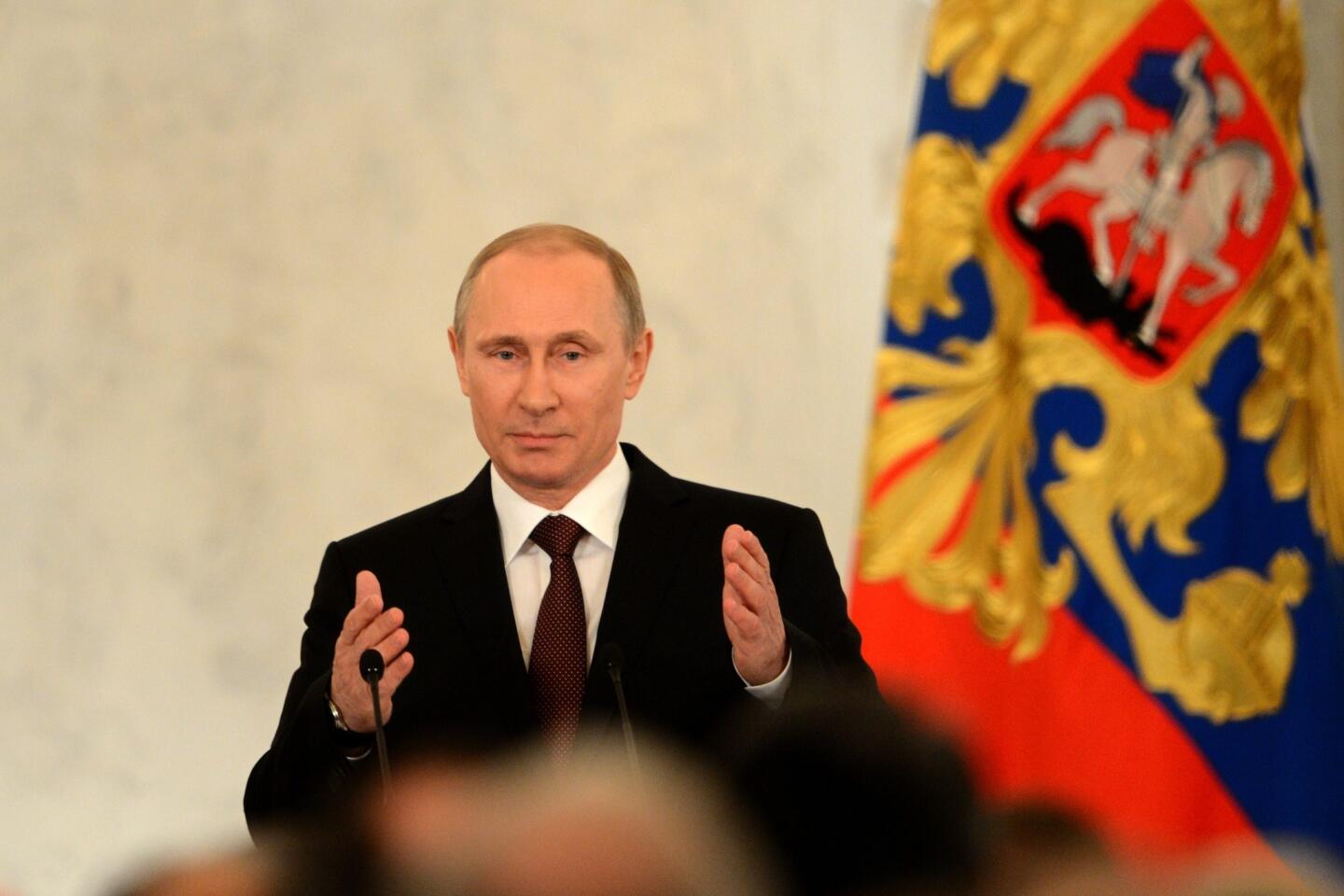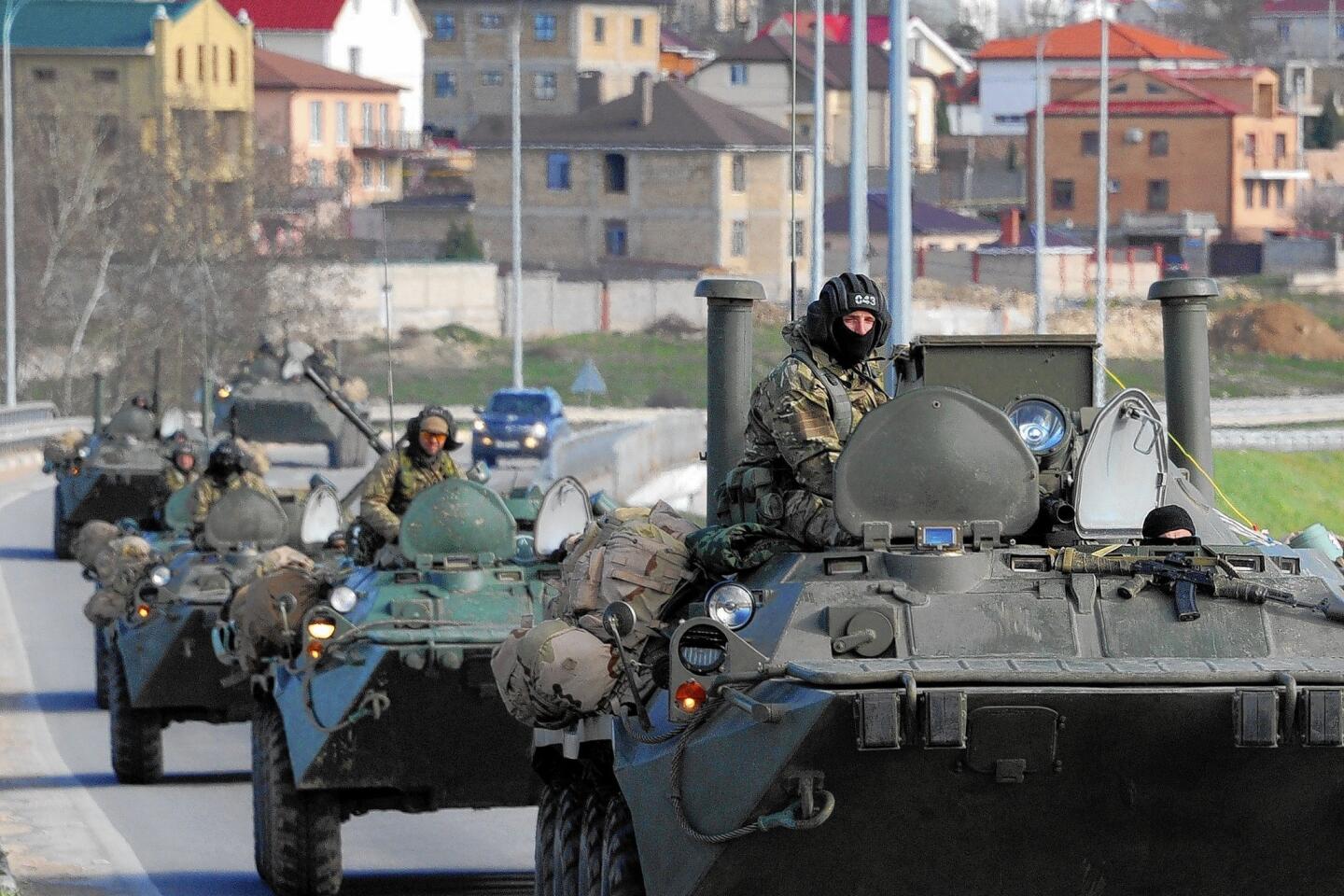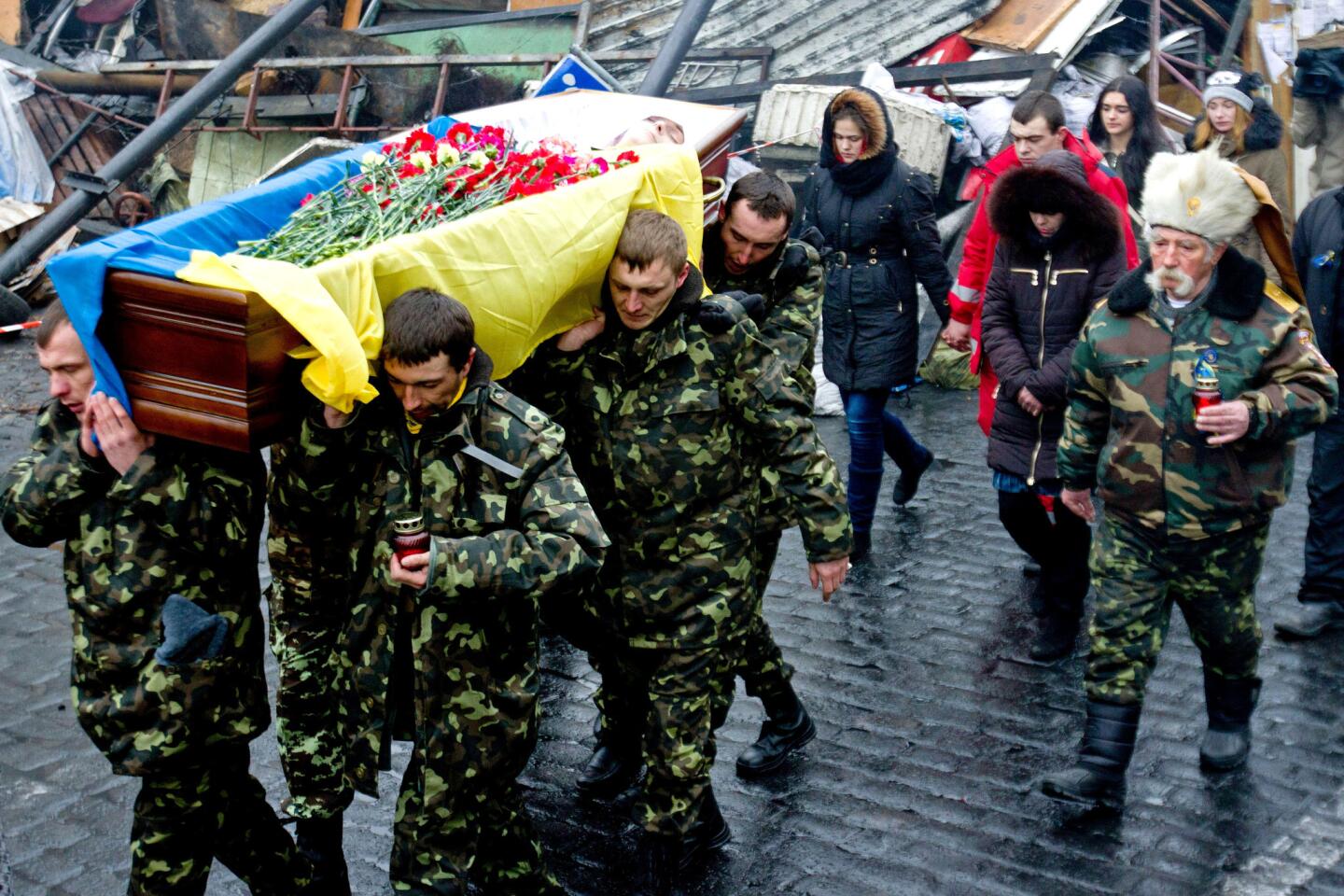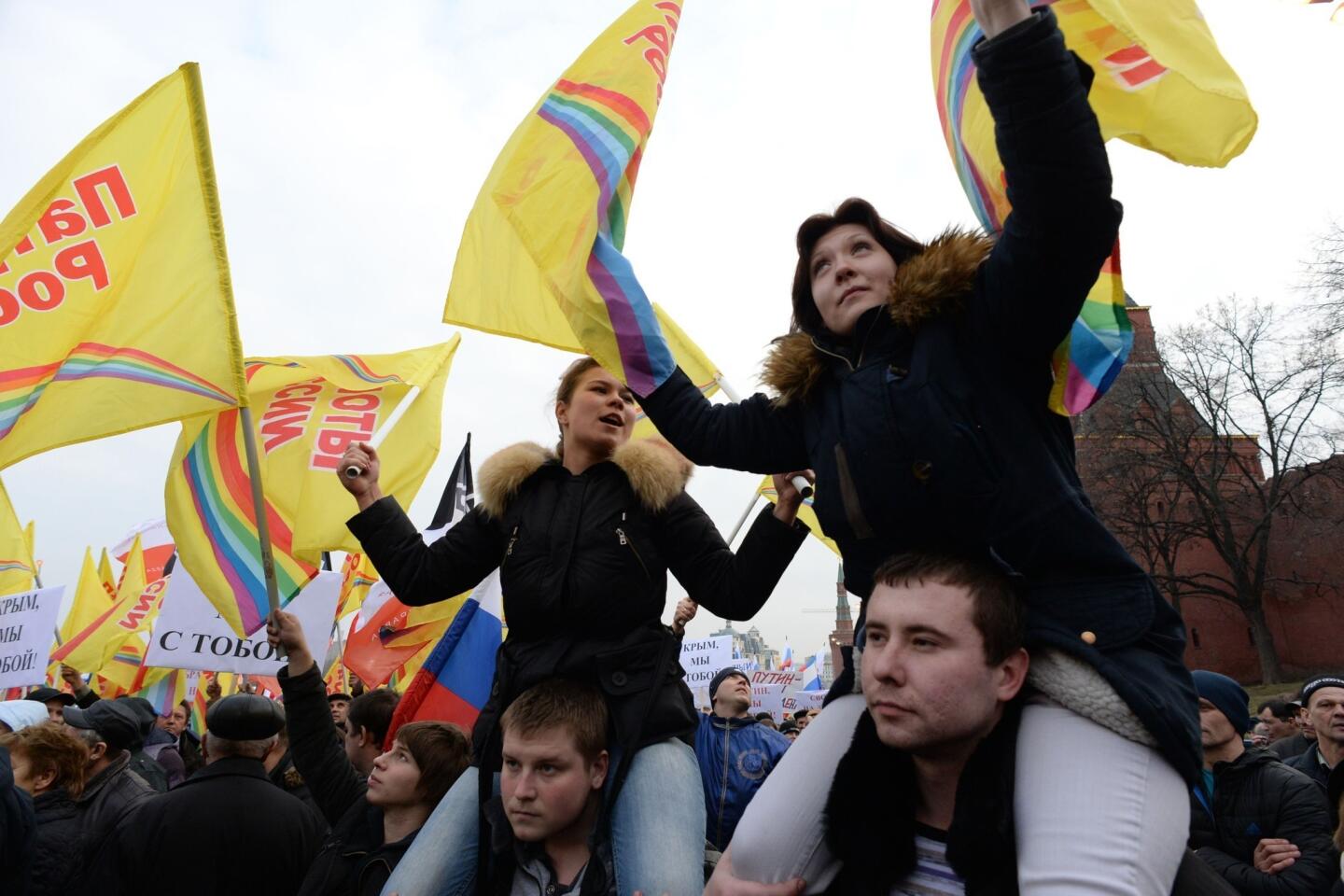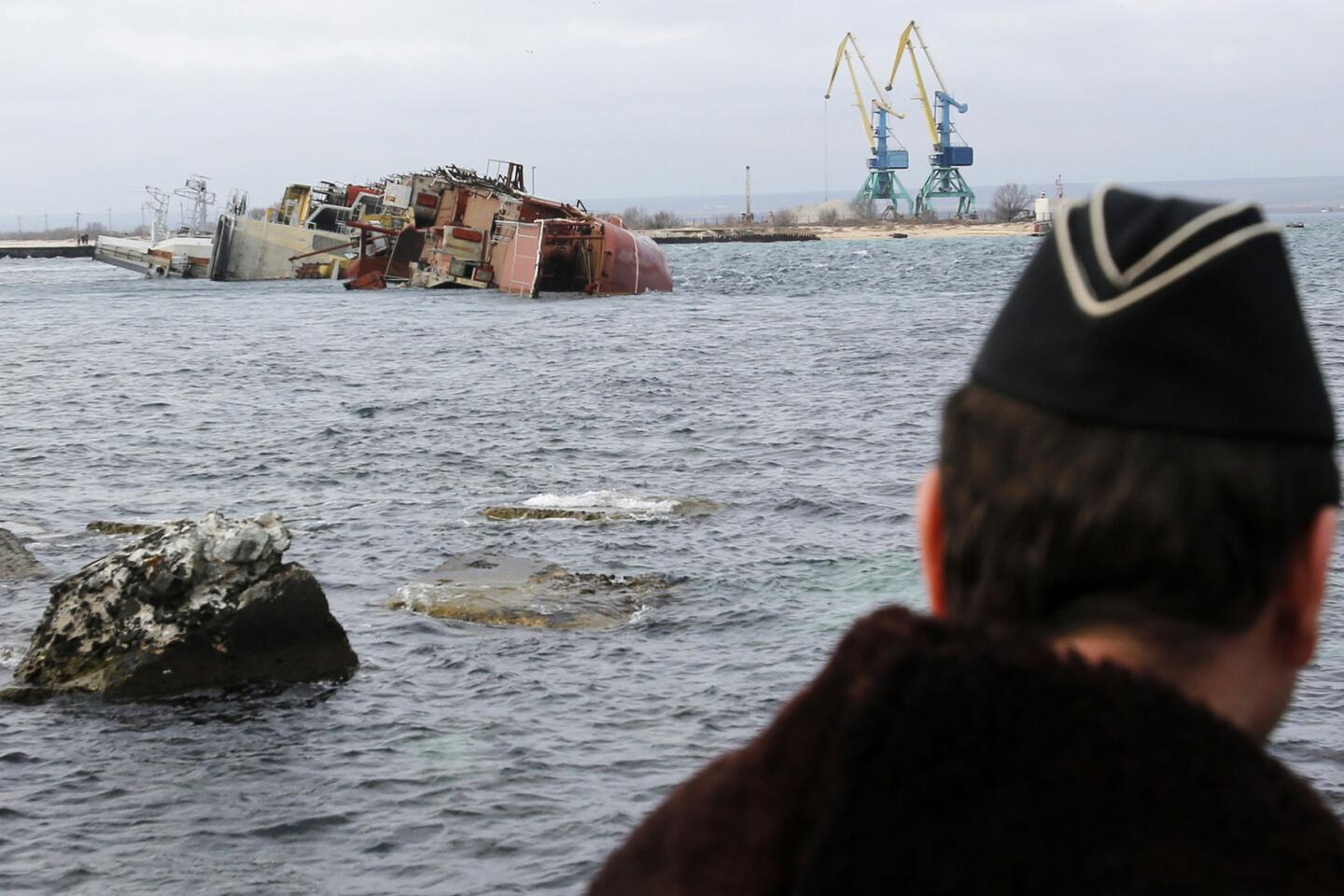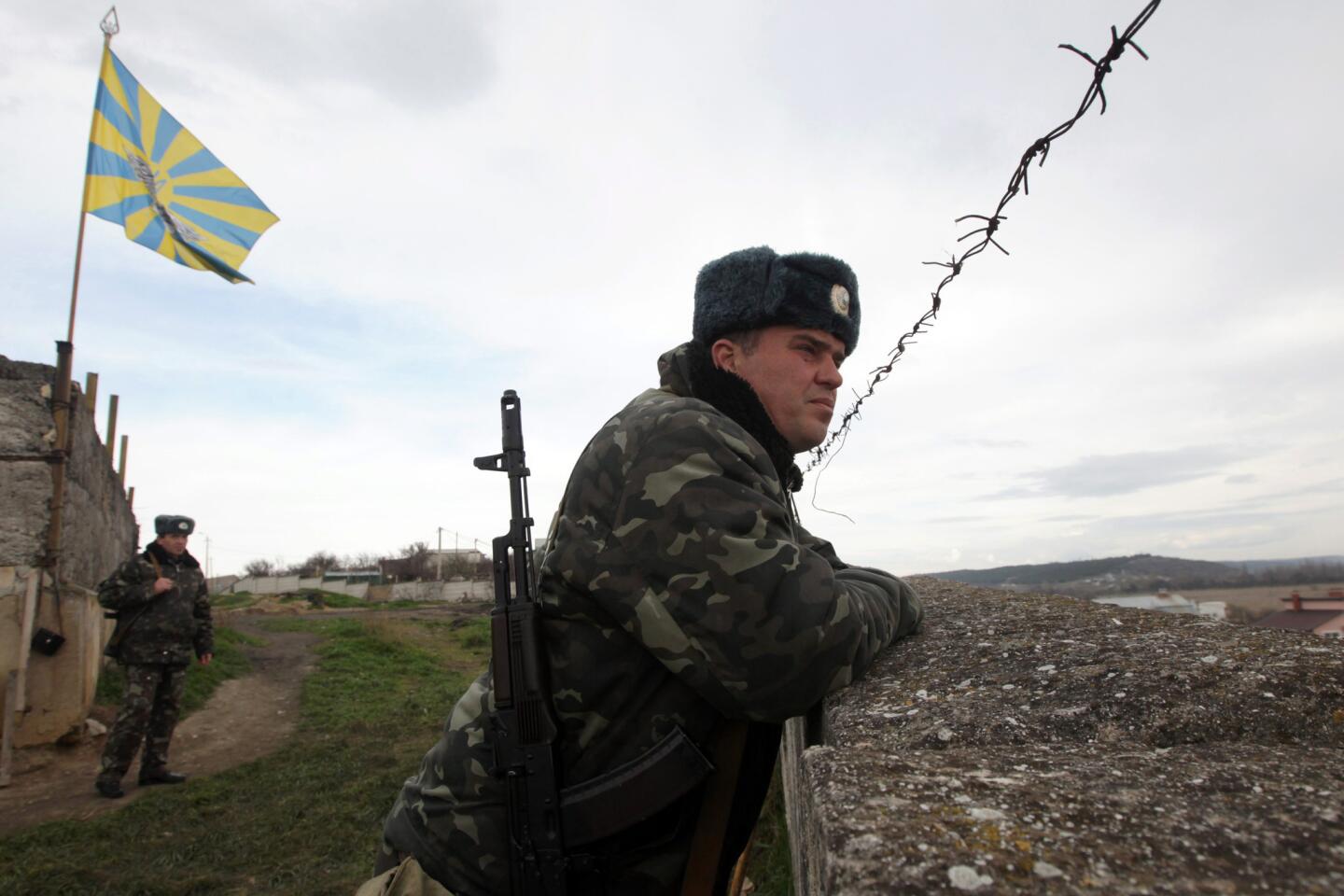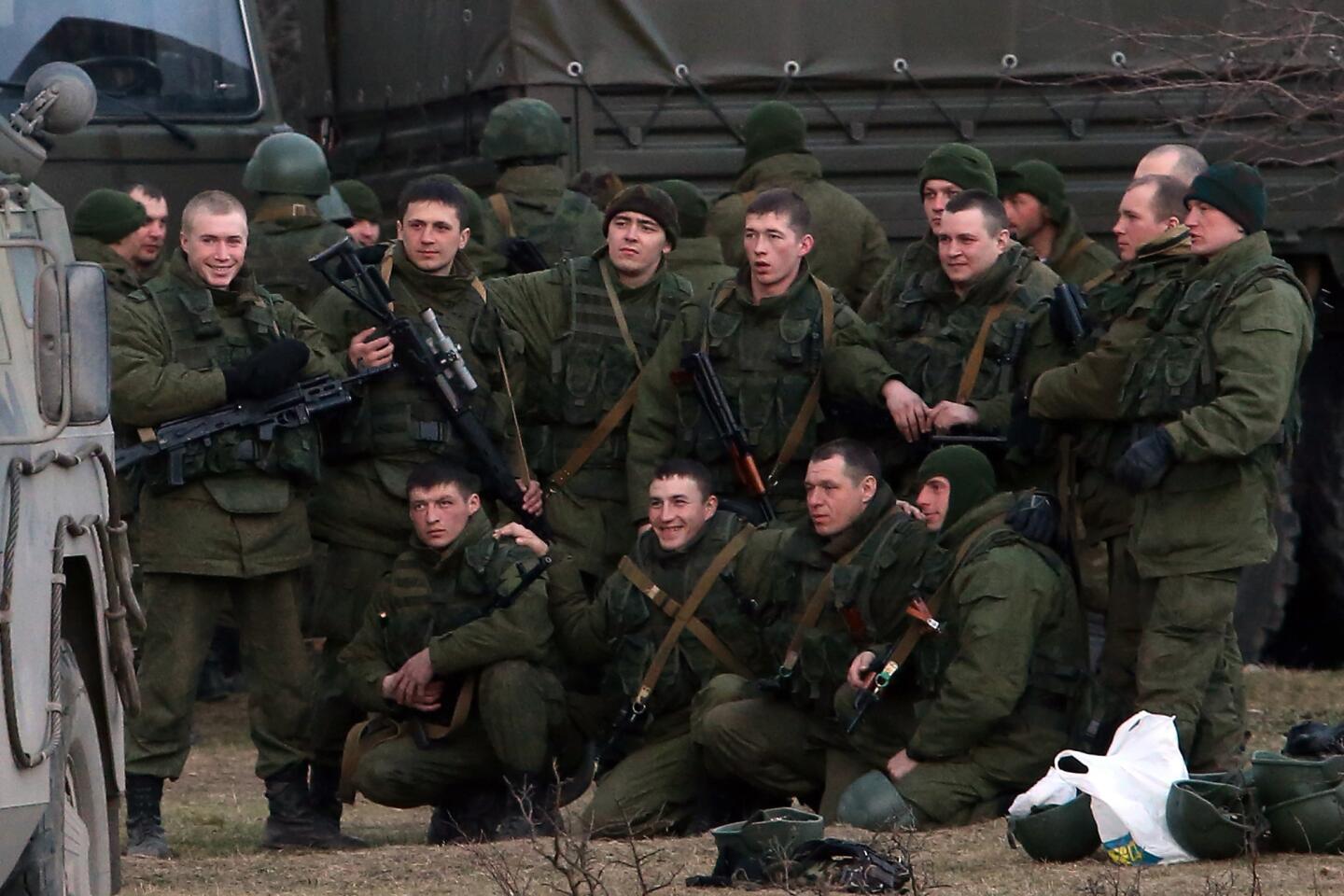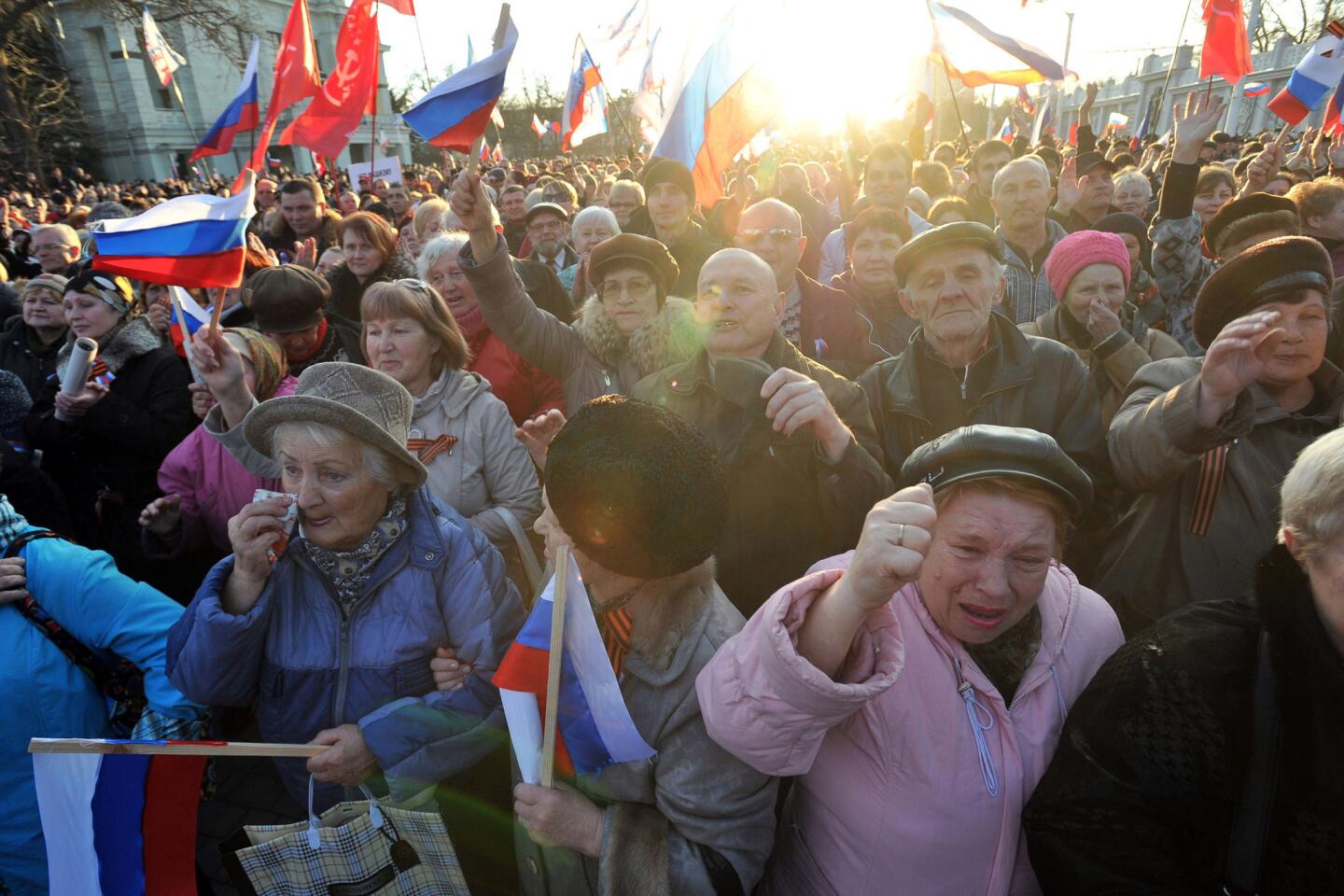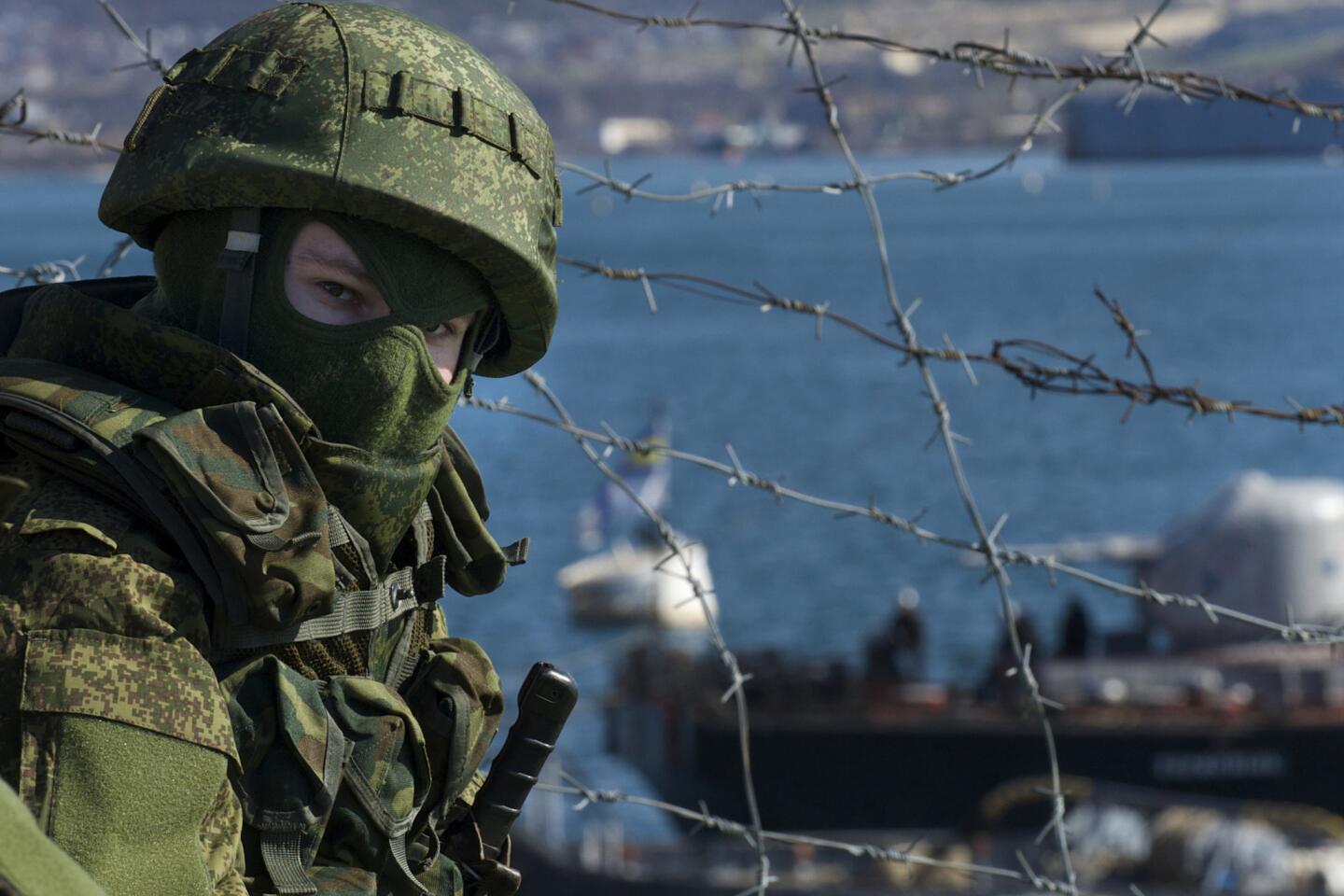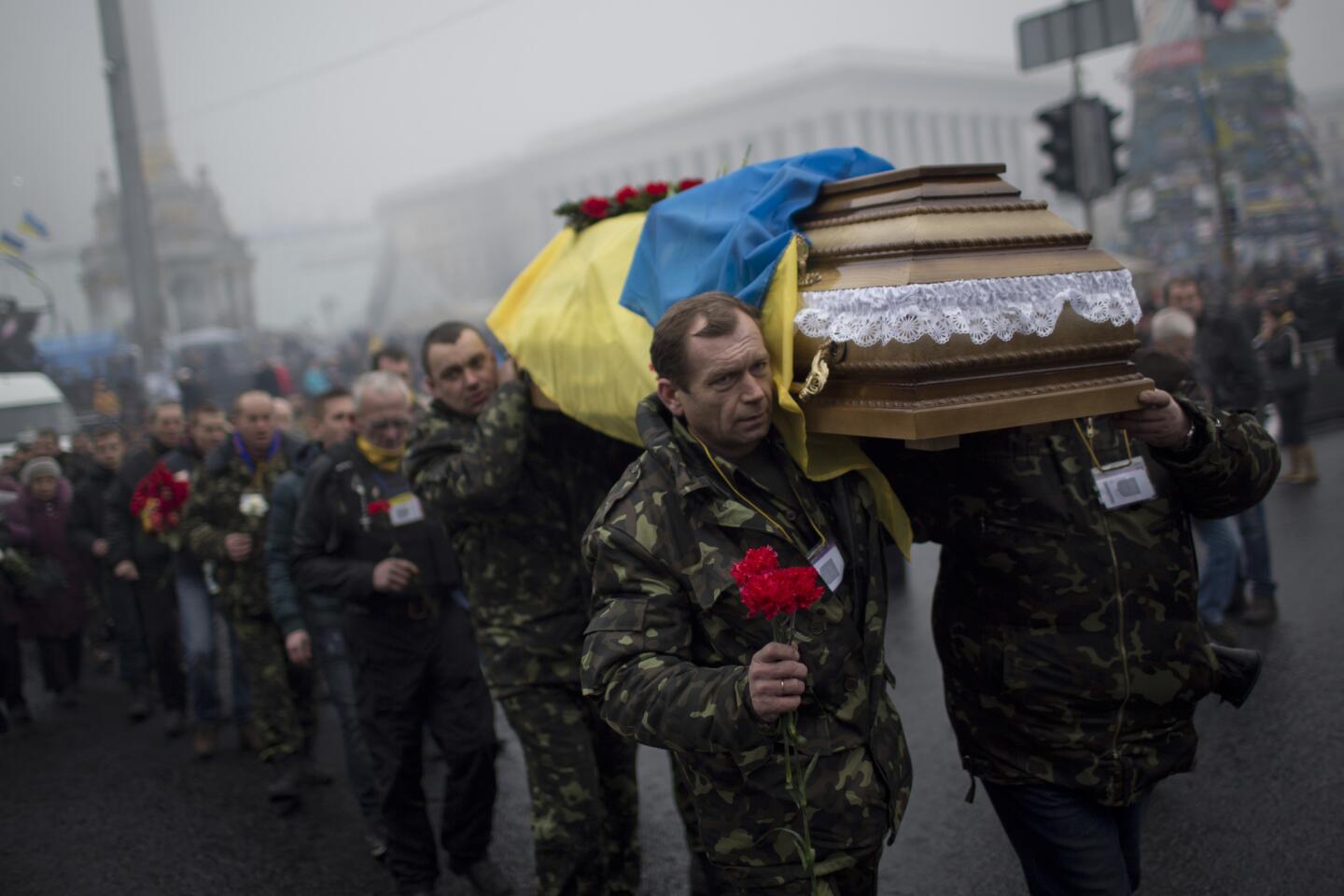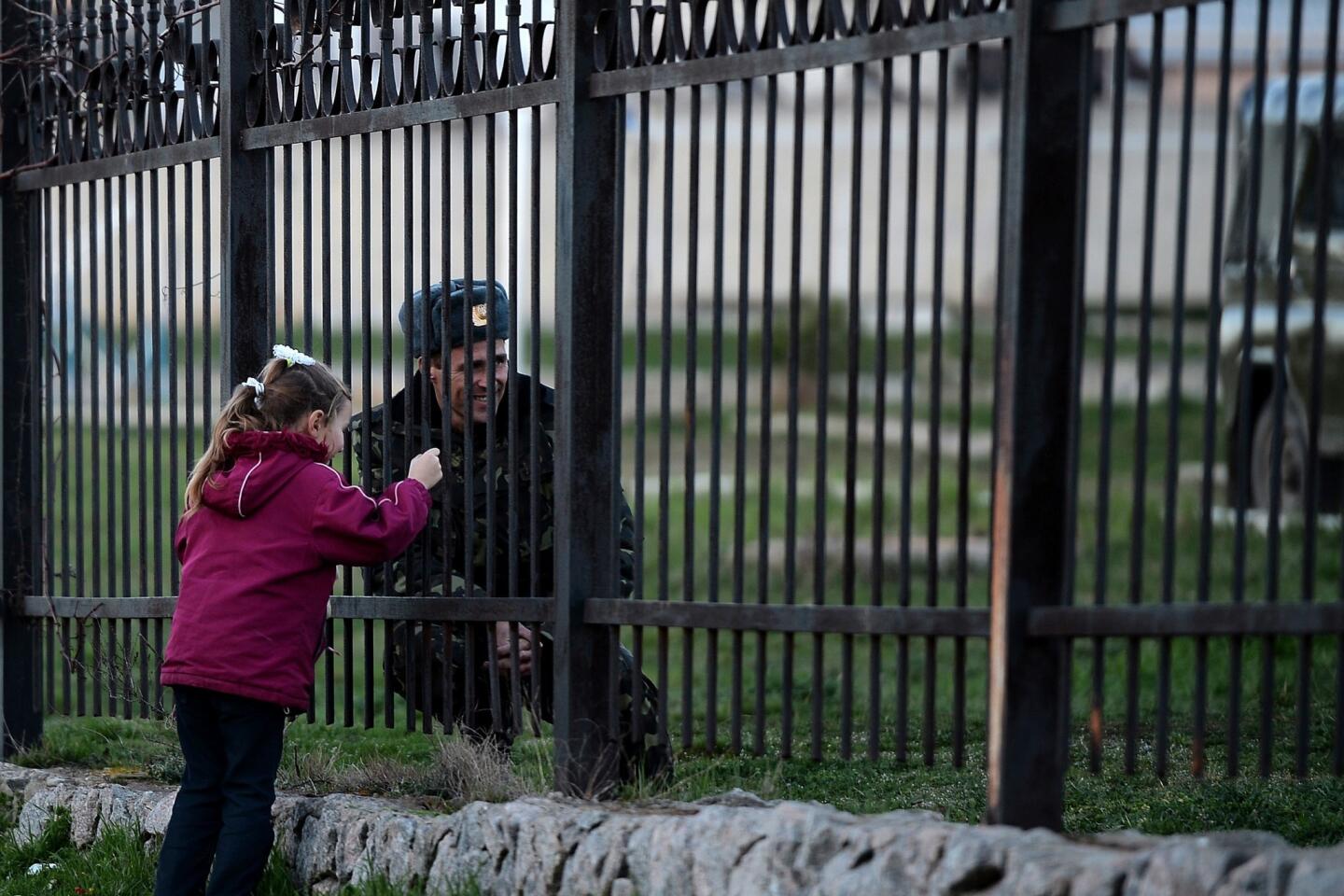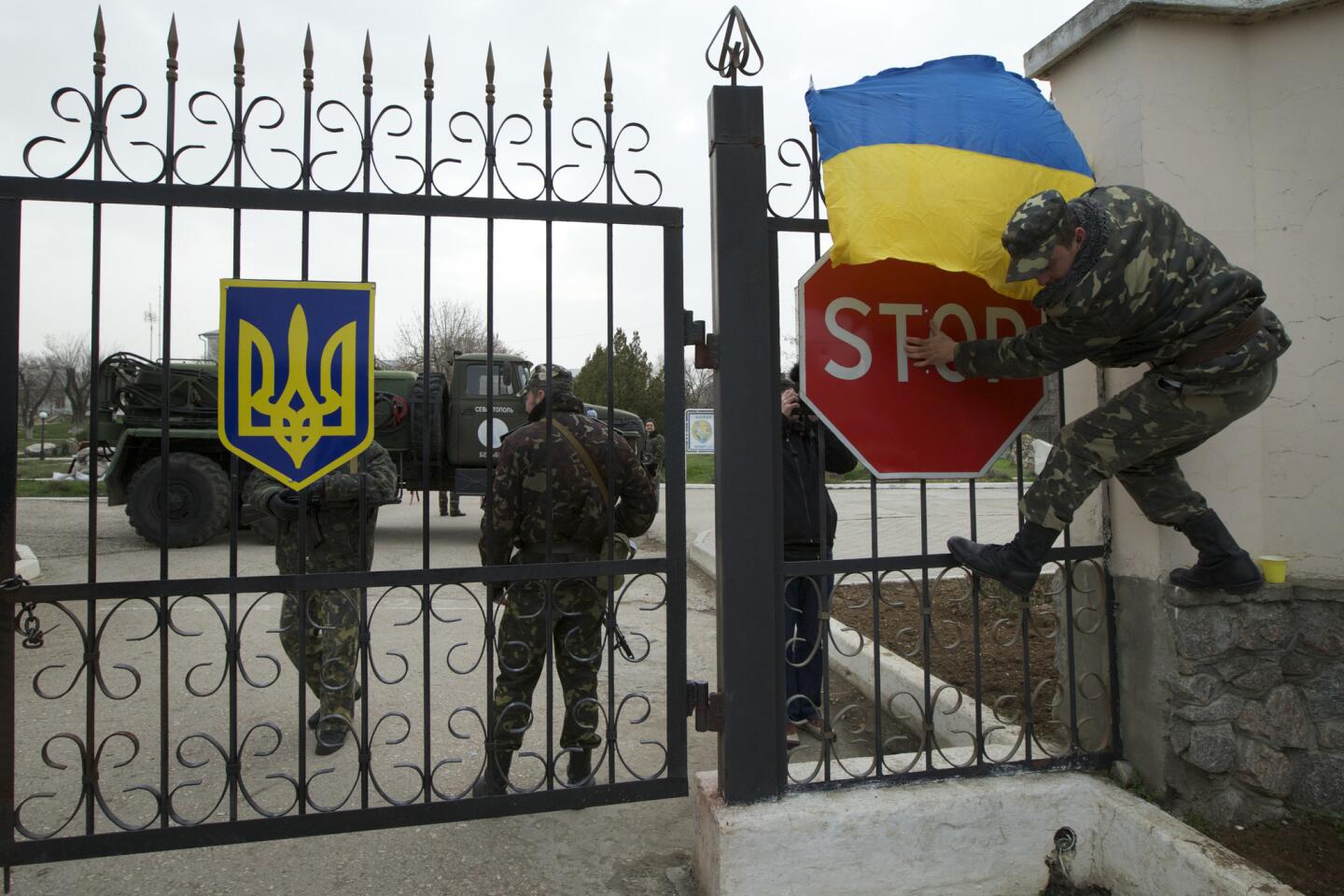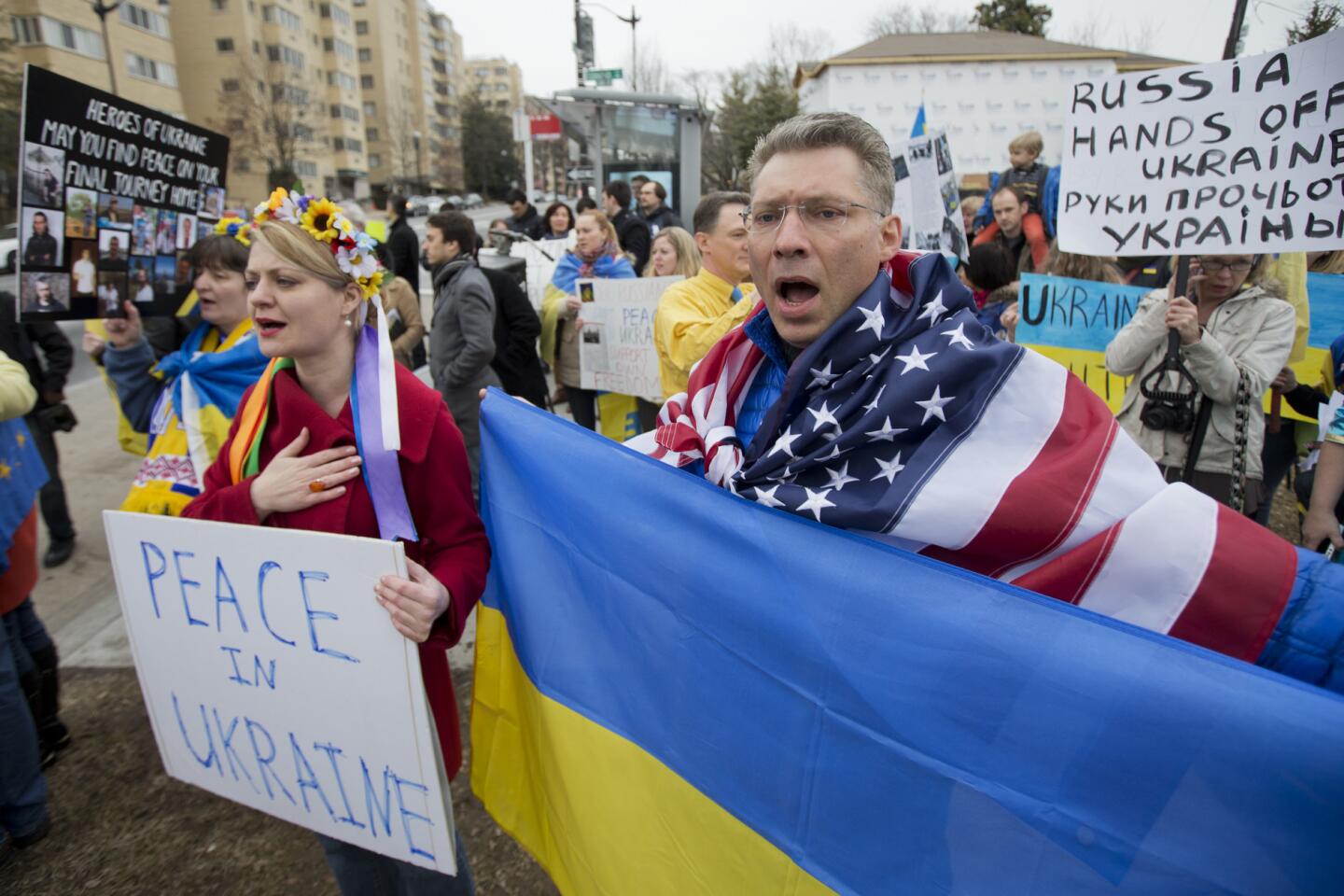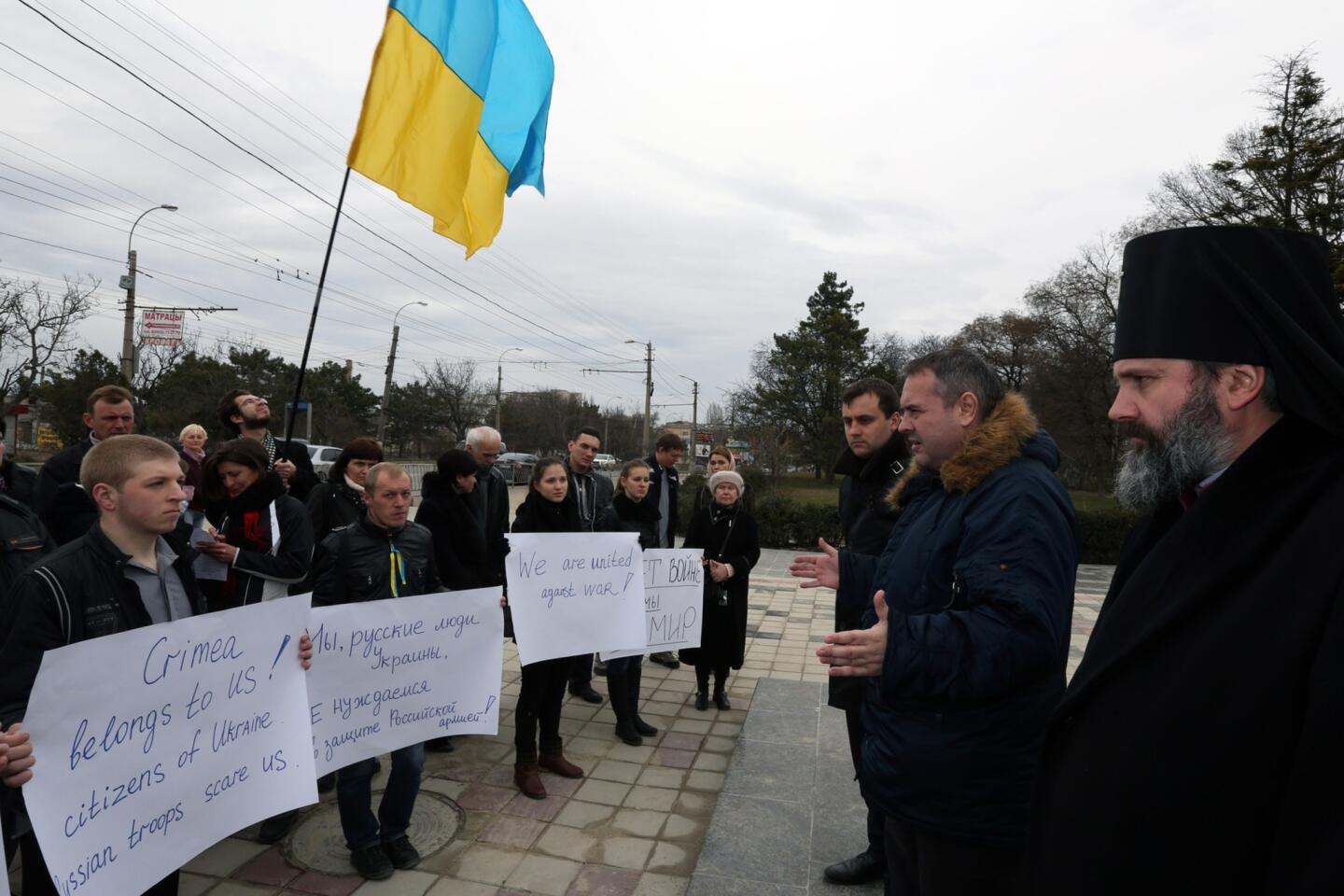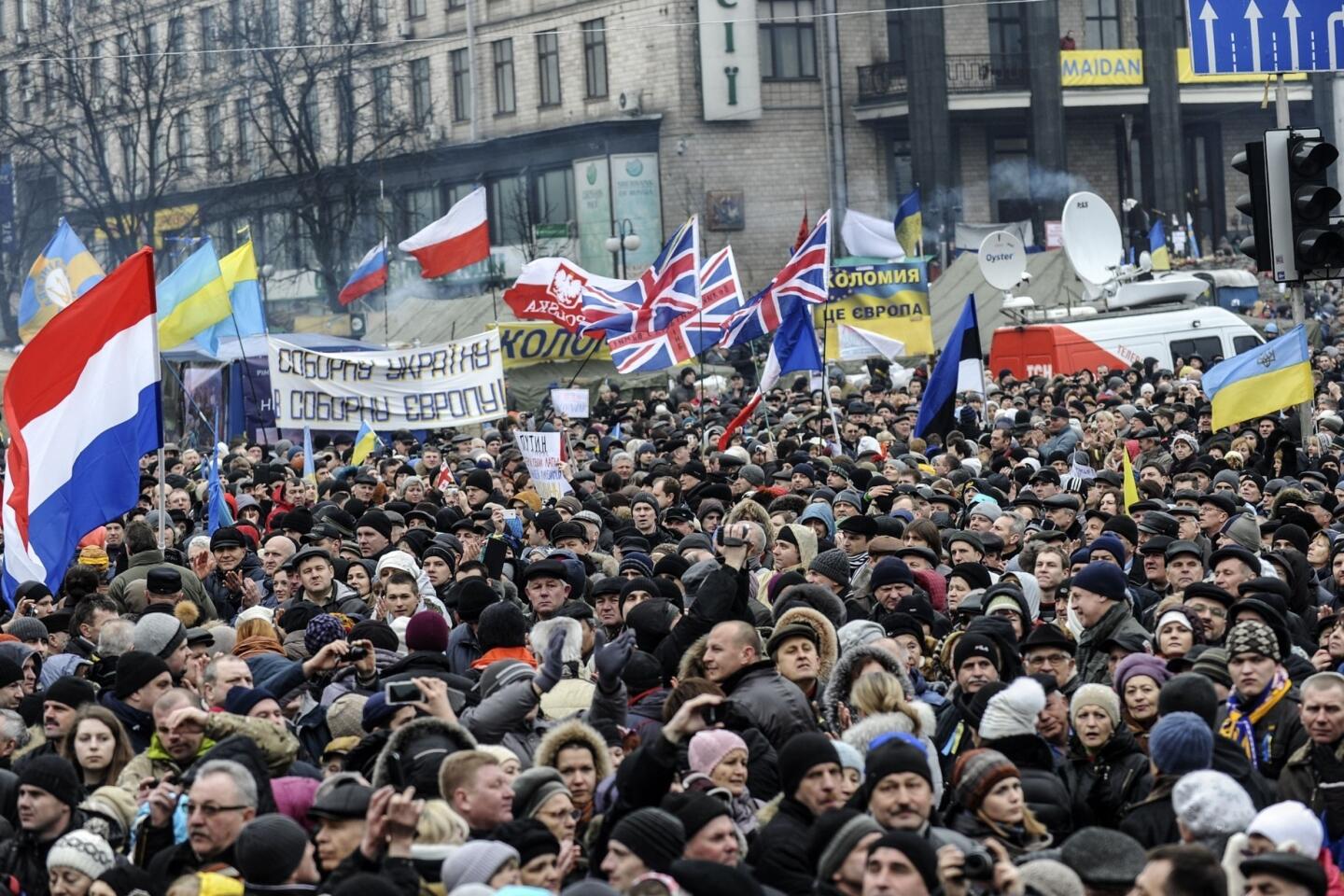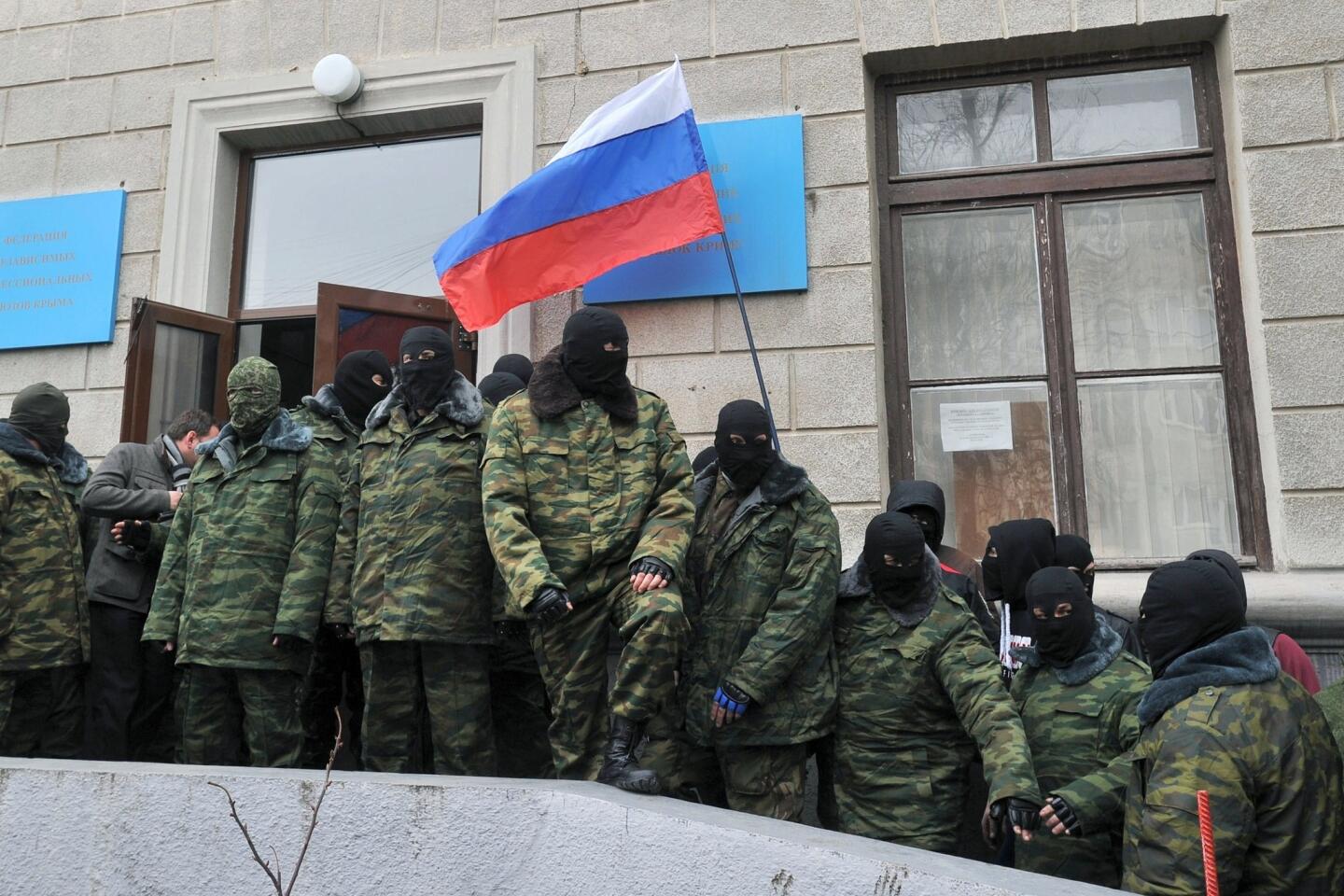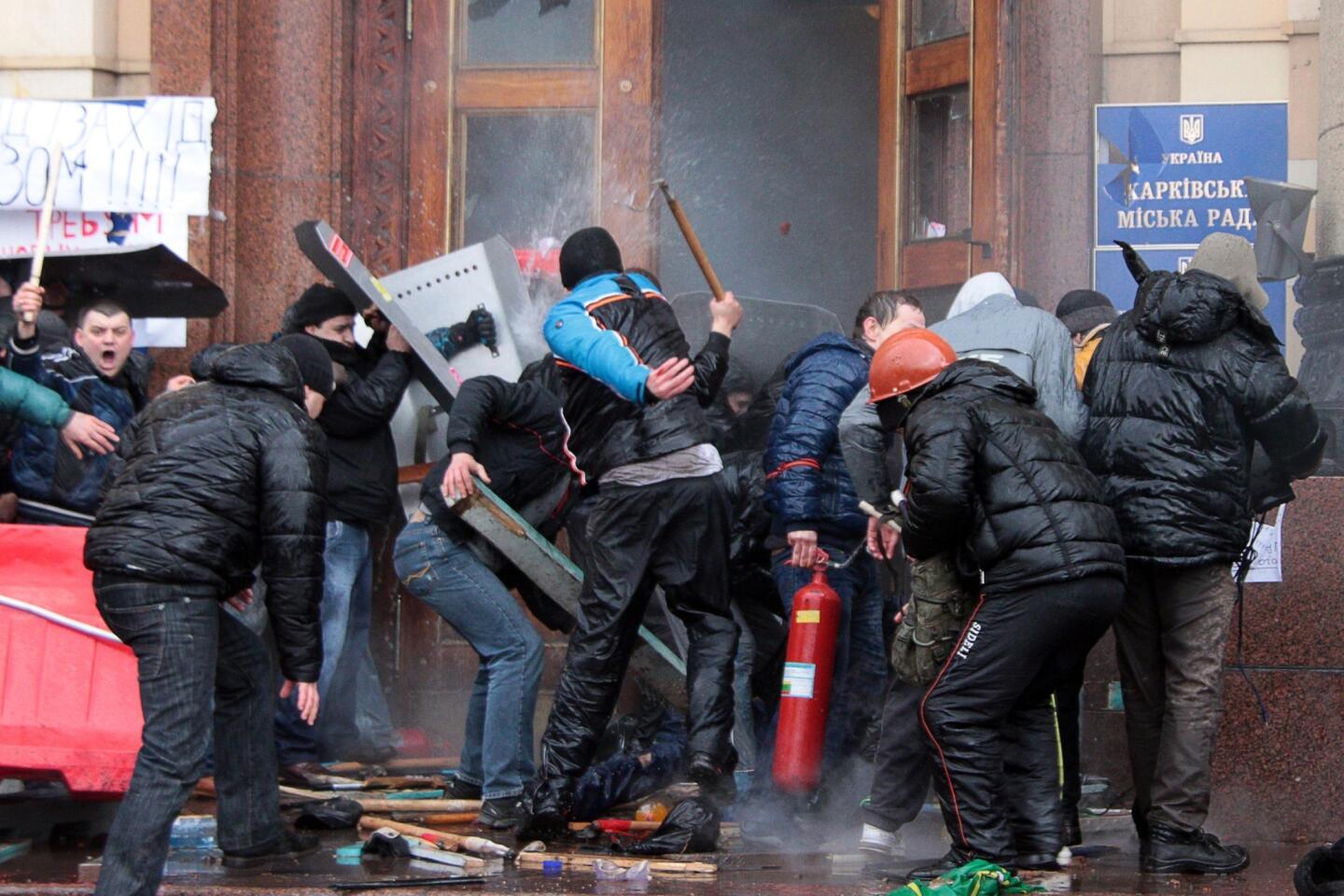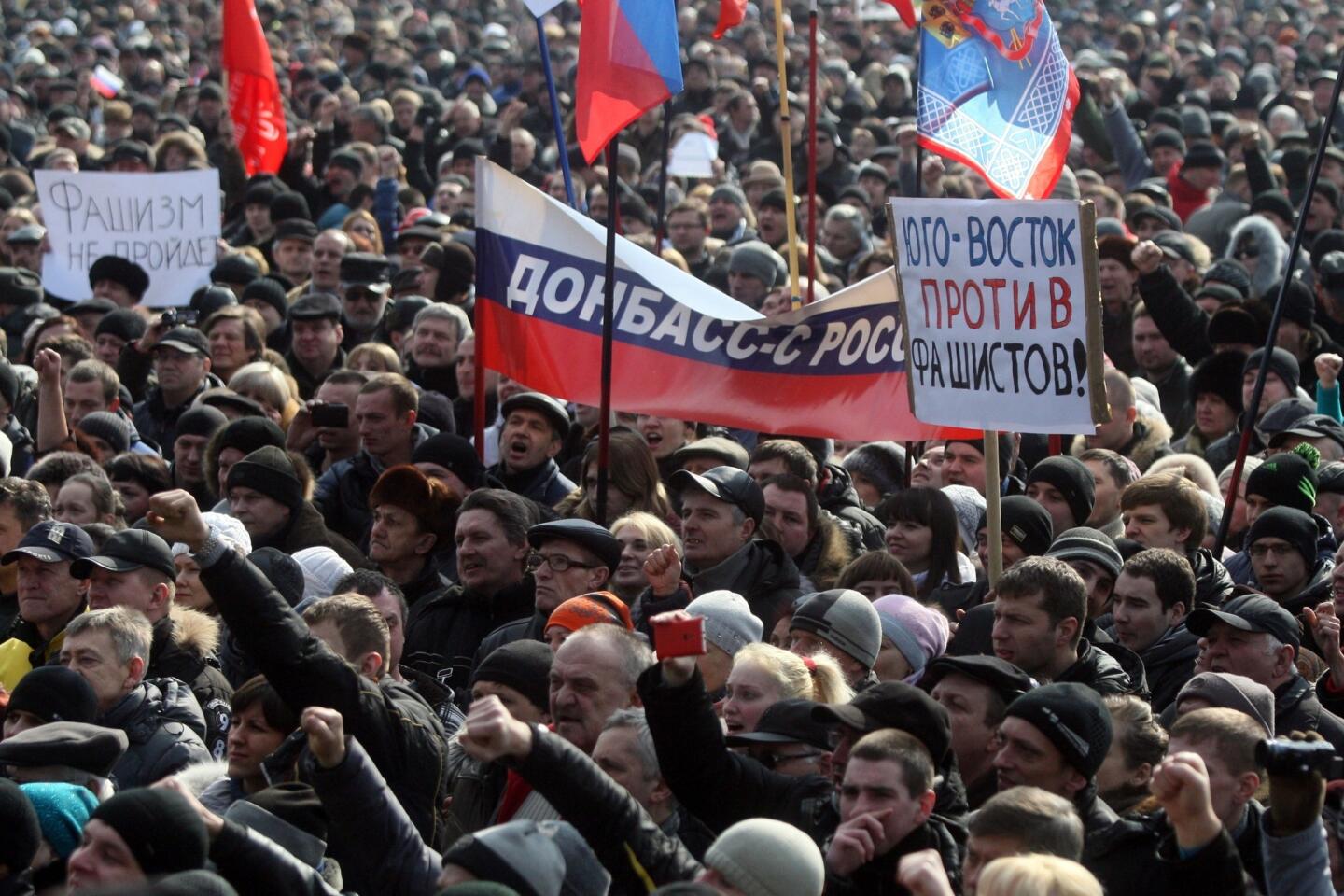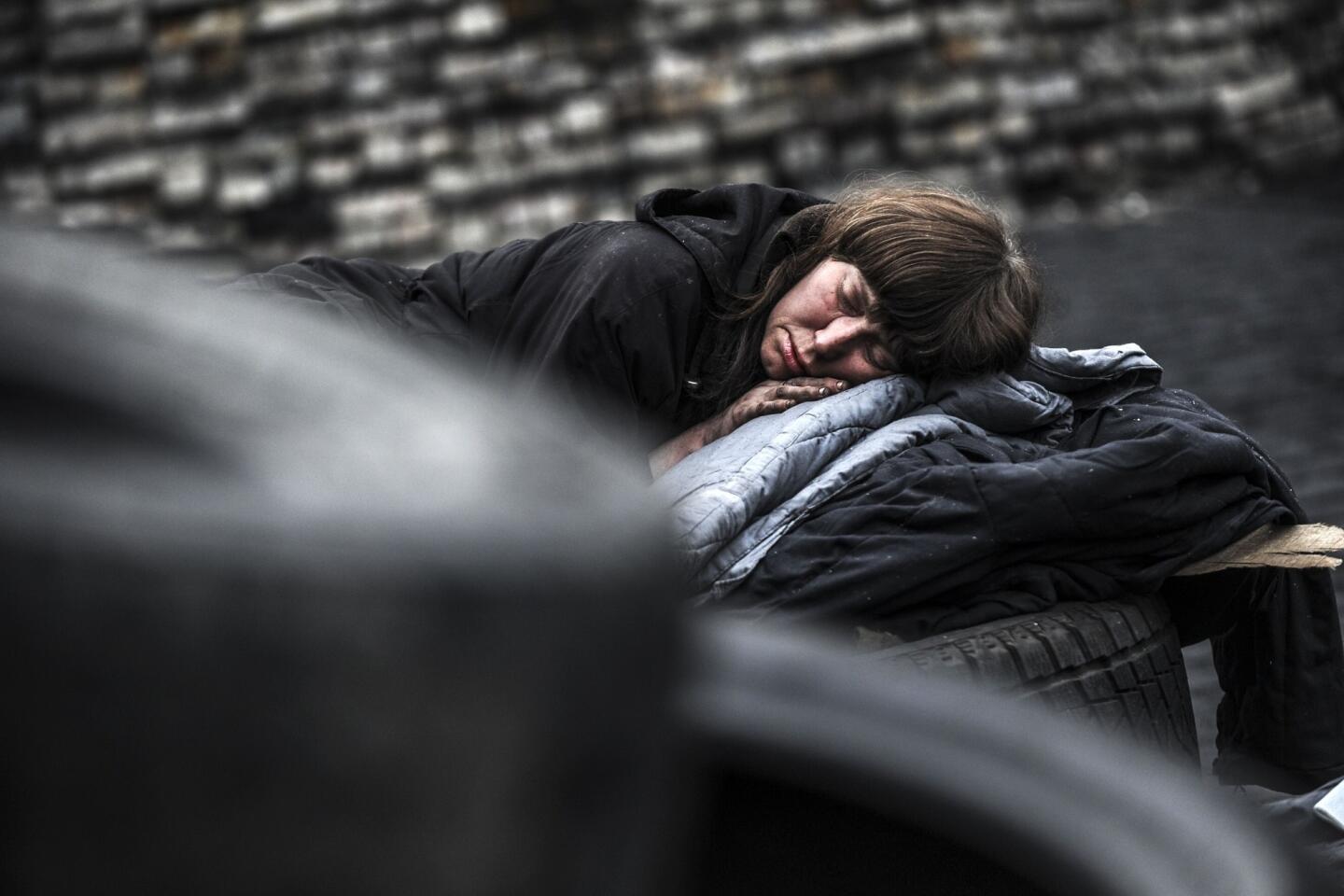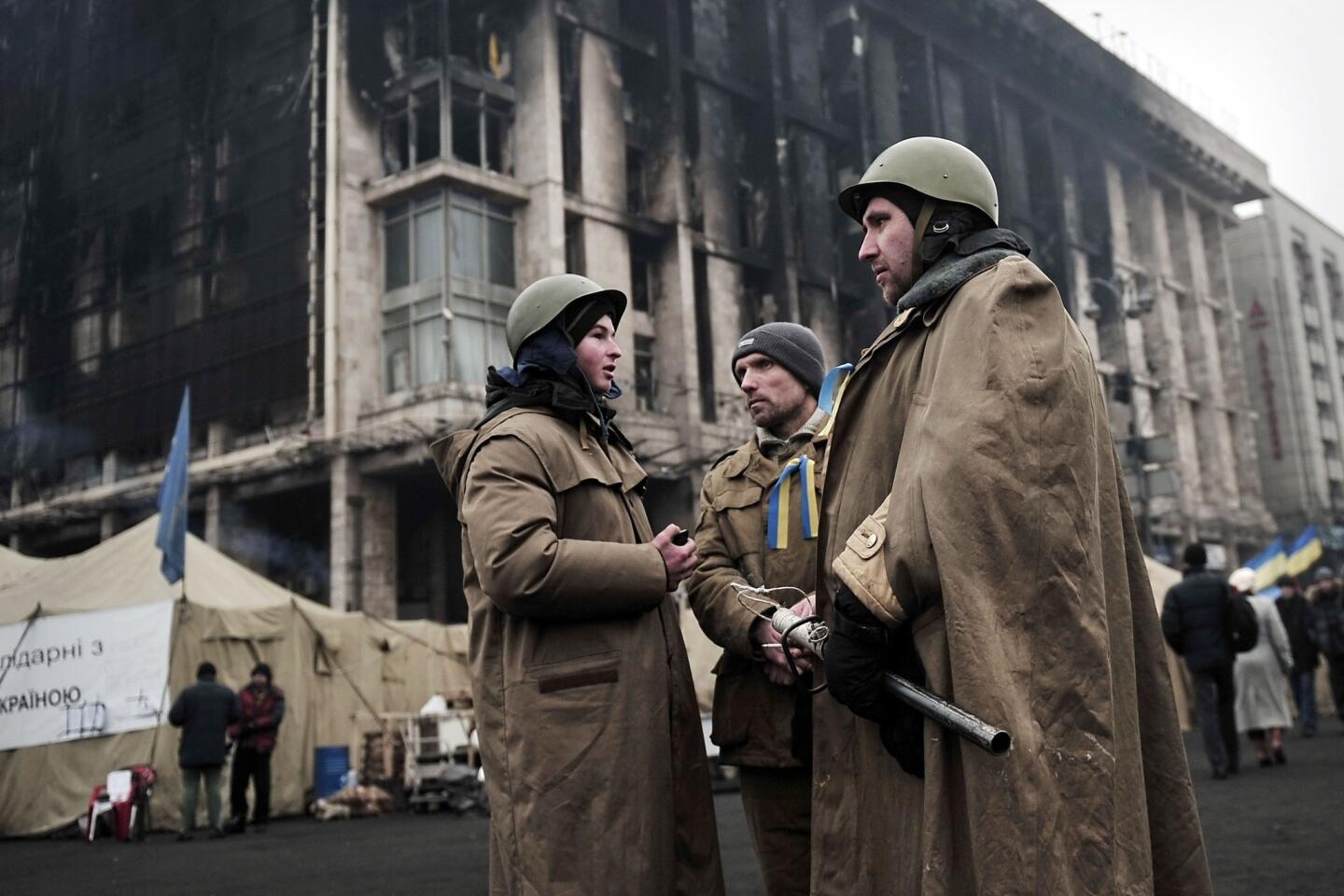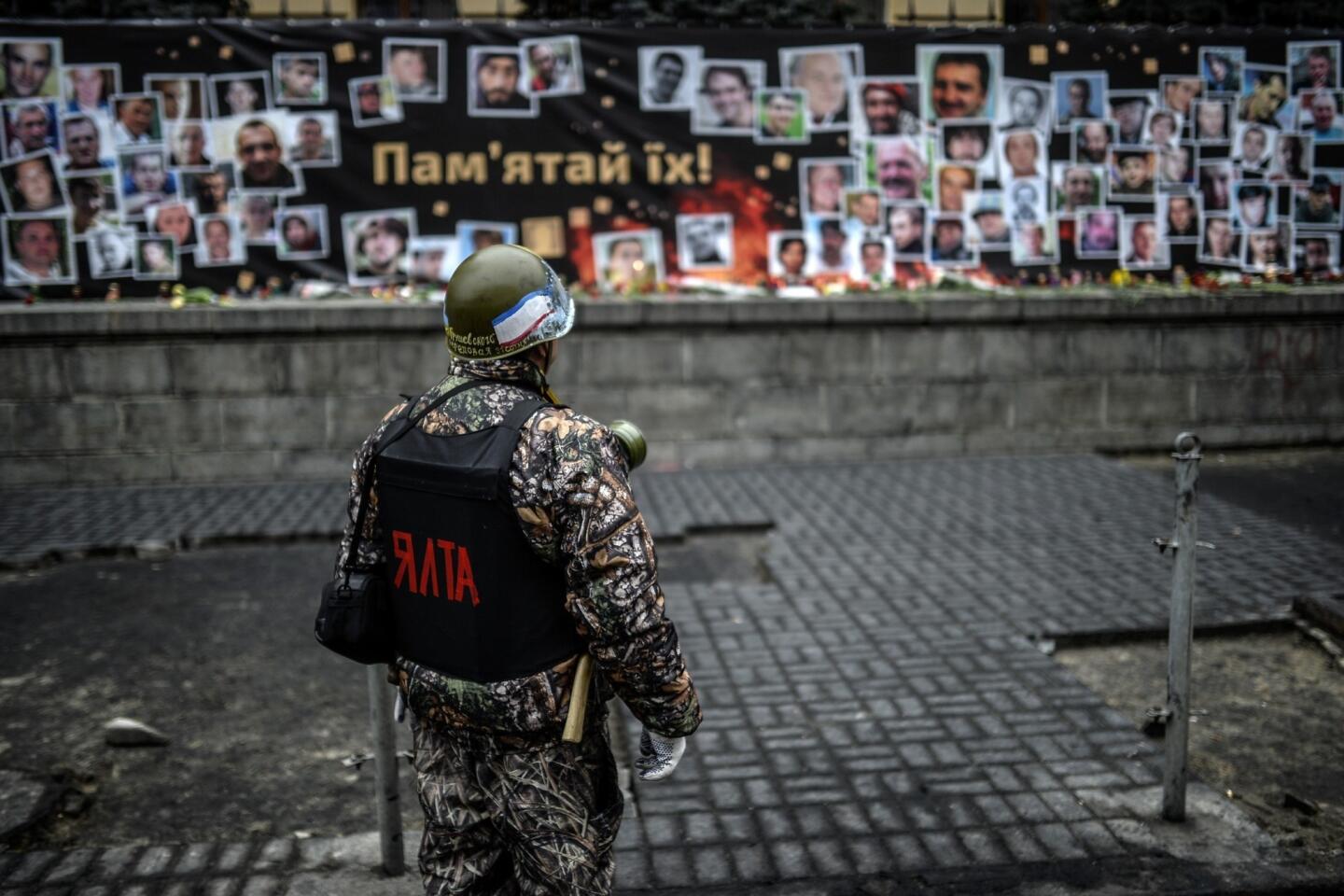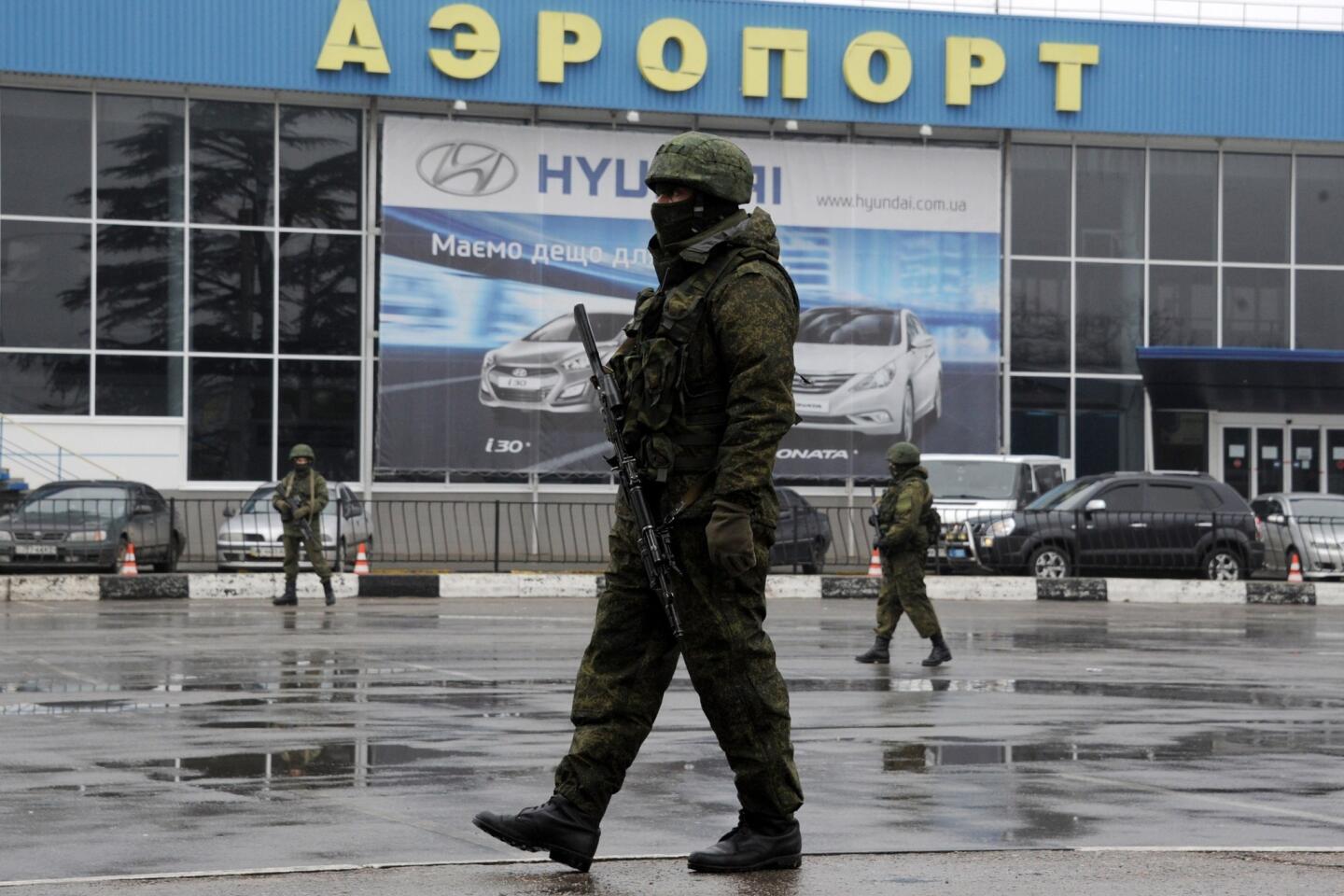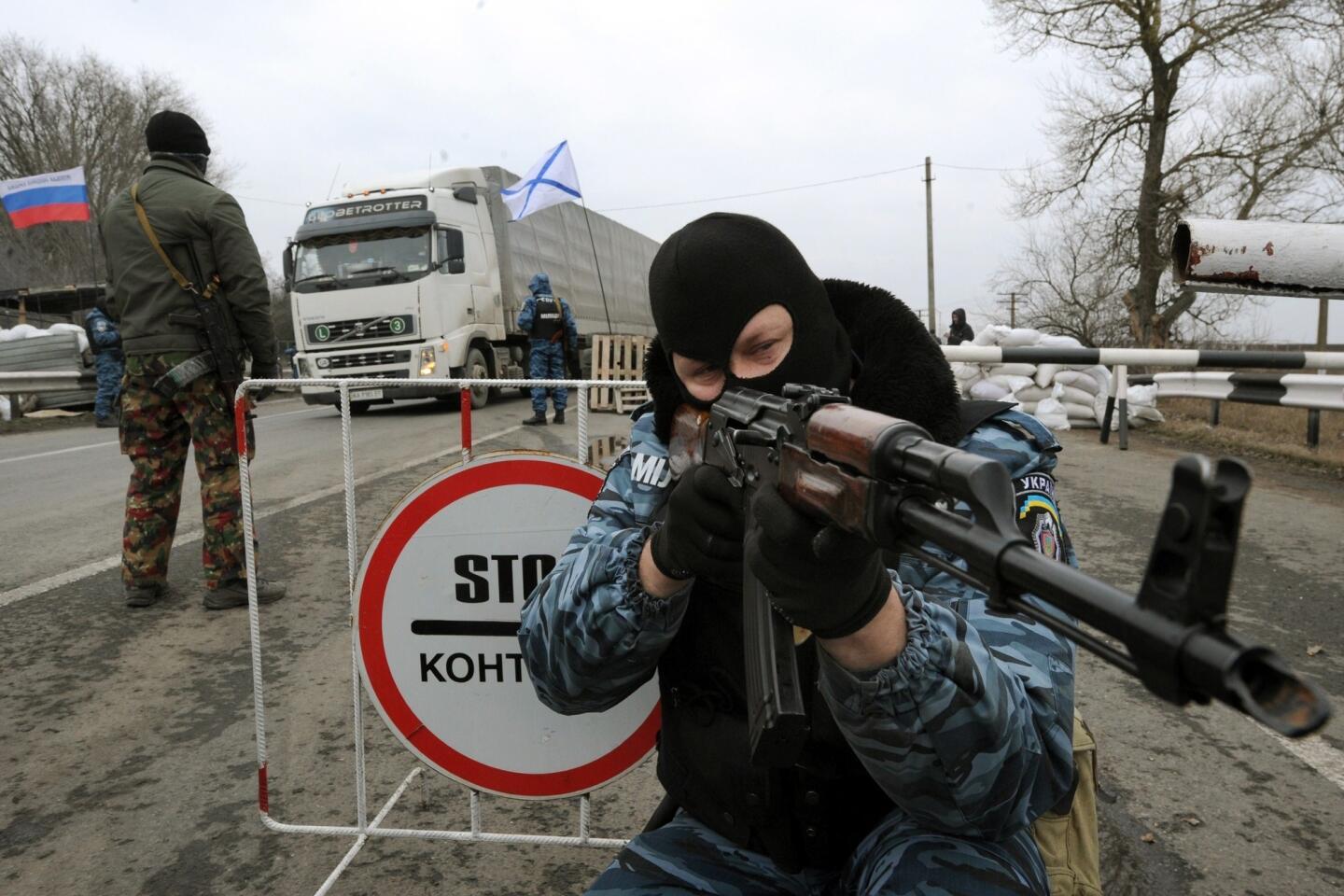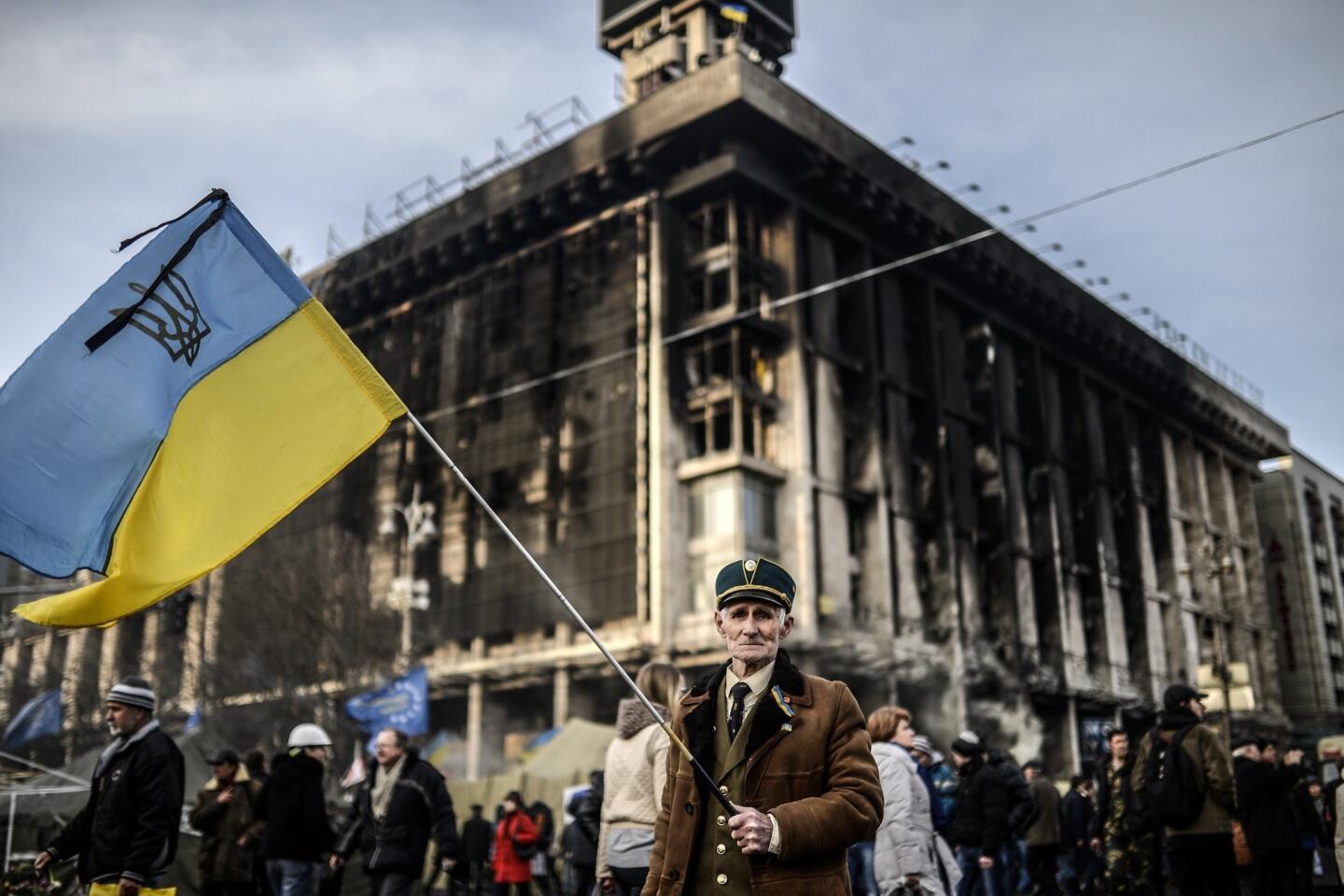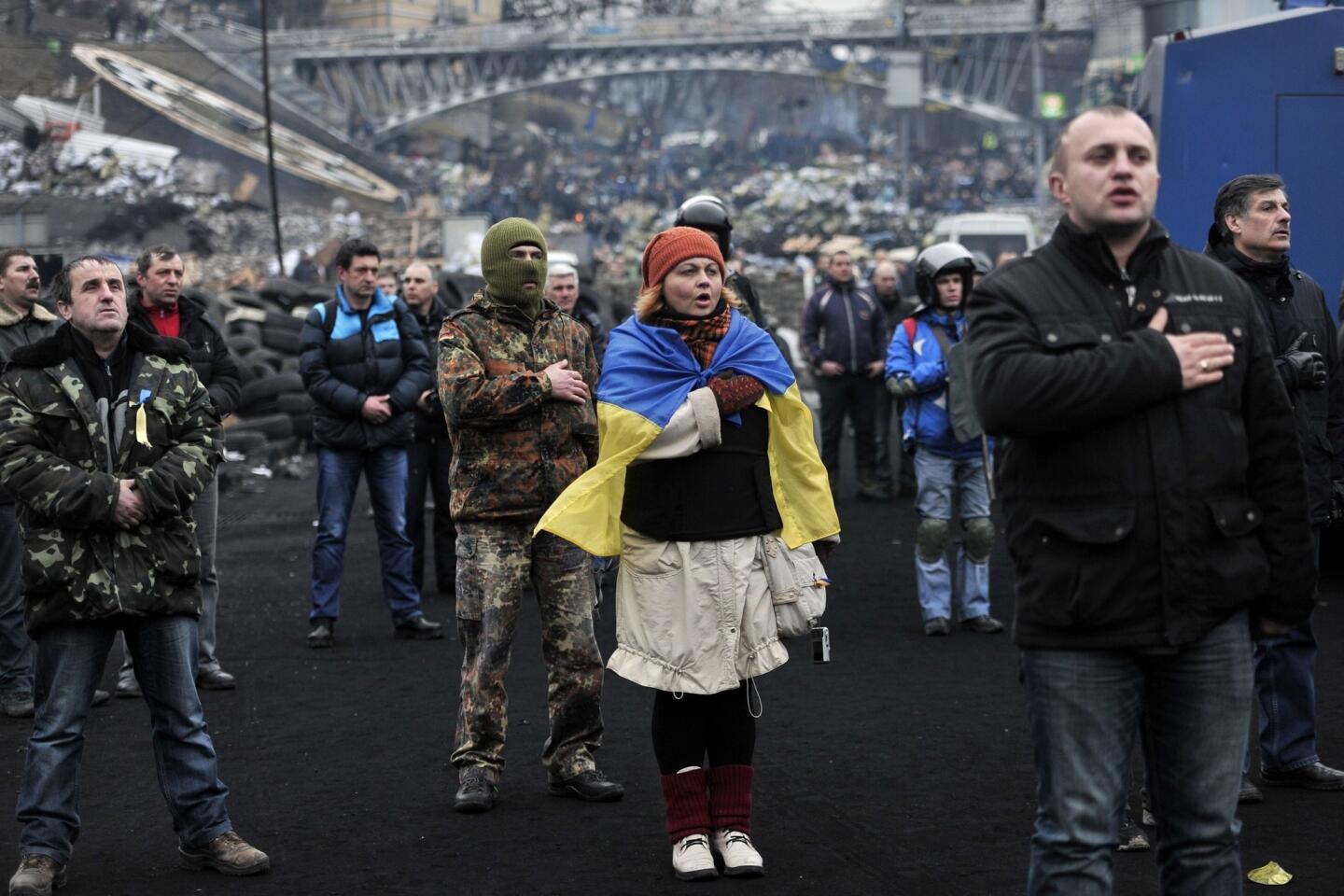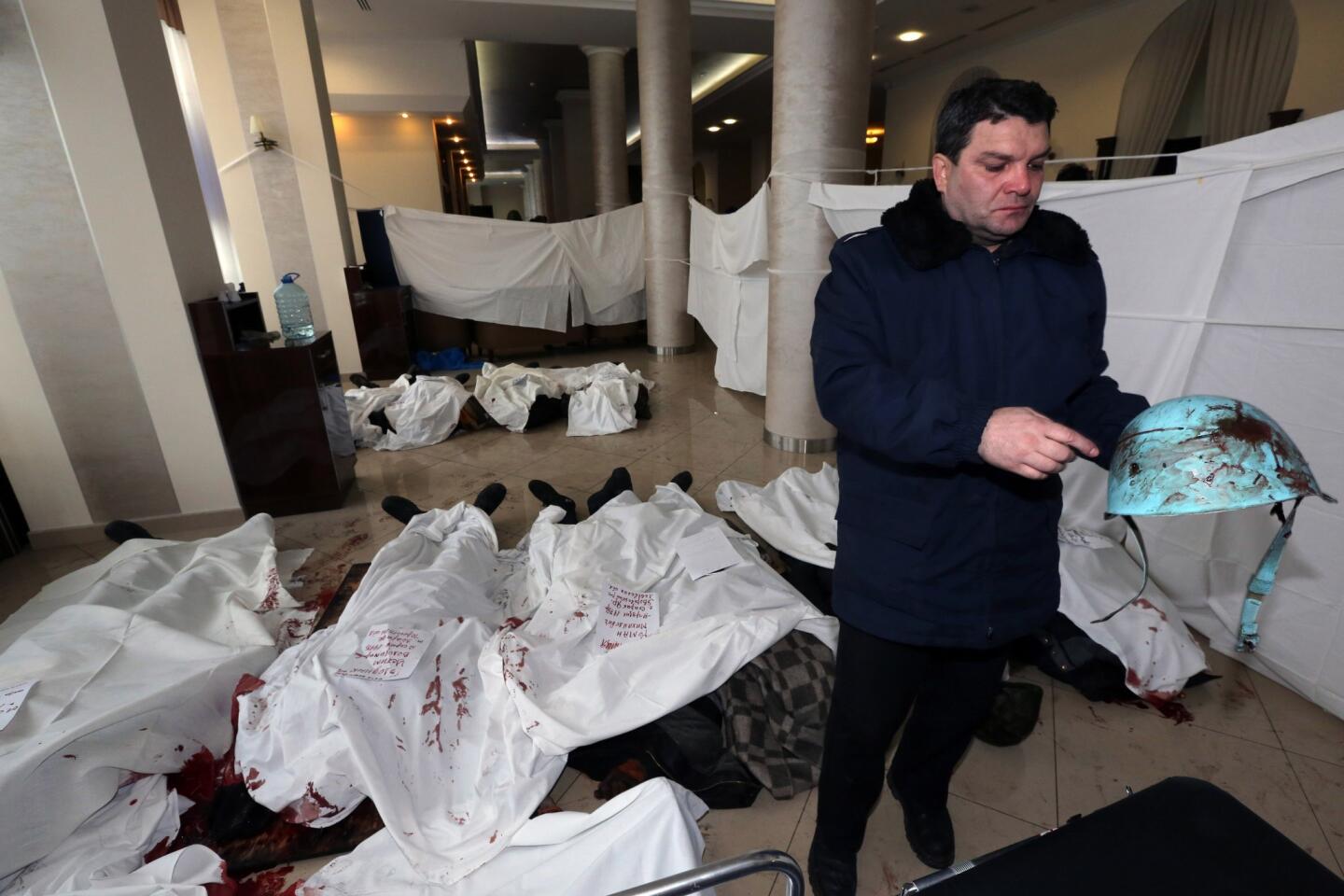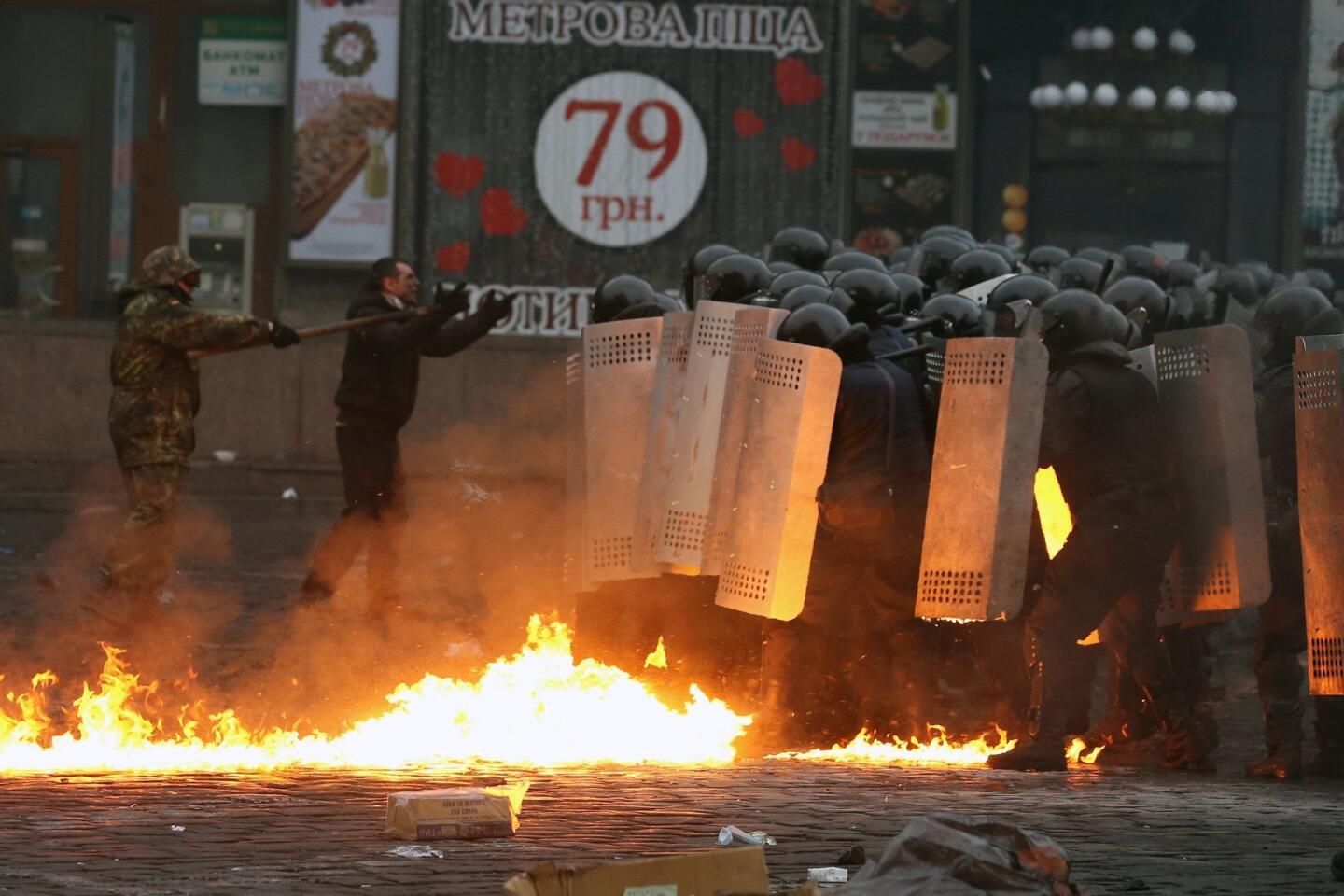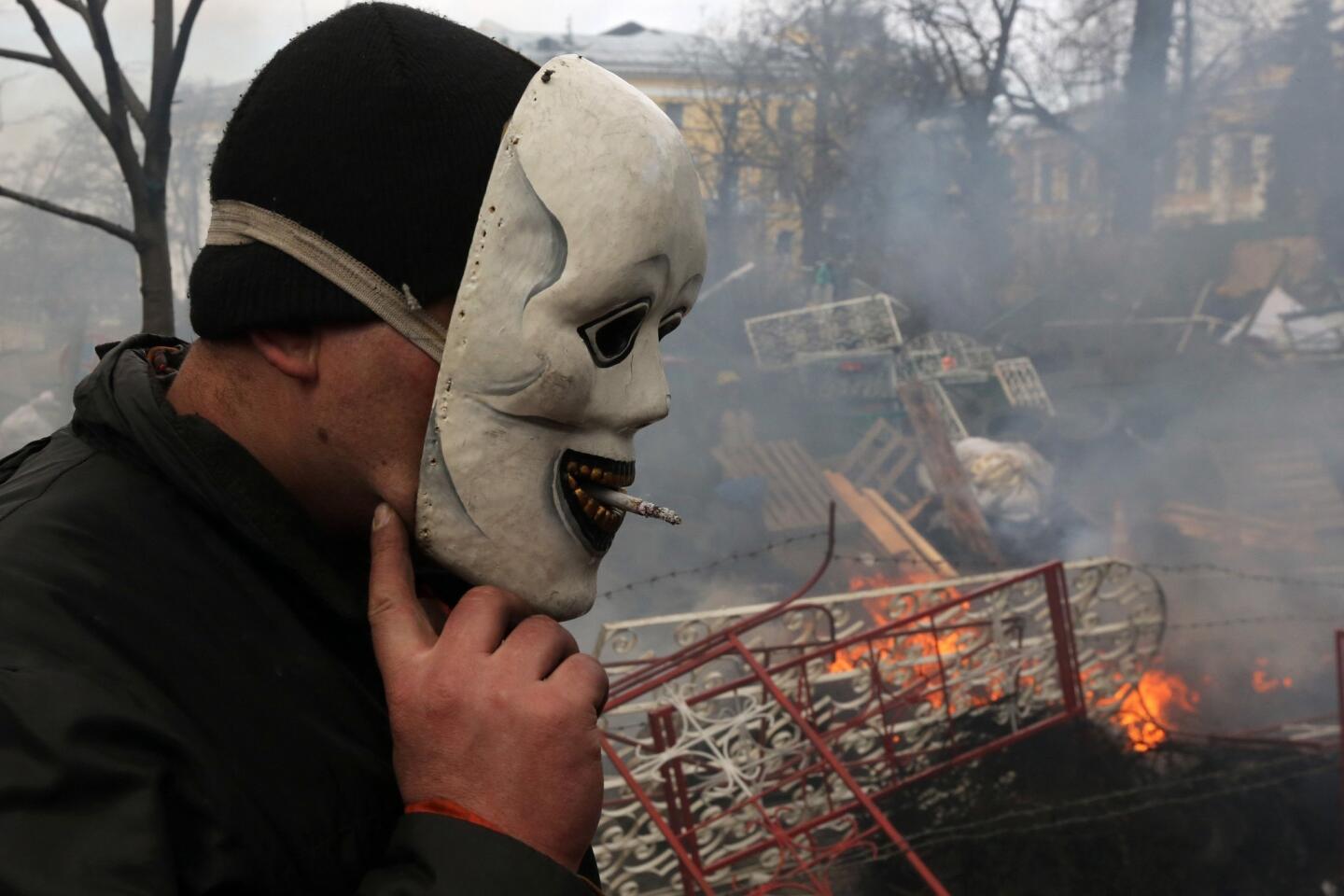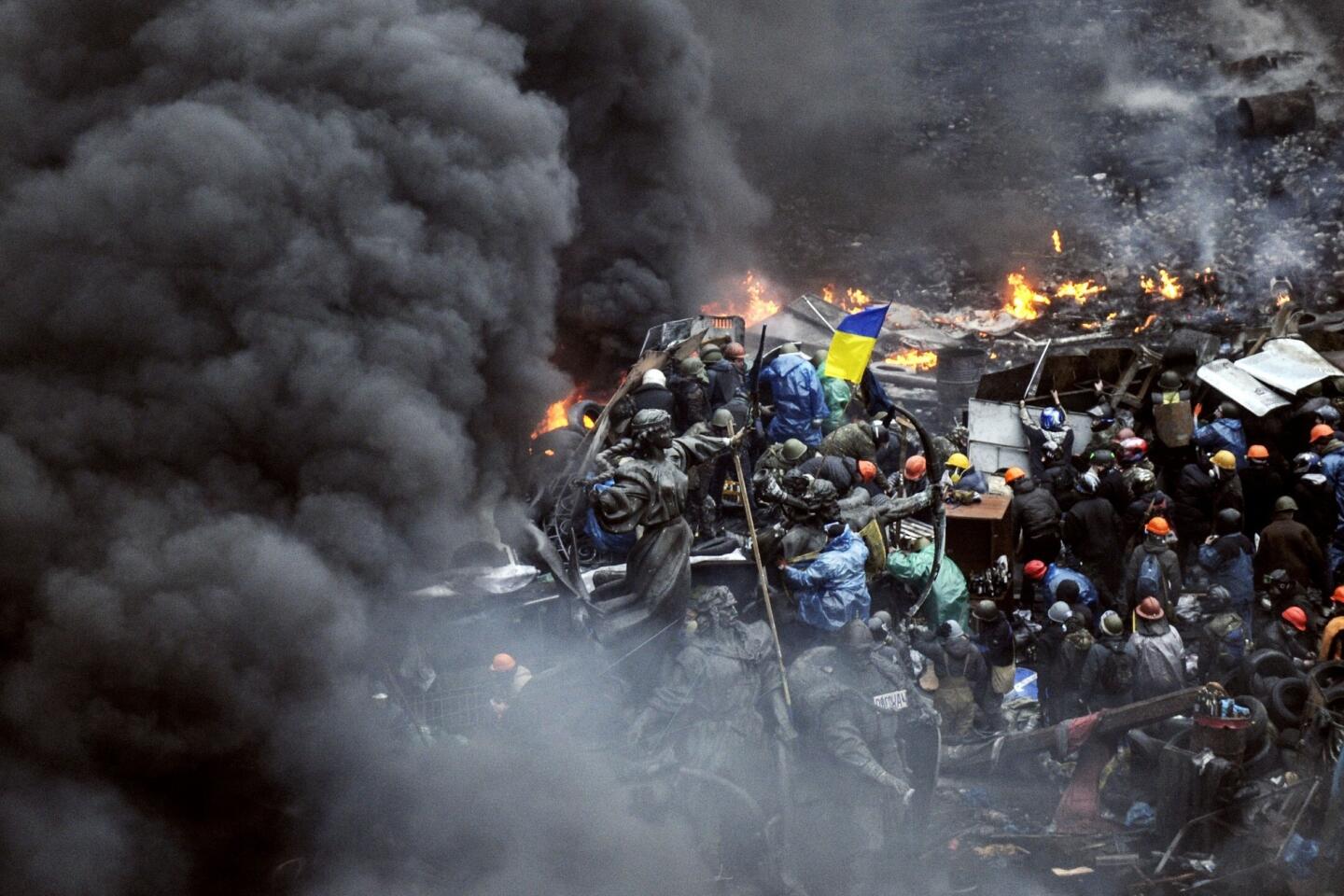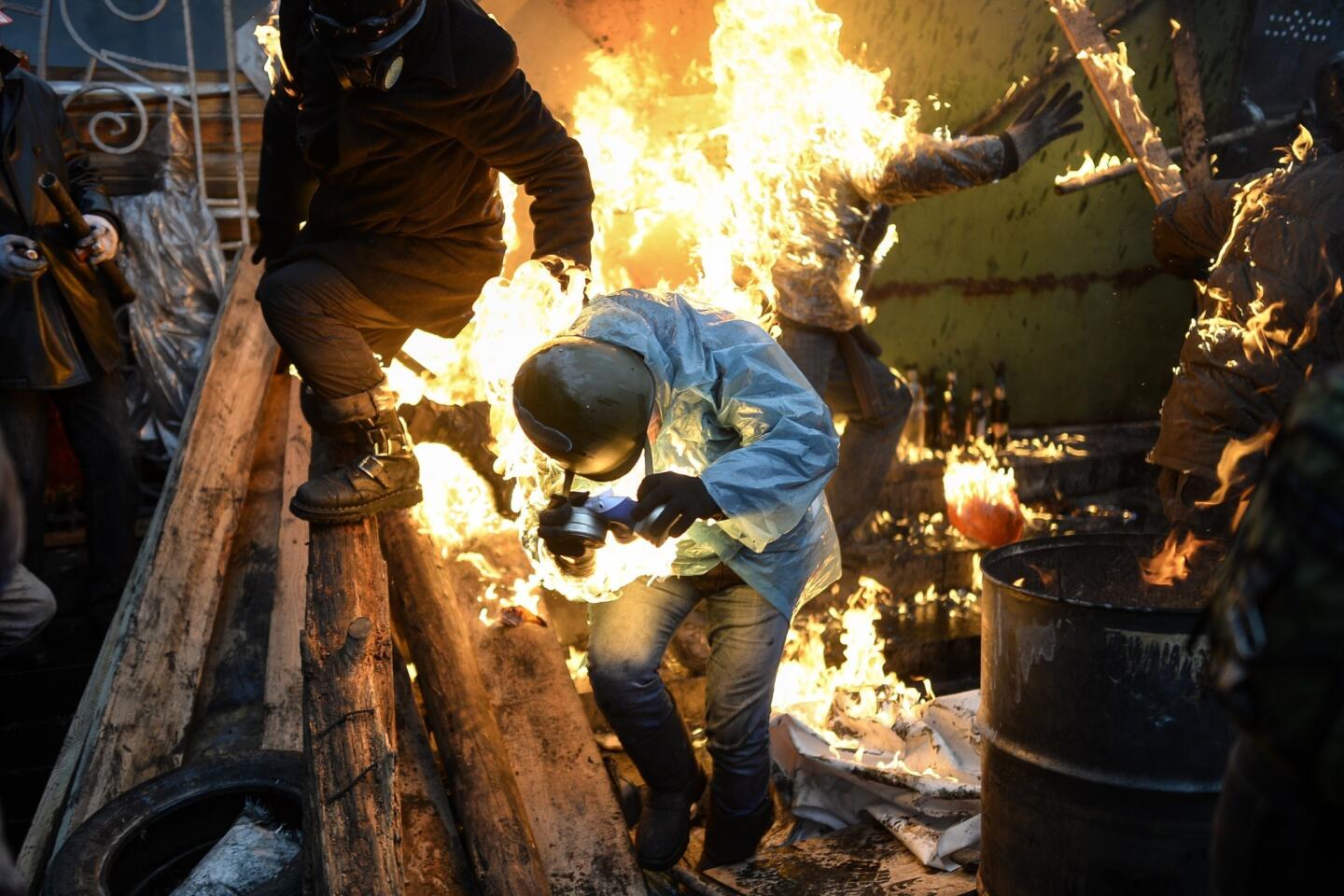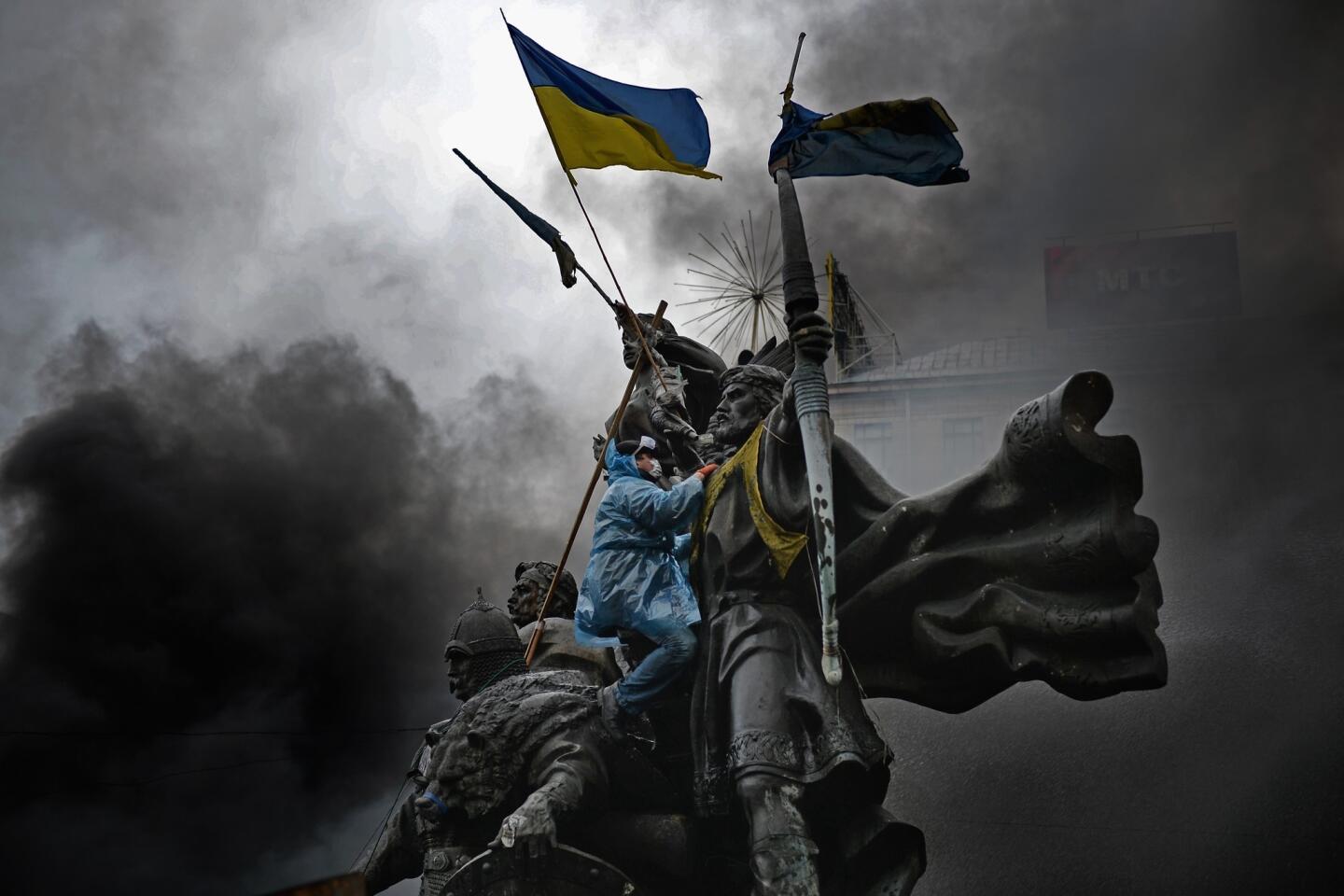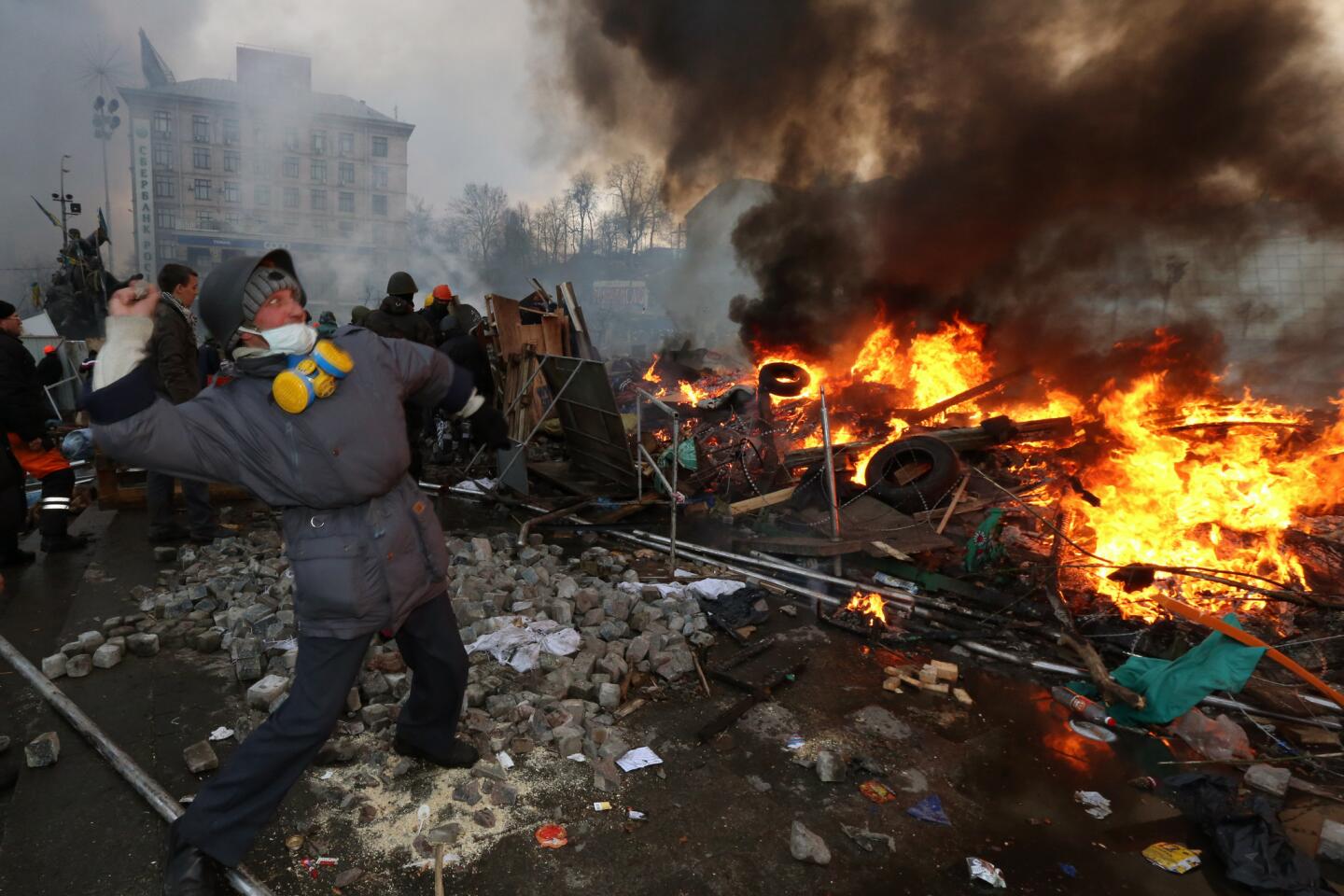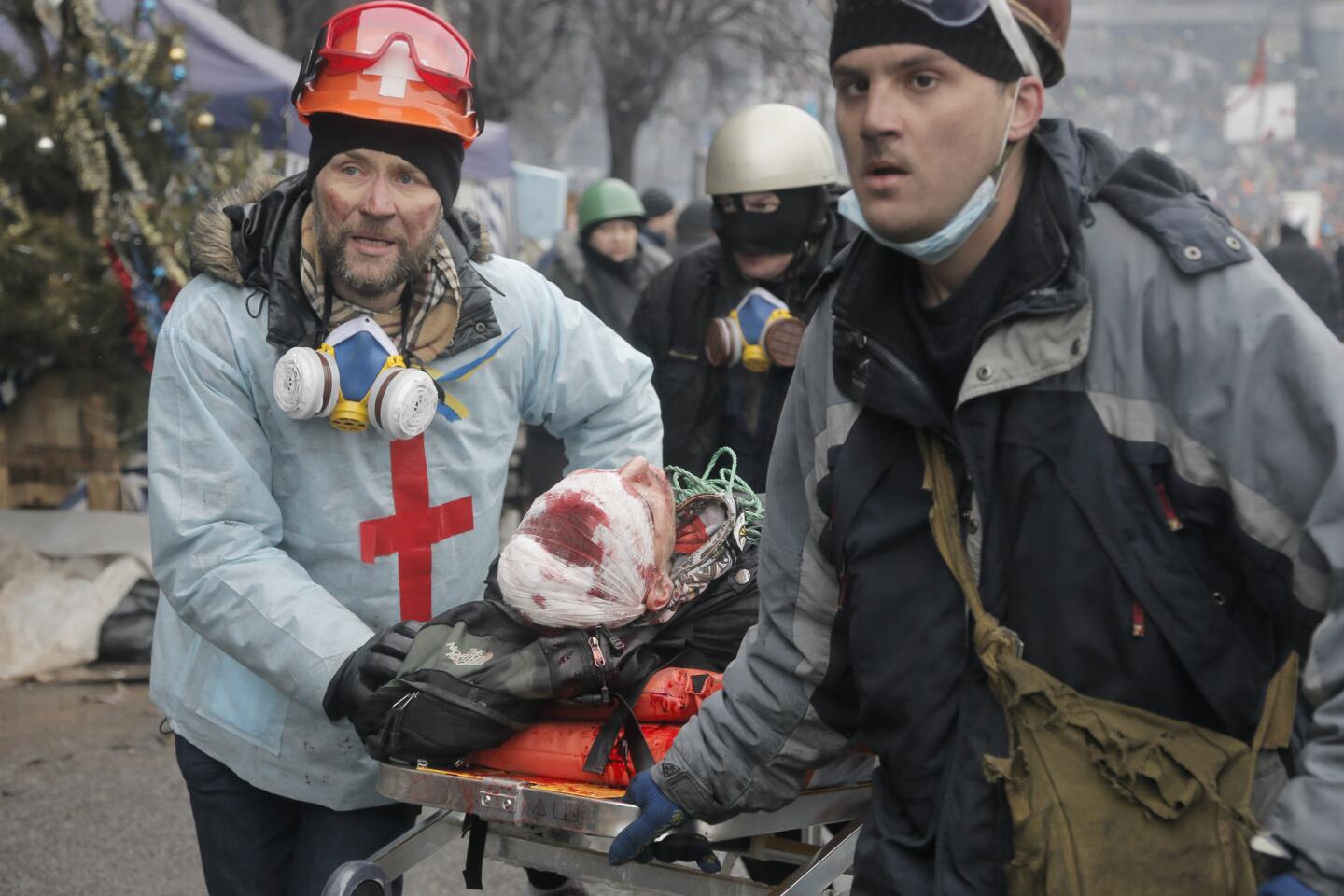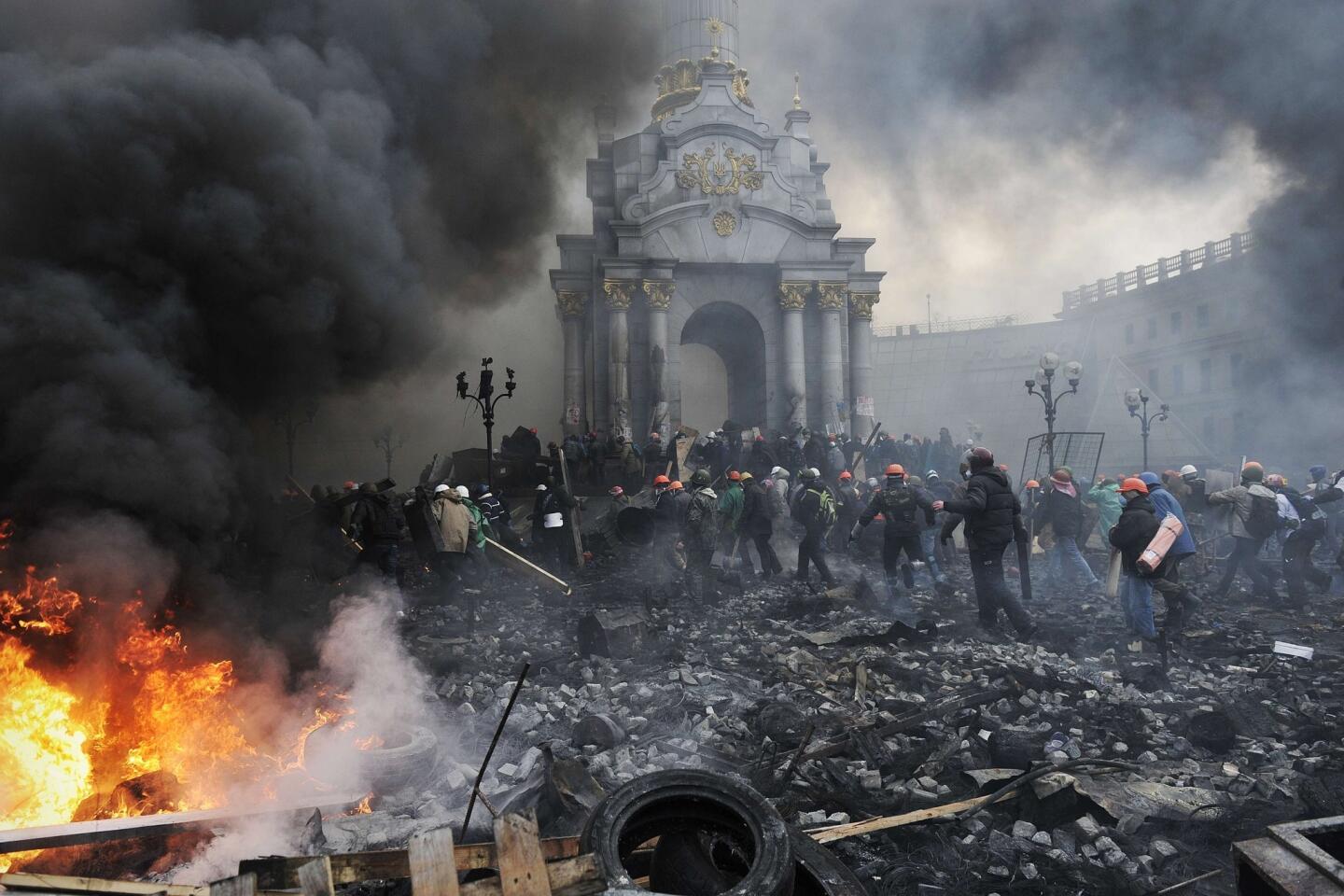Russia halting aid to Ukraine until leadership forms
- Share via
MOSCOW -- Russia will hold off on further loans and aid to Ukraine in the wake of the tumultuous leadership changes under way in the former Soviet republic until it becomes clear “with what government we will cooperate,” Finance Minister Anton Siluanov said Sunday.
Siluanov also said Moscow believes Ukraine should turn to the International Monetary Fund for help averting bankruptcy and reforming its corrupt and massively indebted budget, a signal that the Kremlin may be unwilling to further extend loans and subsidies to a Ukraine under the sway of pro-Western opposition figures.
Russian President Vladimir Putin offered Ukrainian President Viktor Yanukovich $15 billion in loans and energy subsidies in December, in an apparent reward for the Ukrainian leader’s decision to reject an association agreement with the European Union that had been under negotiation for three years.
Yanukovich’s unilateral abandonment of the EU deal that would have boosted trade with Europe and eventually integrated Ukraine’s economy with Western countries outraged liberal opposition politicians and urban citizens who want closer ties with the West. Street protests against Yanukovich and his submission to Moscow began in late November and erupted last week into a deadly showdown in which scores of protesters and police were killed before an EU-brokered agreement brought a tentative calm.
Russia bought up $3 billion in Ukrainian bonds in December, helping the country avert default and further economic chaos. Even 22 years after Ukraine became an independent country amid collapse of the Soviet Union, its industries and trade remain deeply entwined with Russia’s and Moscow was loath to see its former subject turn to the West in shaping its economic future rather than join Putin’s rival Eurasian Union of former Soviet states.
Moscow announced last week when the protesters in Kiev stepped up their demands for a return to parliamentary democracy and retraction of the Ukrainian presidency’s enhanced powers that it would release an additional $2 billion in loans to its ally. But as the opposition gained force and international support after a bloody crackdown on demonstrators, the Kremlin froze further bond-buying until the unrest subsided.
Siluanov was in Sydney, Australia, for a meeting of Group of 20 finance ministers over the weekend and told reporters there Sunday that he had talked about the Ukraine tumult and Russia’s assistance with his fellow treasury officials.
“We indeed discussed the purchase of eurobonds last week. But since the situation in Ukraine has changed dramatically, we should understand with what government we will cooperate. We plan to wait until a new government is formed to understand its economic policy,” Siluanov said, according to the RIA Novosti agency covering the G20 summit.
Russia, in the meantime, supports the conditions laid out by the IMF for assistance with Ukraine’s fiscal woes, Siluanov said, indicating that the Kremlin may abandon the task of bailing out Ukraine to a broader international effort.
“We have previously talked with Ukraine’s economic authorities about the importance of reforming the hrivna [currency] rates to make them more flexible, as well as about cutting subsidies, revitalizing the budget and changing domestic [gas] tariffs,” Siluanov said, according to the Voice of Russia account of his briefing in Sydney.
Any IMF assistance likely would be contingent on Ukraine committing to massive reforms of its budget and financing policies and an effective anti-corruption plan. Transparency International, the Berlin-based agency that monitors corruption worldwide, last year ranked Ukraine the most corrupt country in Europe and 144th among the 177 countries it evaluated.
British Chancellor of the Exchequer George Osborne told journalists at the G20 meeting that the international community should be prepared to offer Ukraine financial assistance once a legitimate transitional government is in place, as envisioned under the truce brokered by three EU foreign ministers Friday.
“The international community should be there with a checkbook to help the people of Ukraine rebuild their country and rebuild their economy,’’ Osborne told Bloomberg news in an interview.
Ukraine’s currency reserves are reported to be perilously low as billions in loans mature in the next few months. Ukraine has been importing natural gas from Russia at a 30% discount, part of the assistance offered by Moscow after the EU deal was scrapped, but already owes $2.7 billion to Moscow for past imports. Russian lenders also are already exposed to the country’s fiscal instability with outstanding loan guarantees and downgraded bonds.
Twitter: @cjwilliamslat
More to Read
Sign up for Essential California
The most important California stories and recommendations in your inbox every morning.
You may occasionally receive promotional content from the Los Angeles Times.
